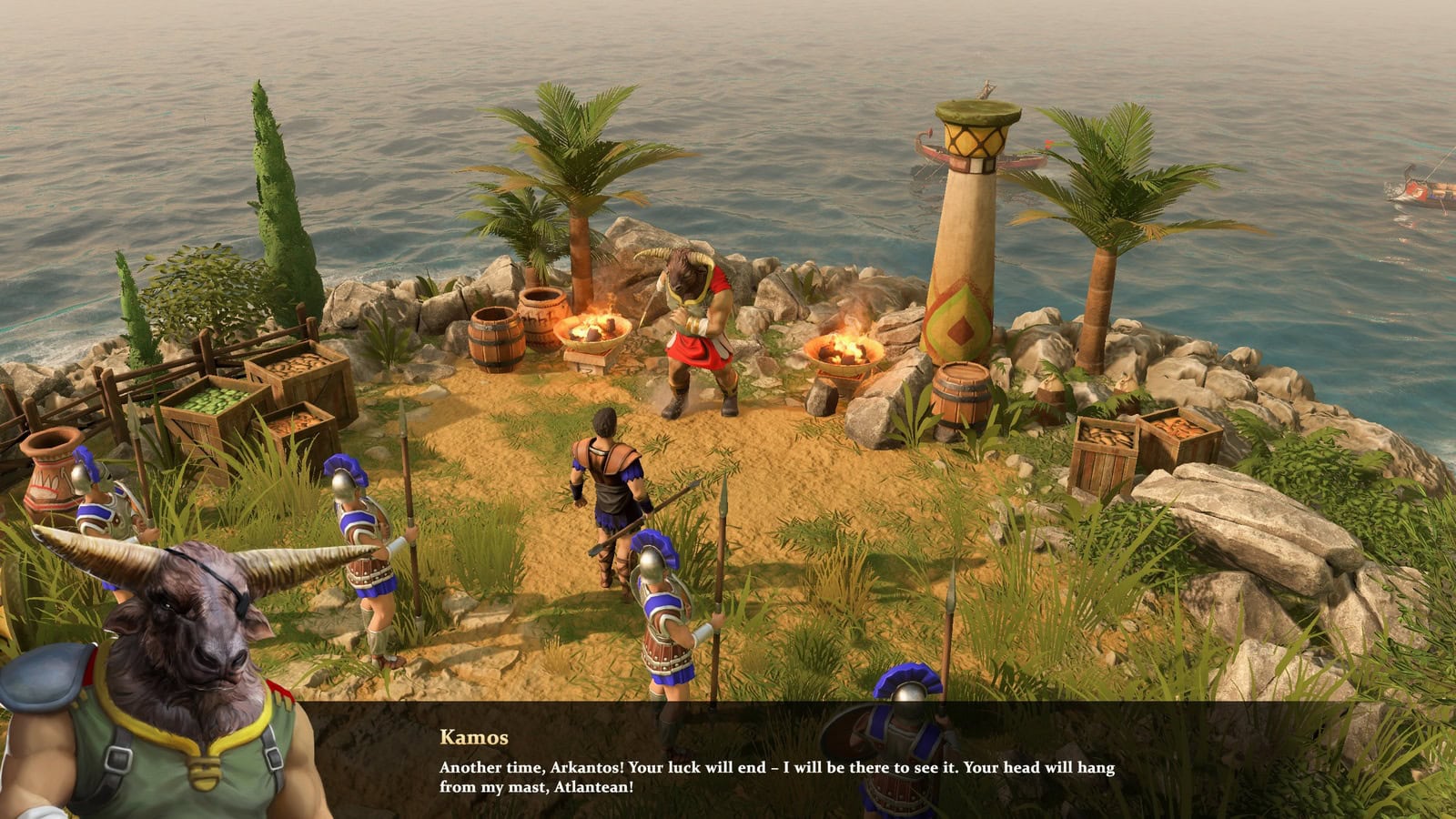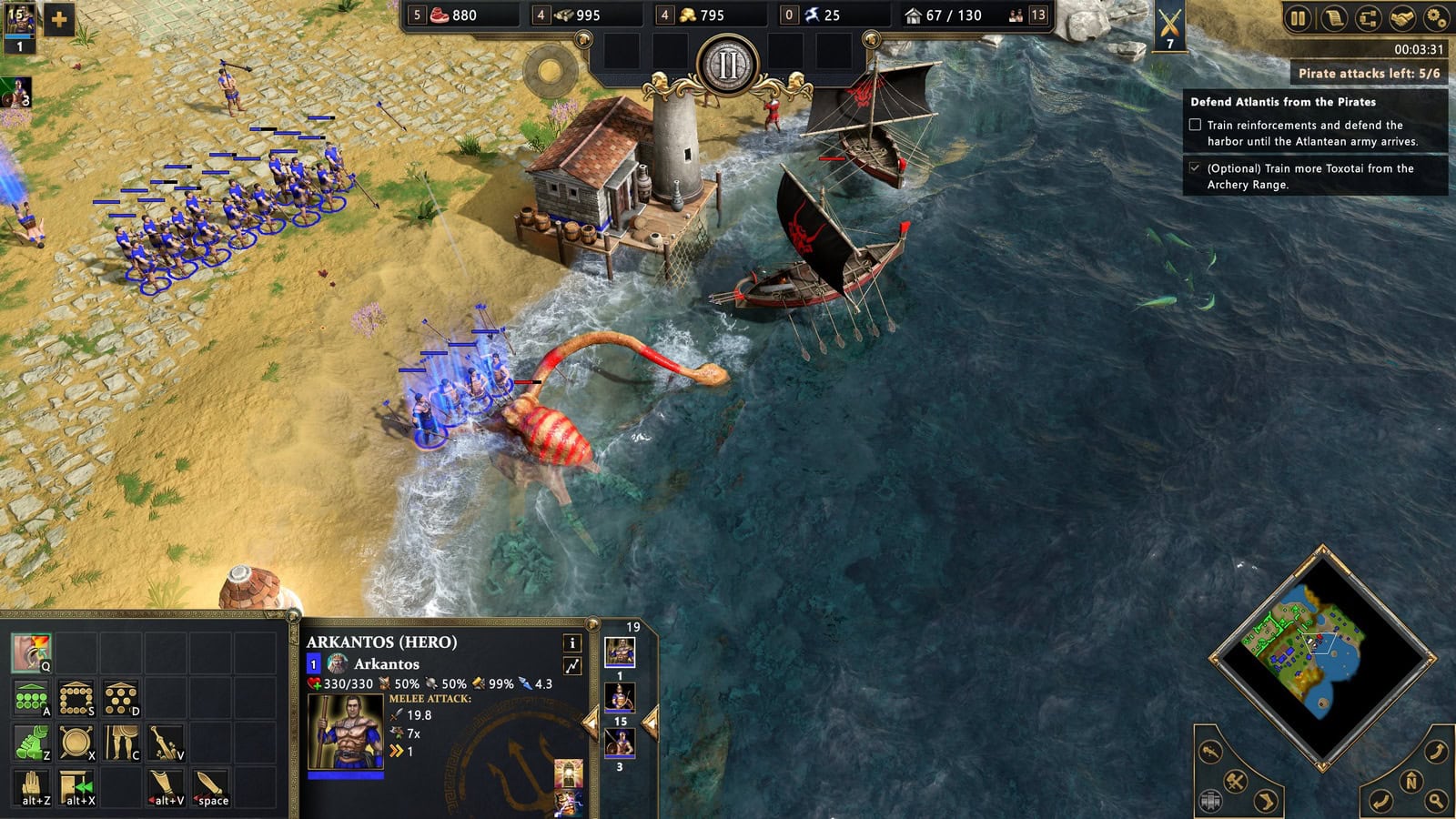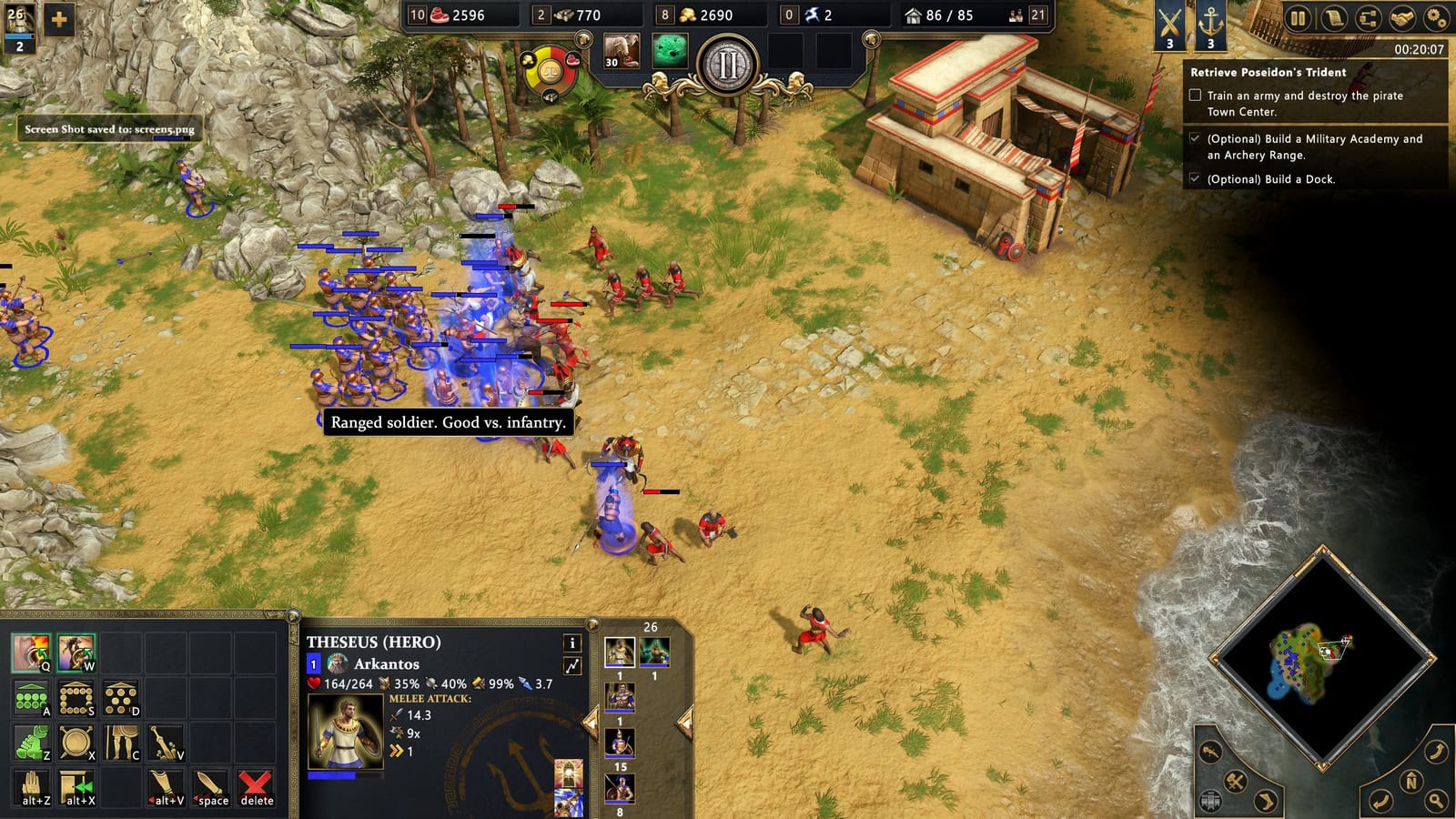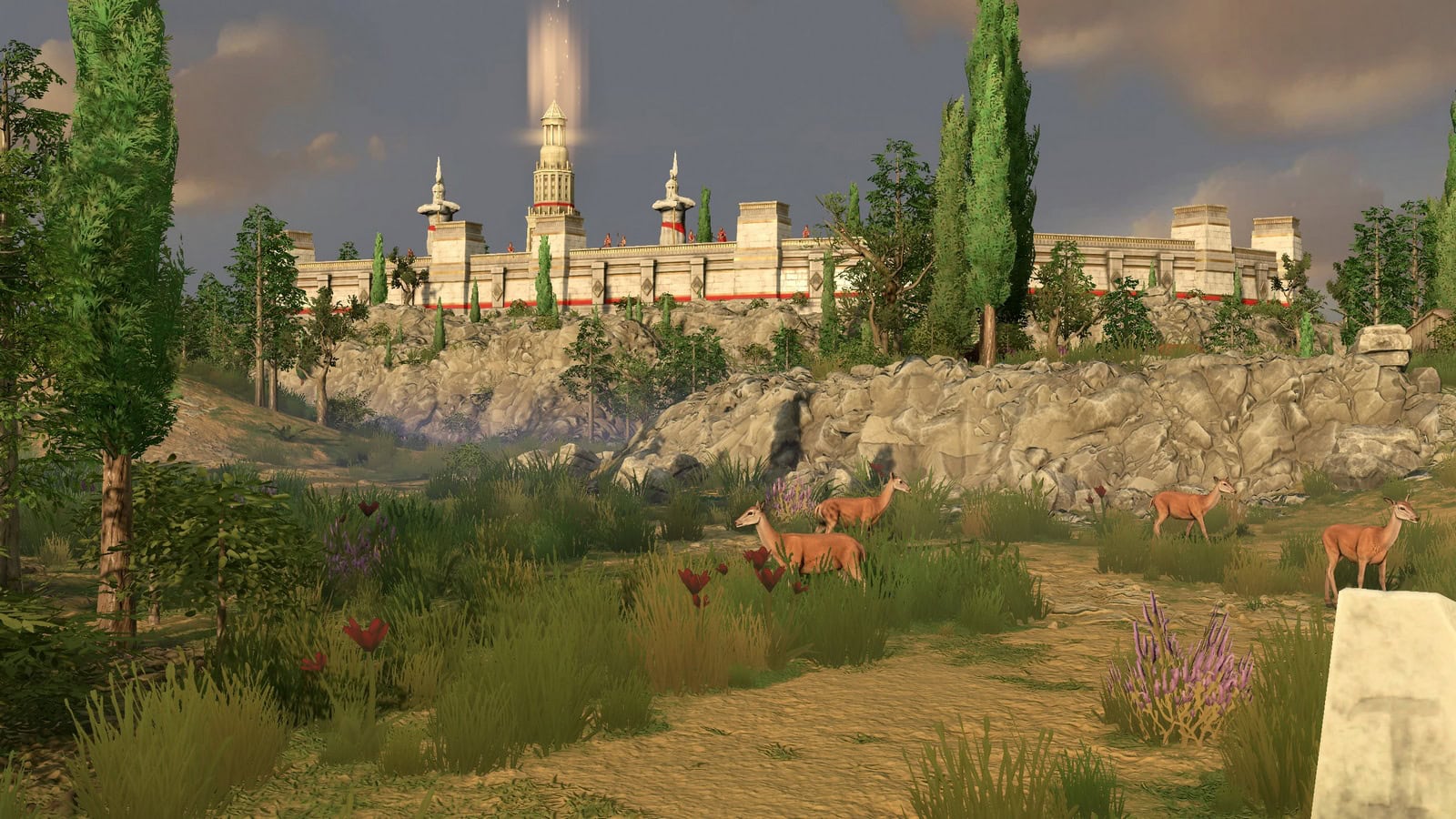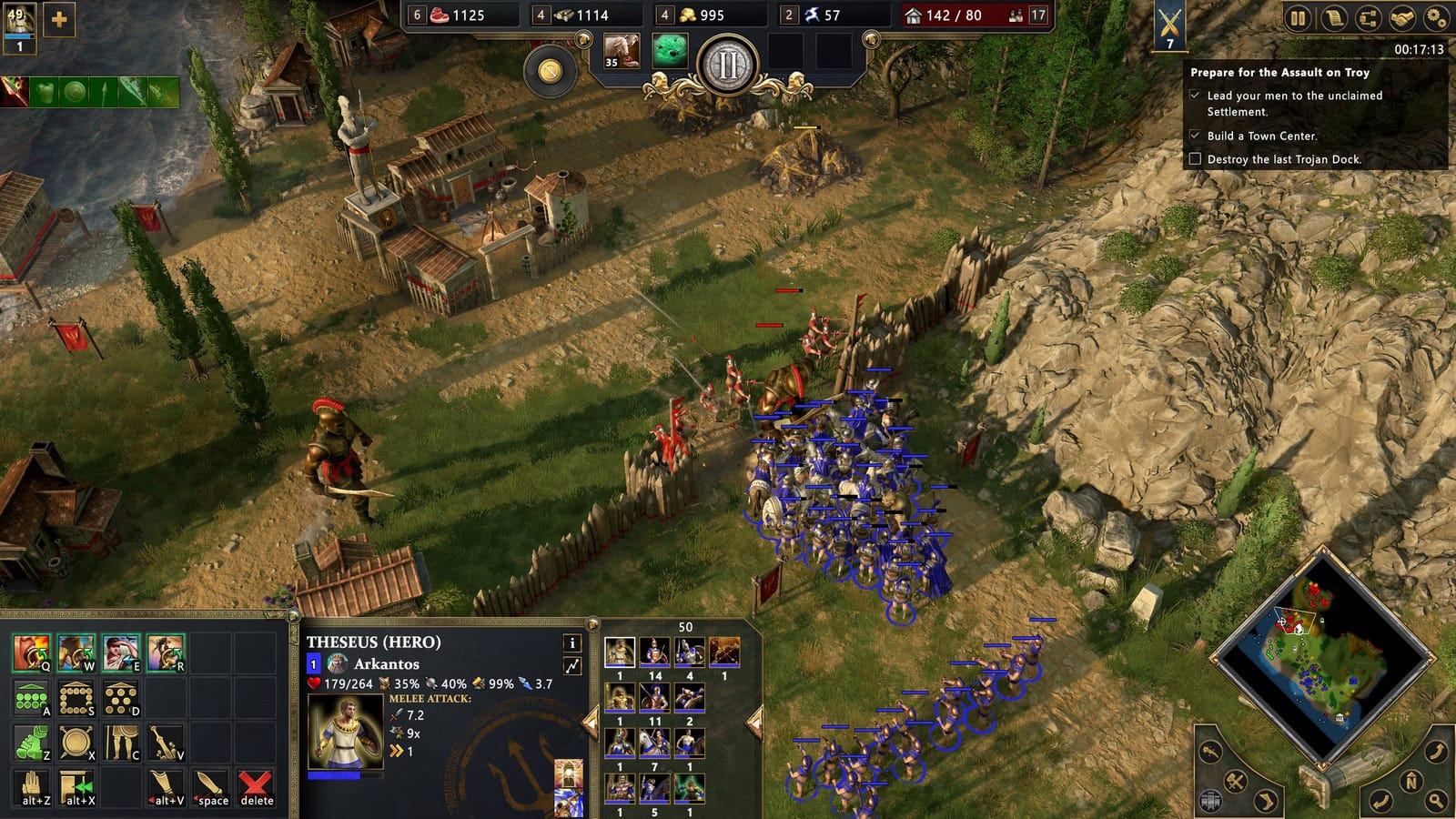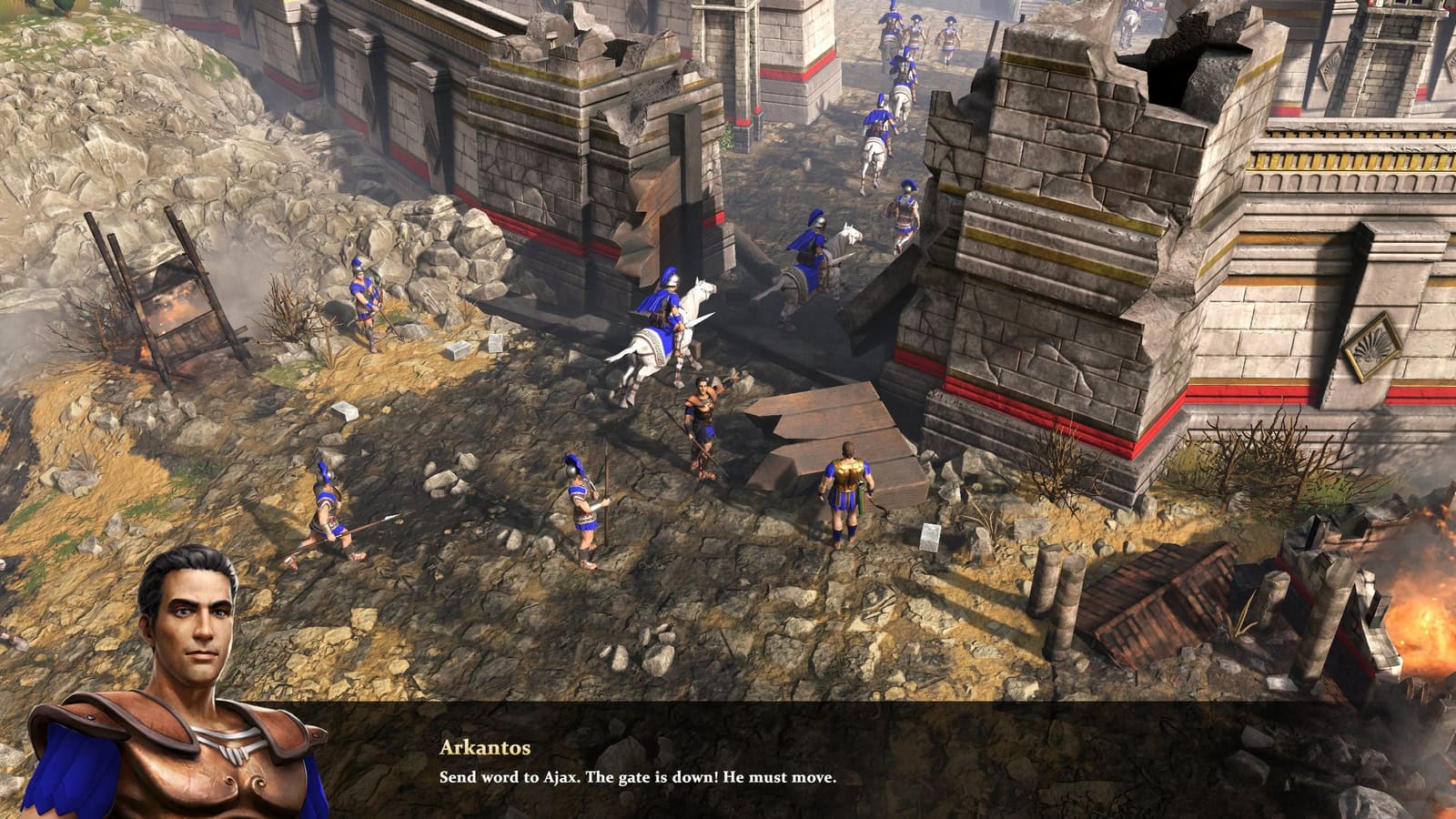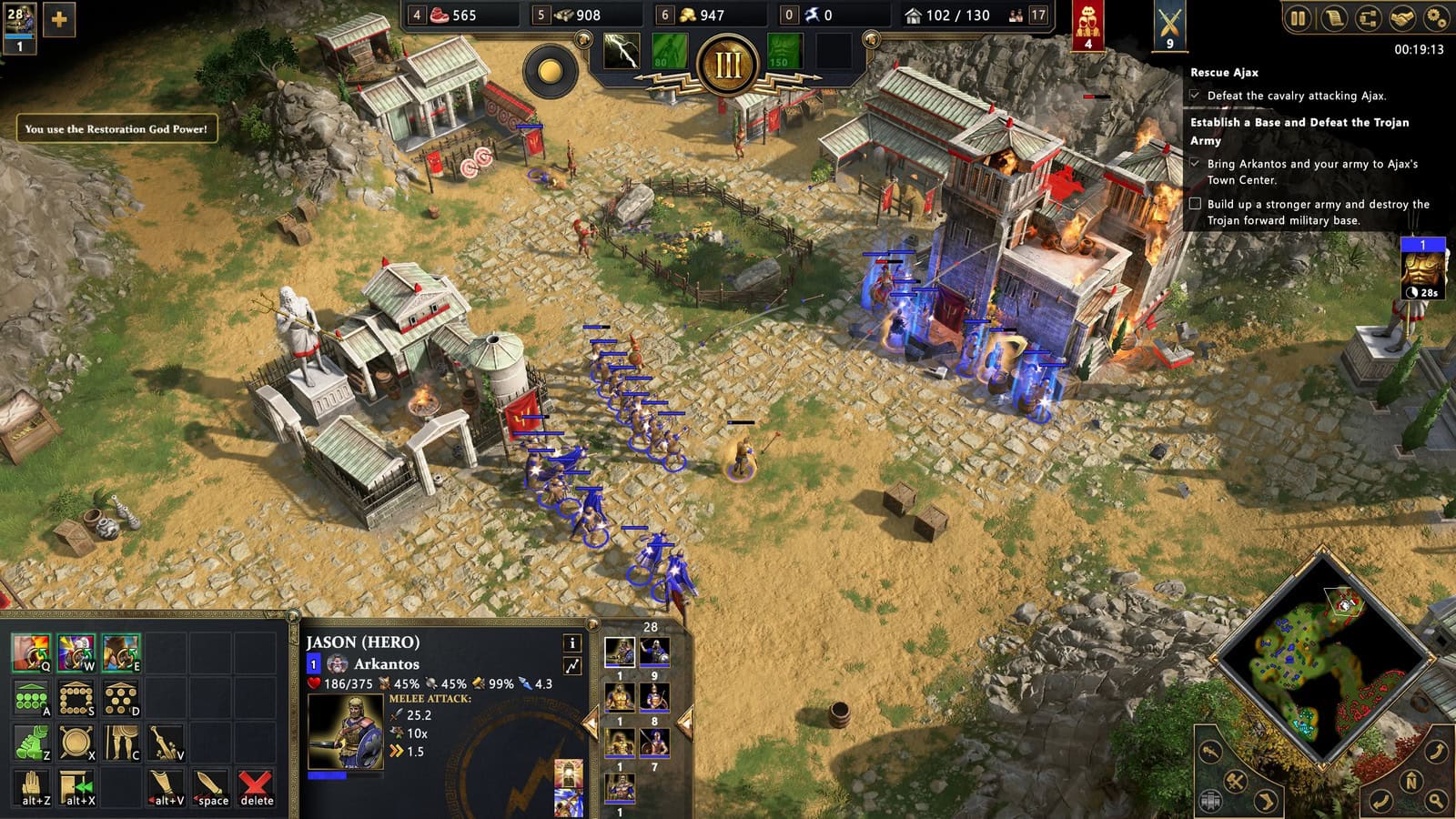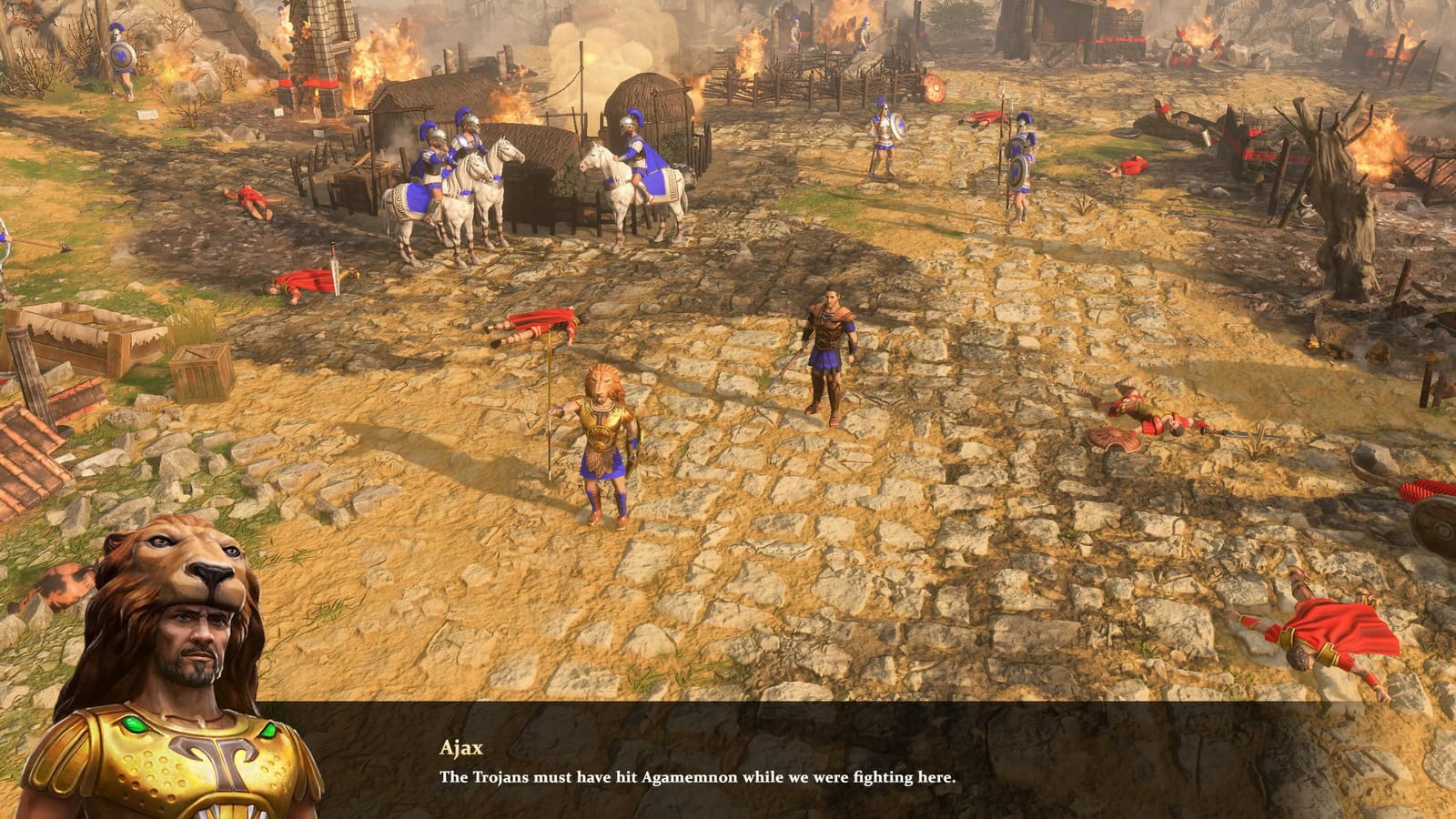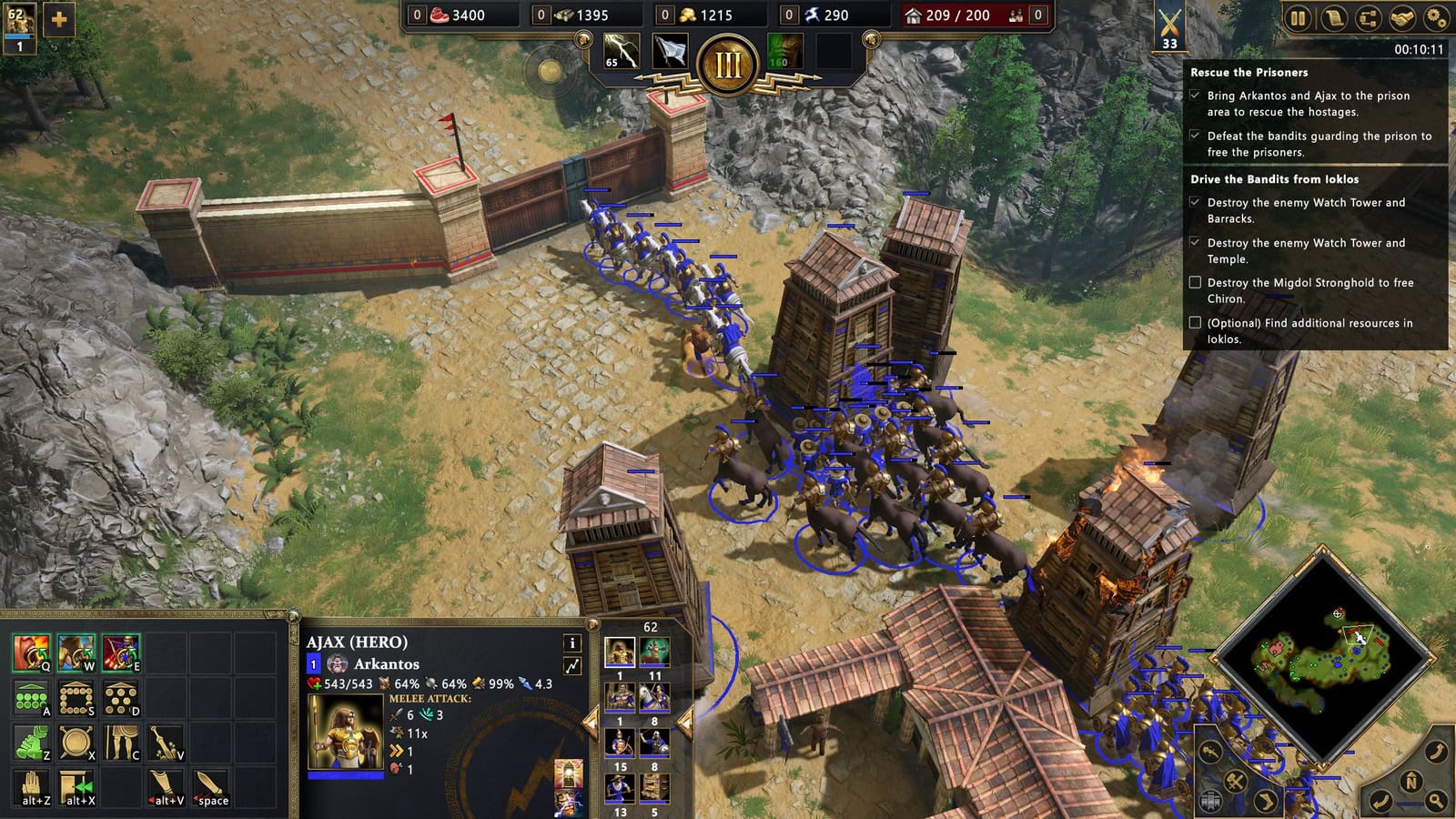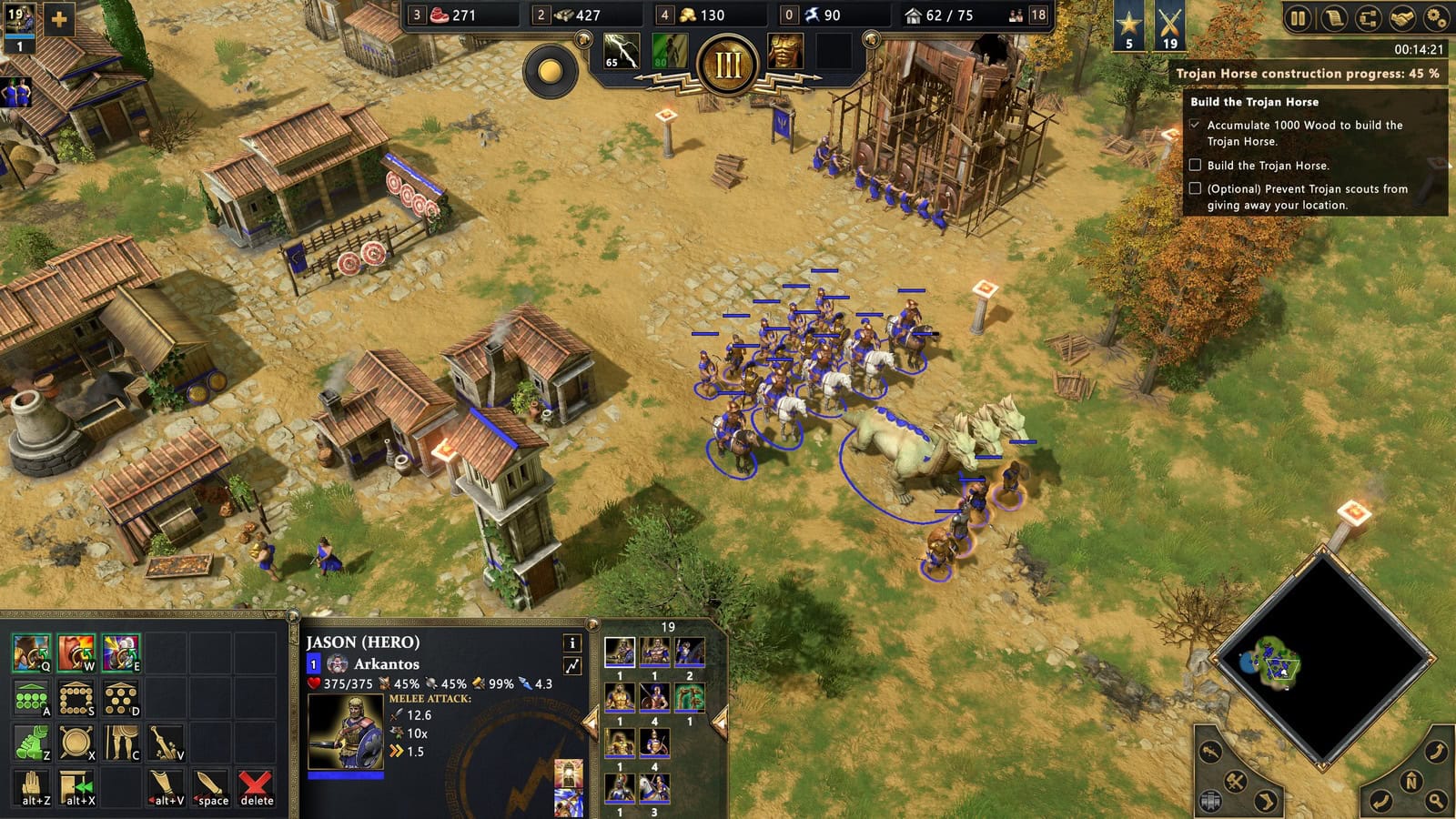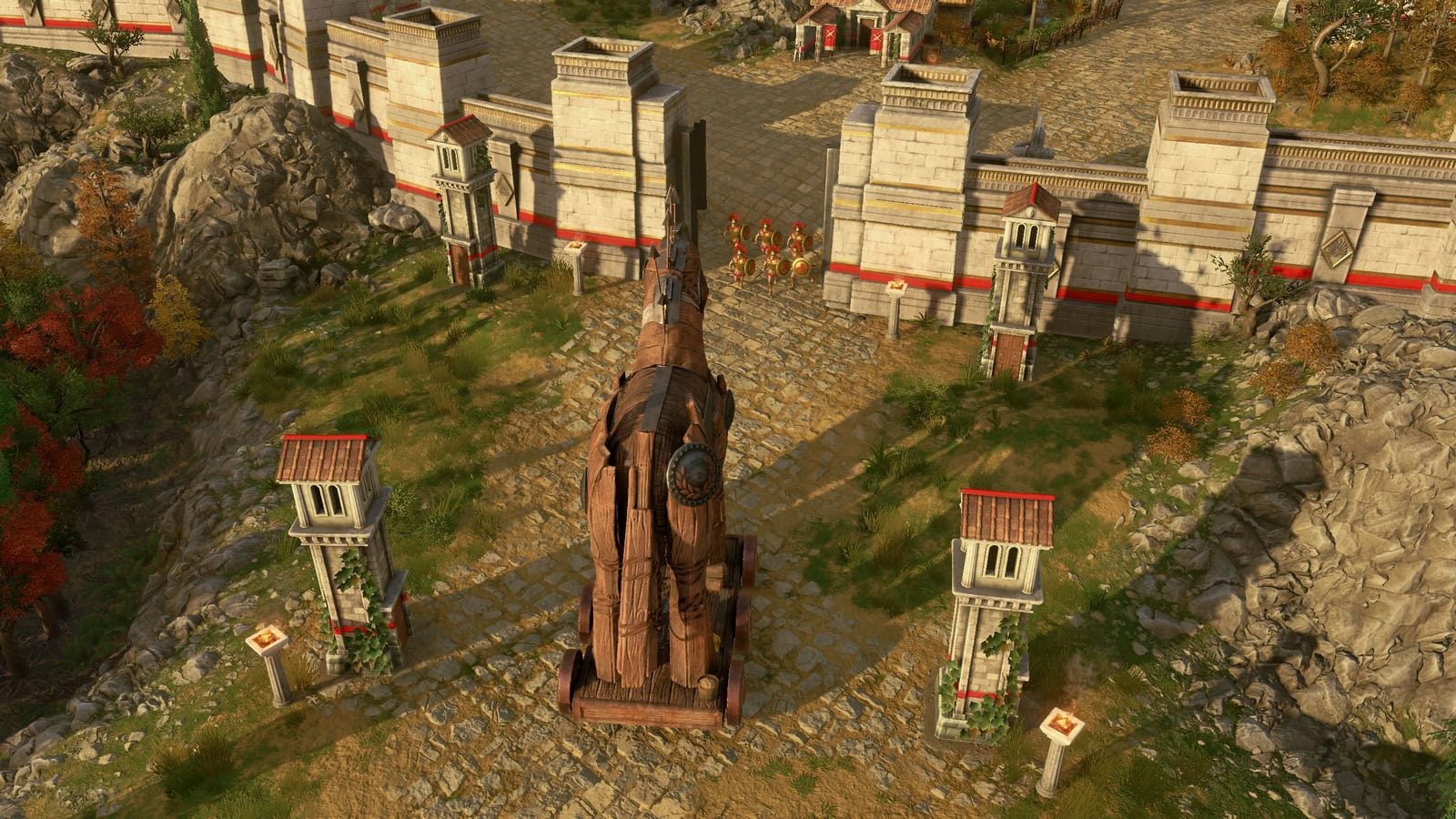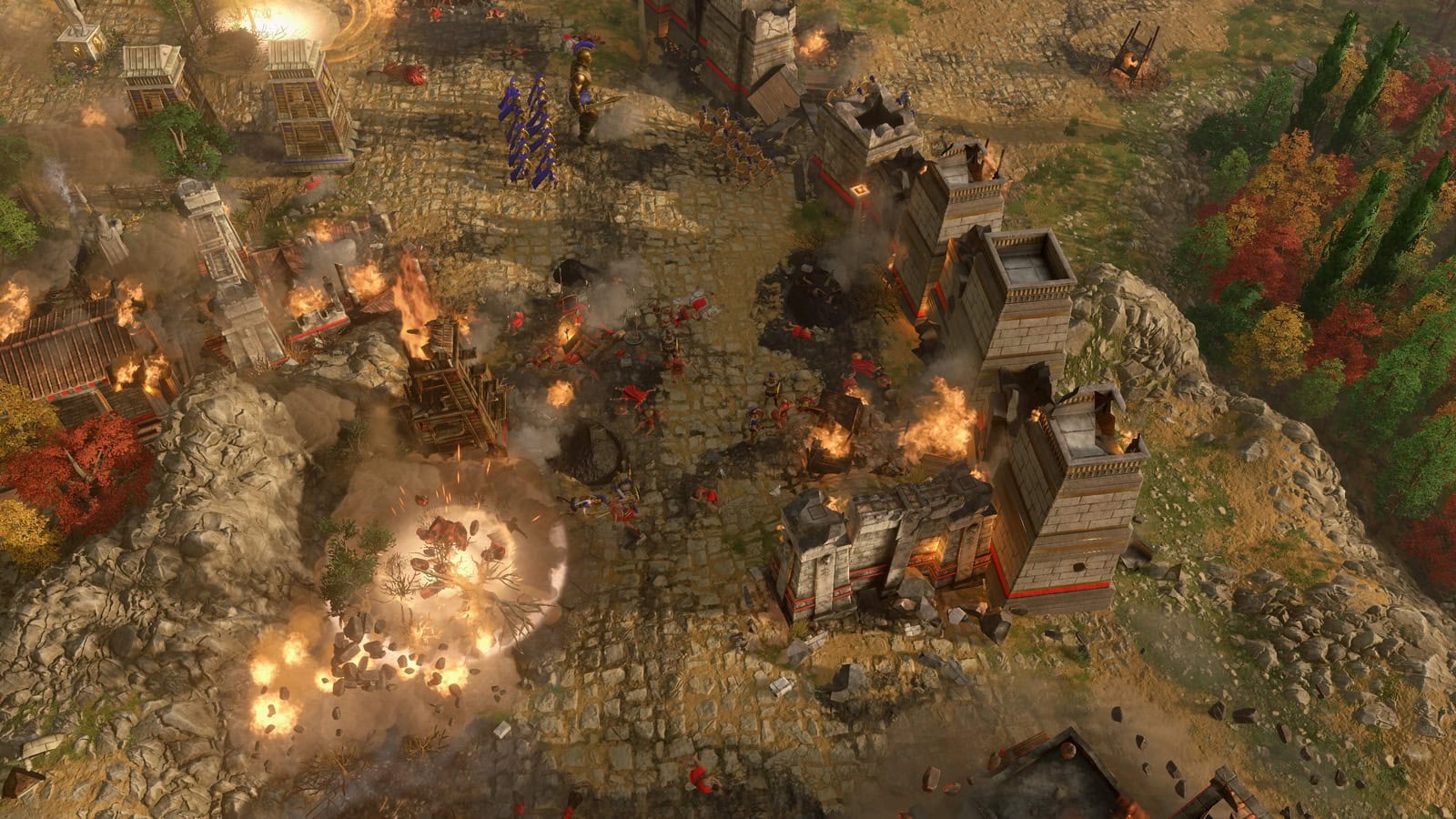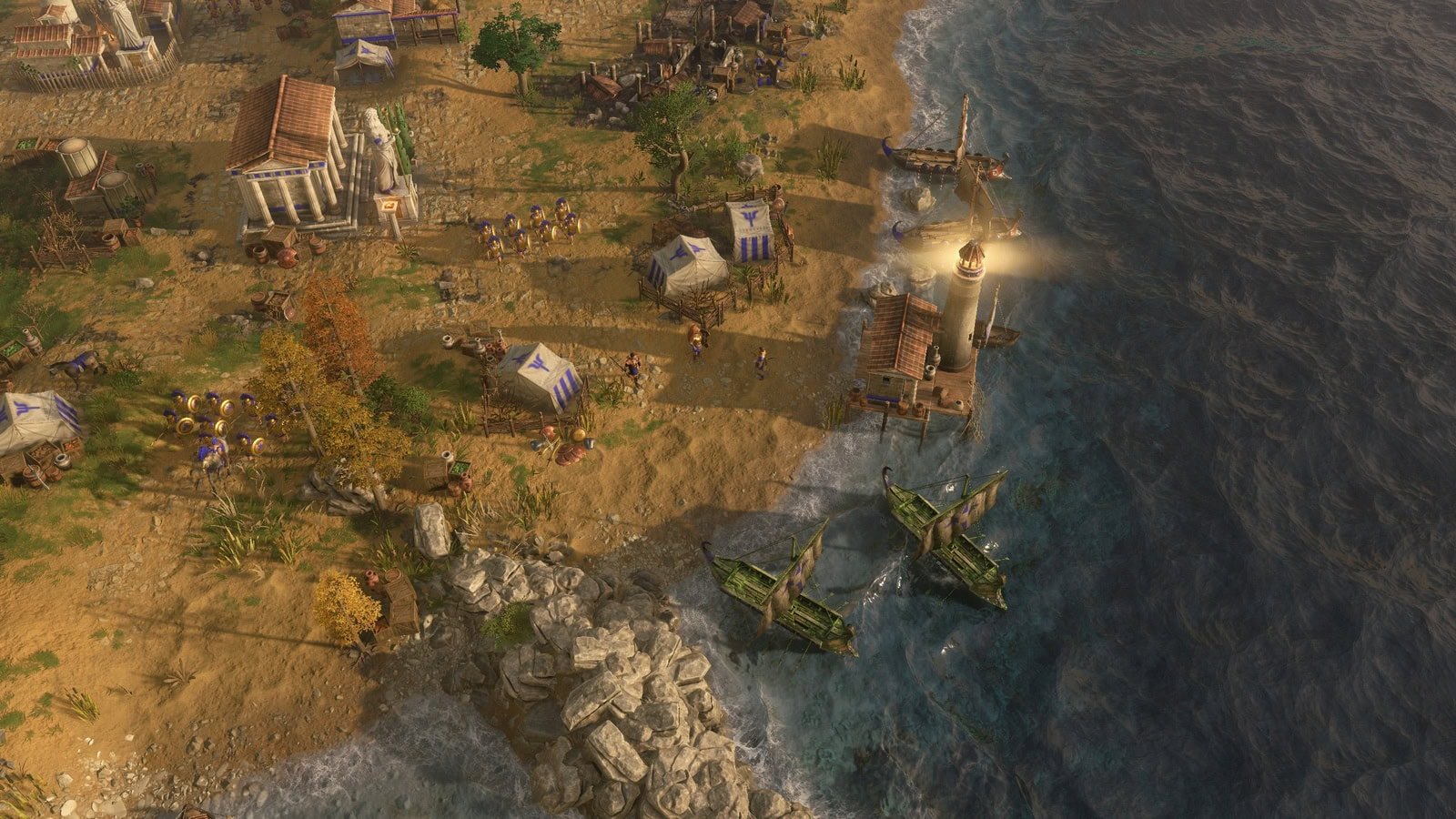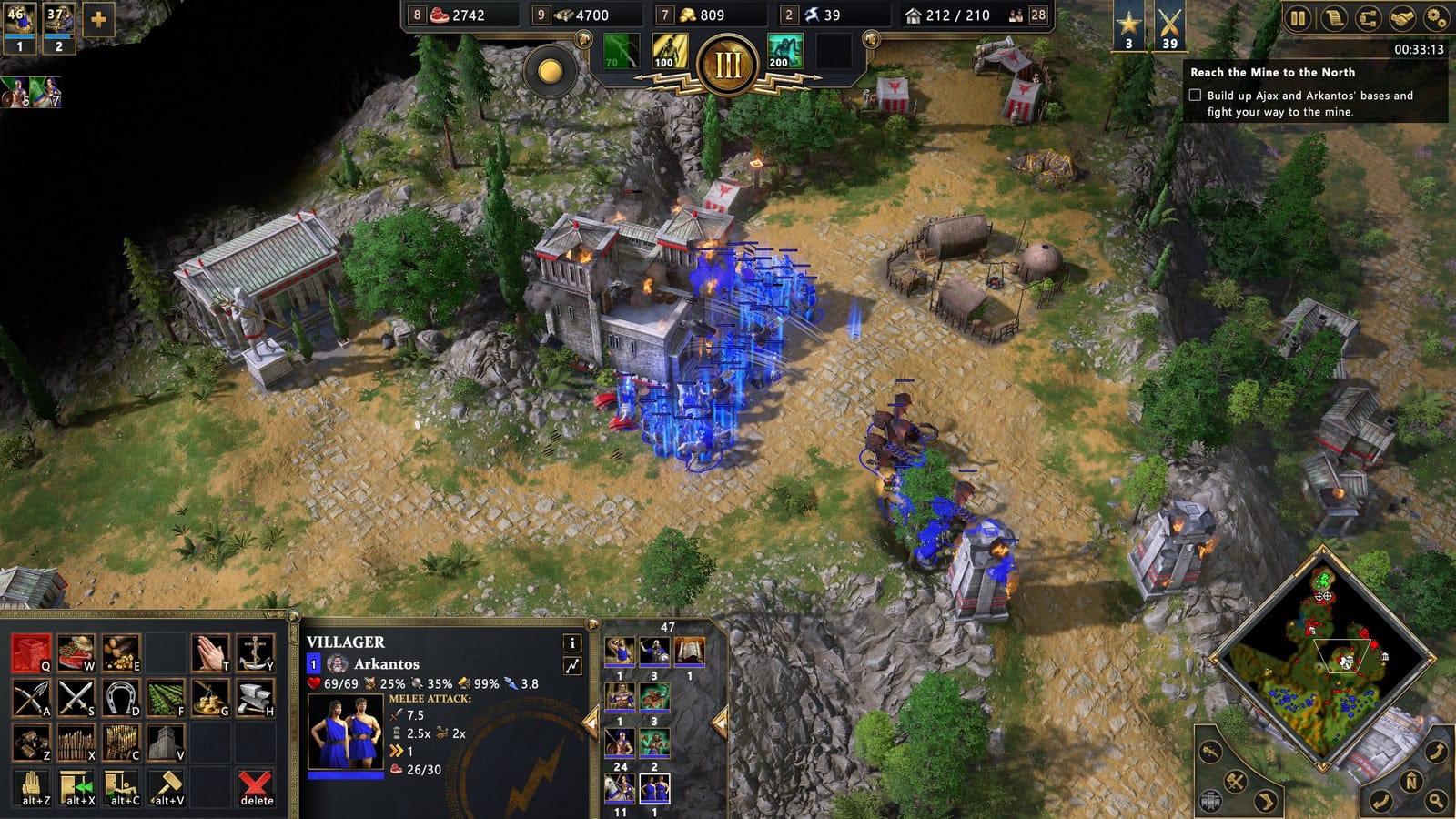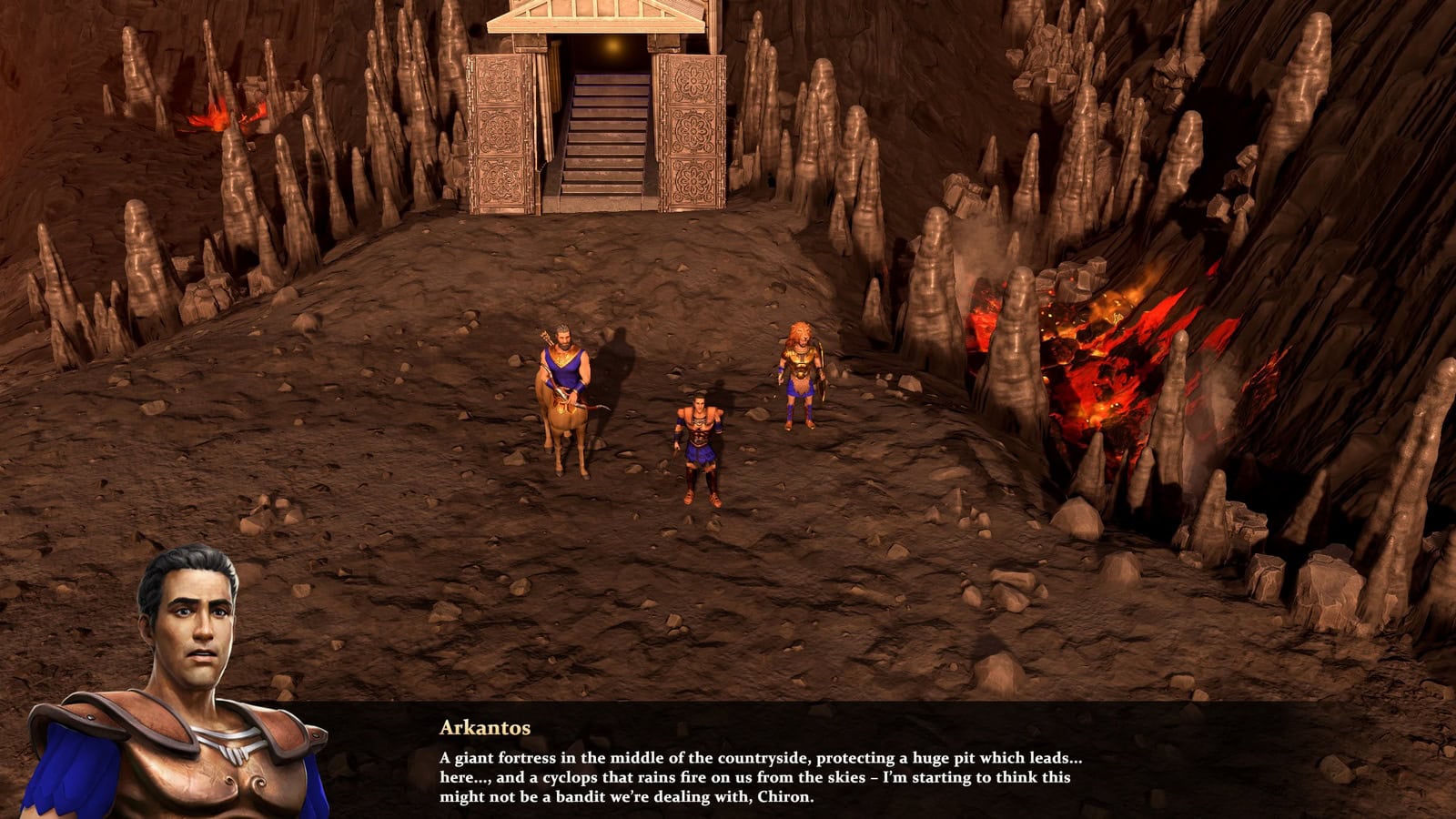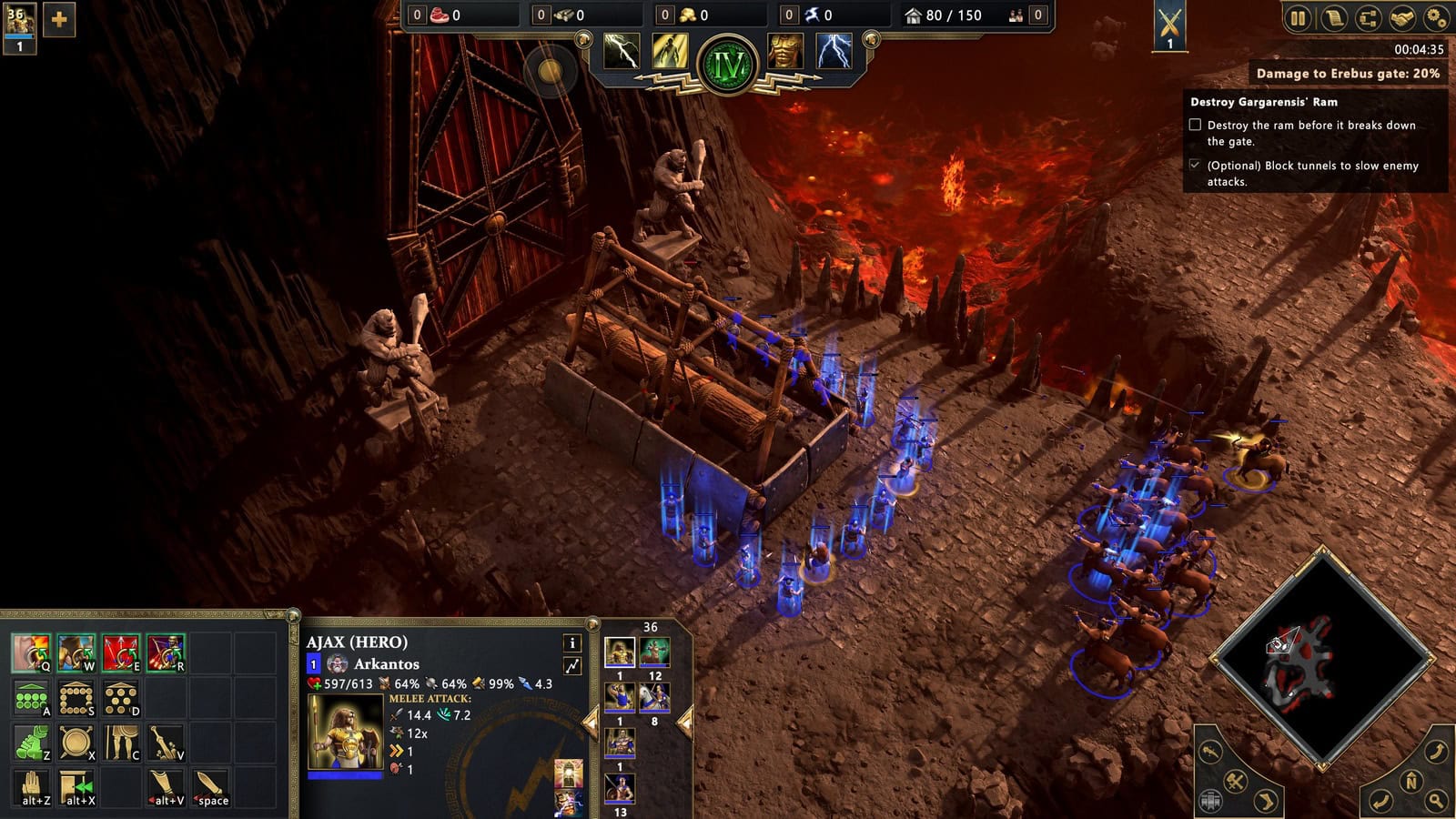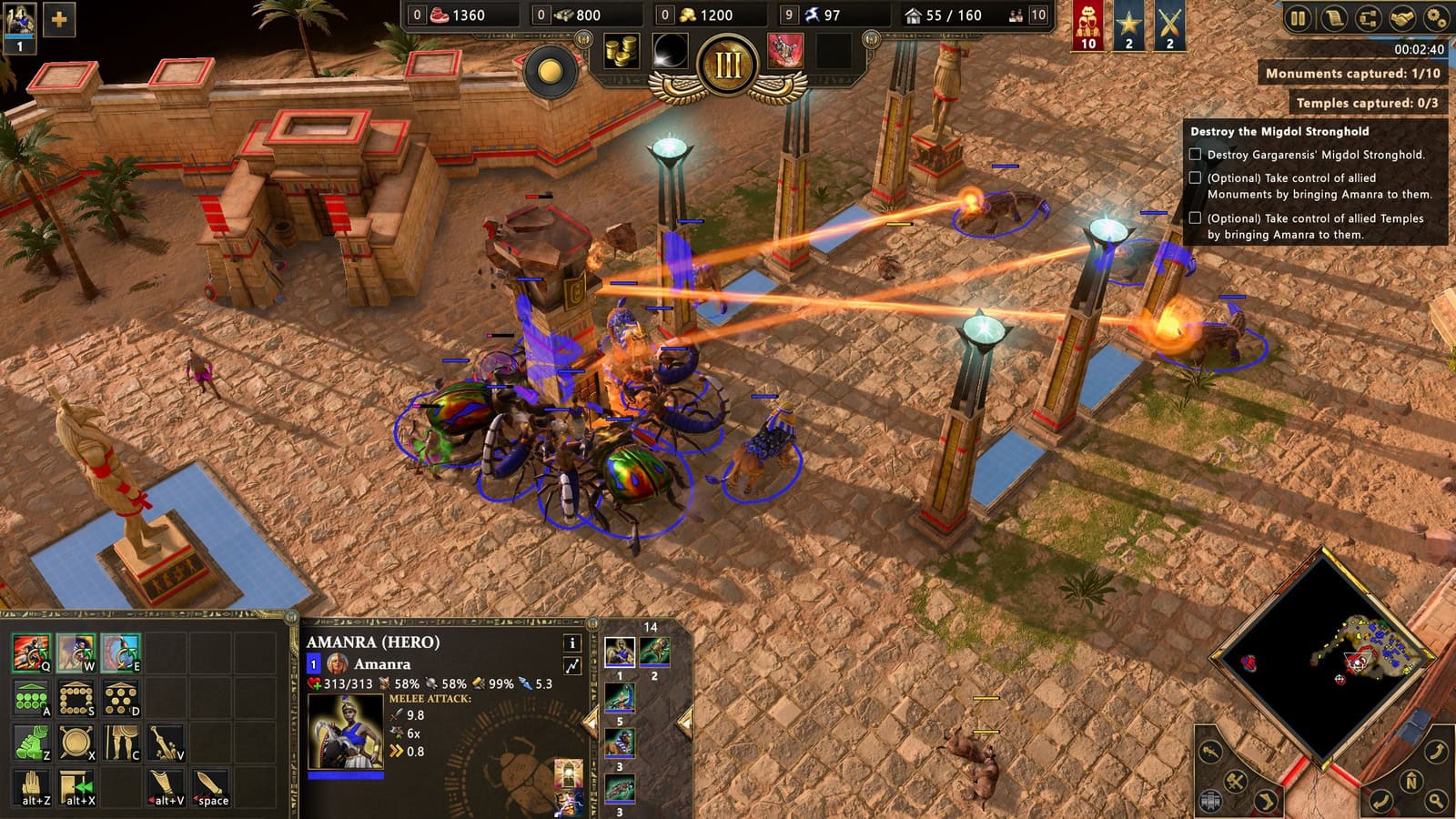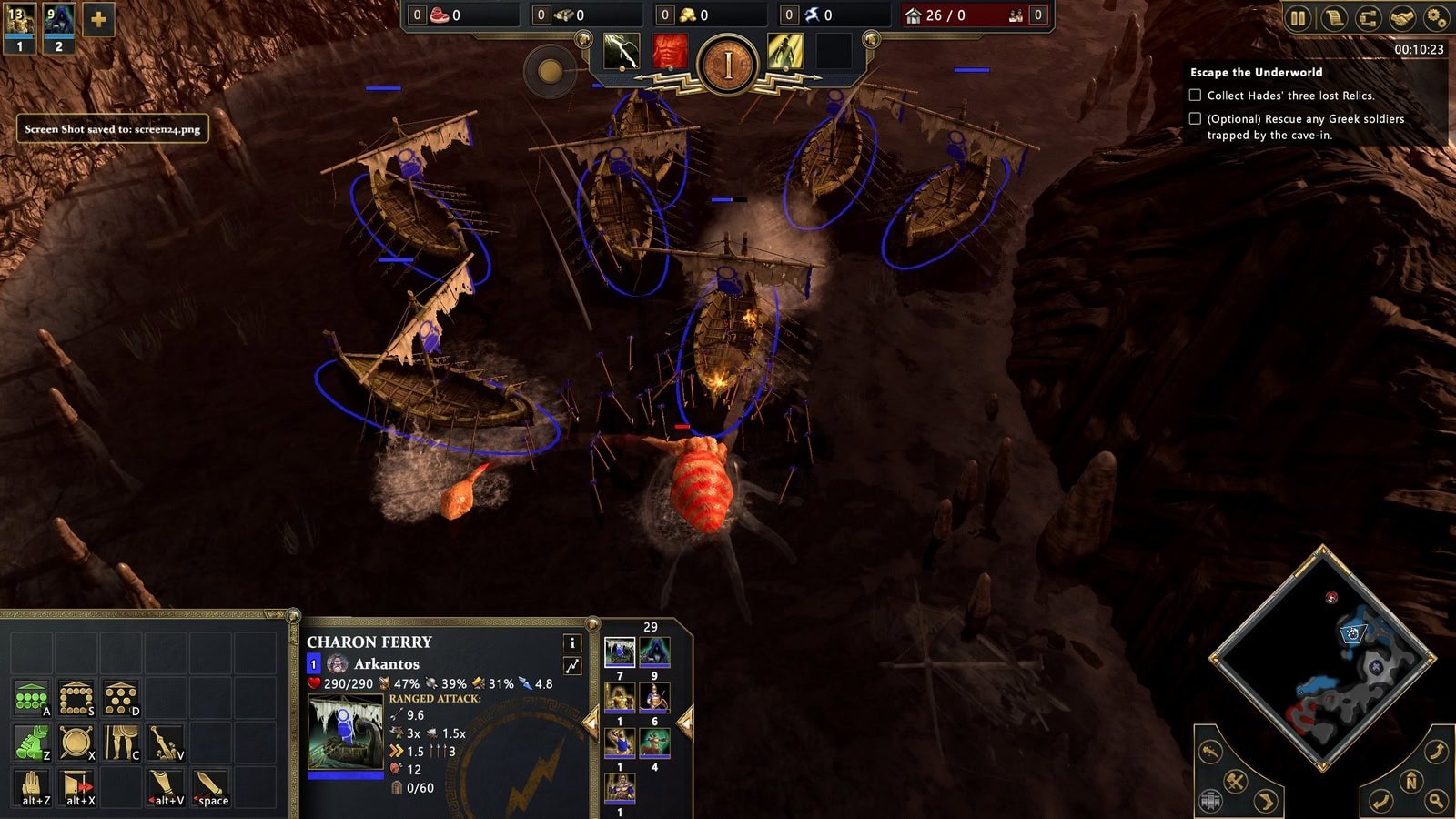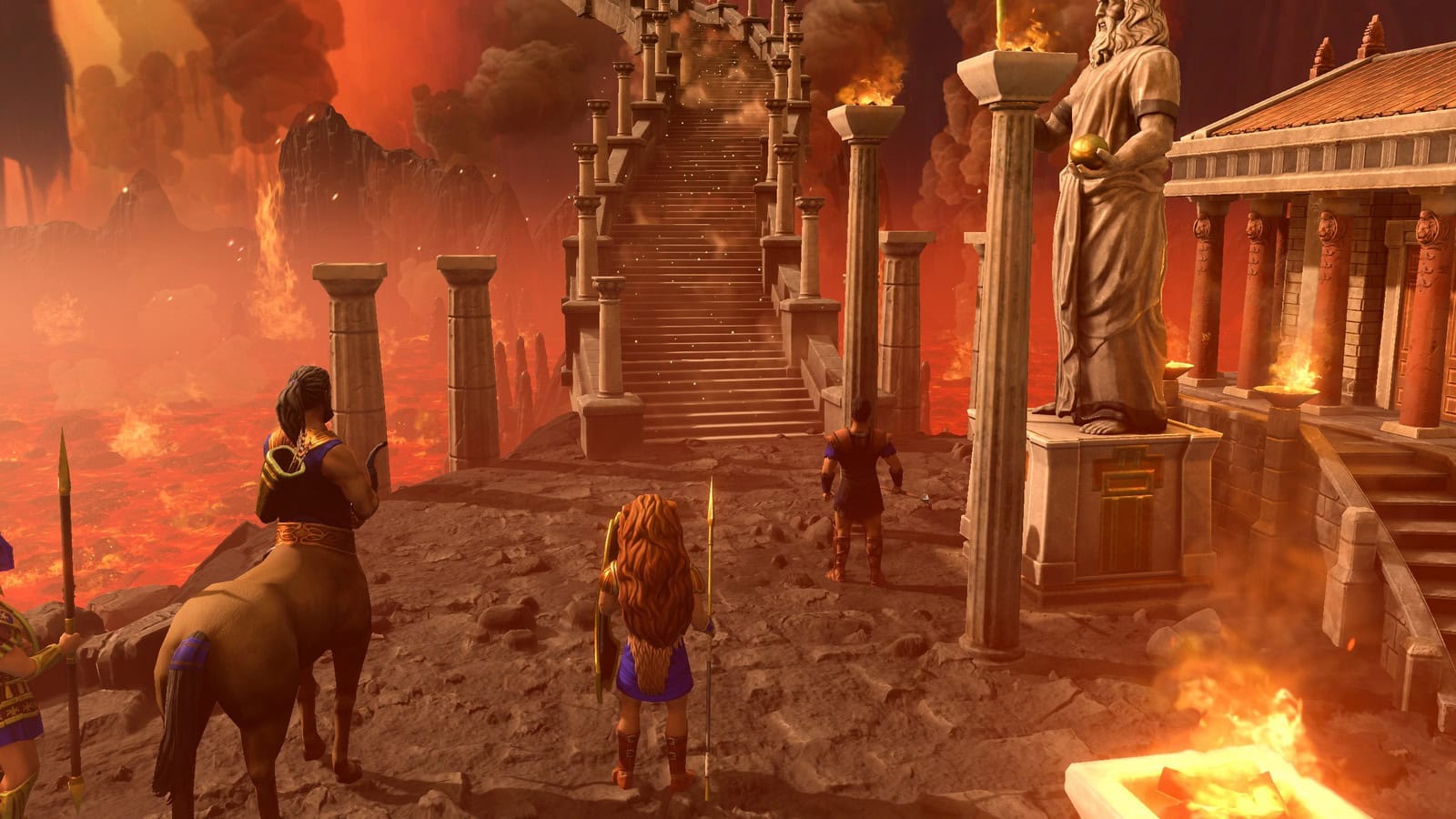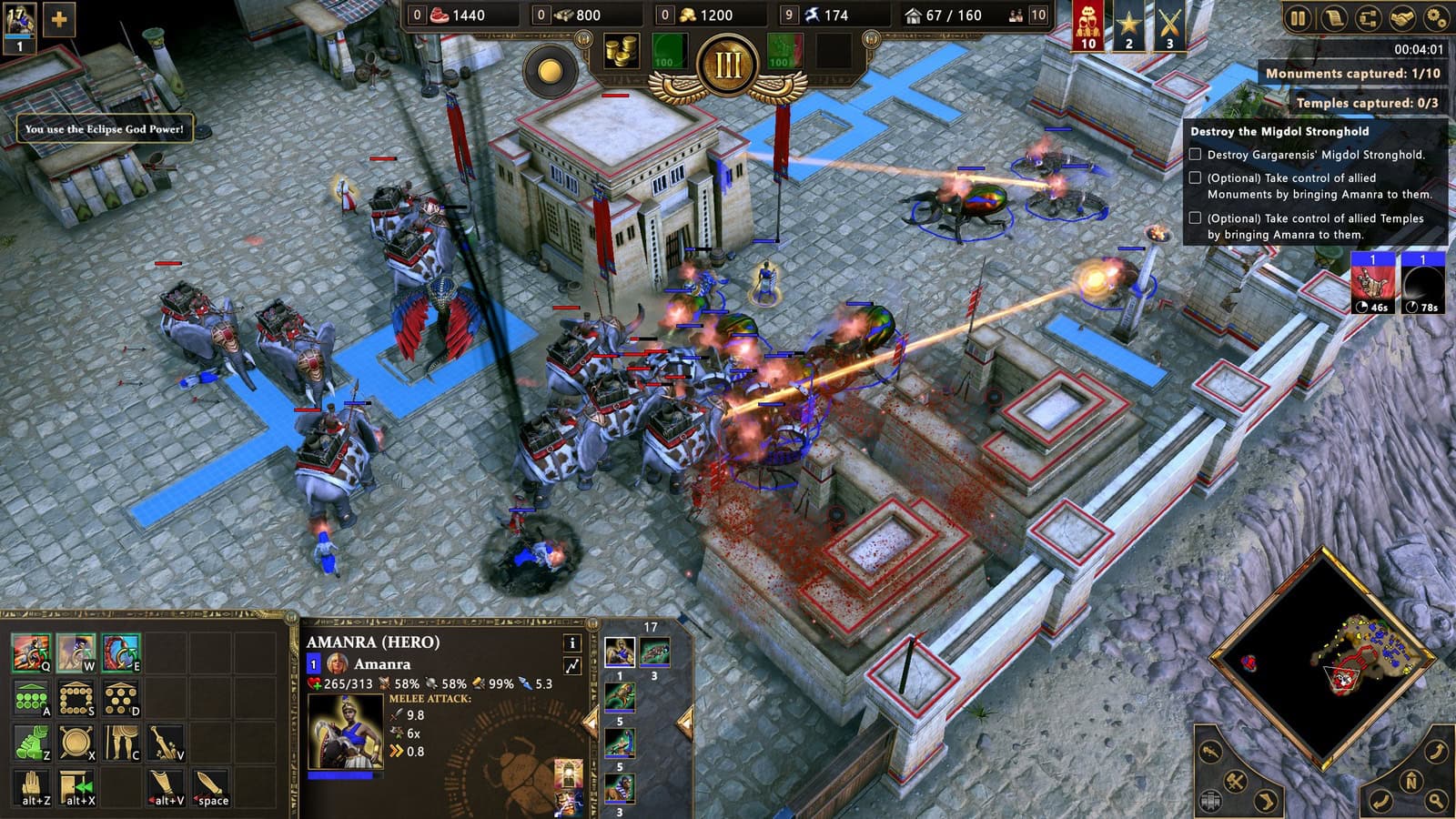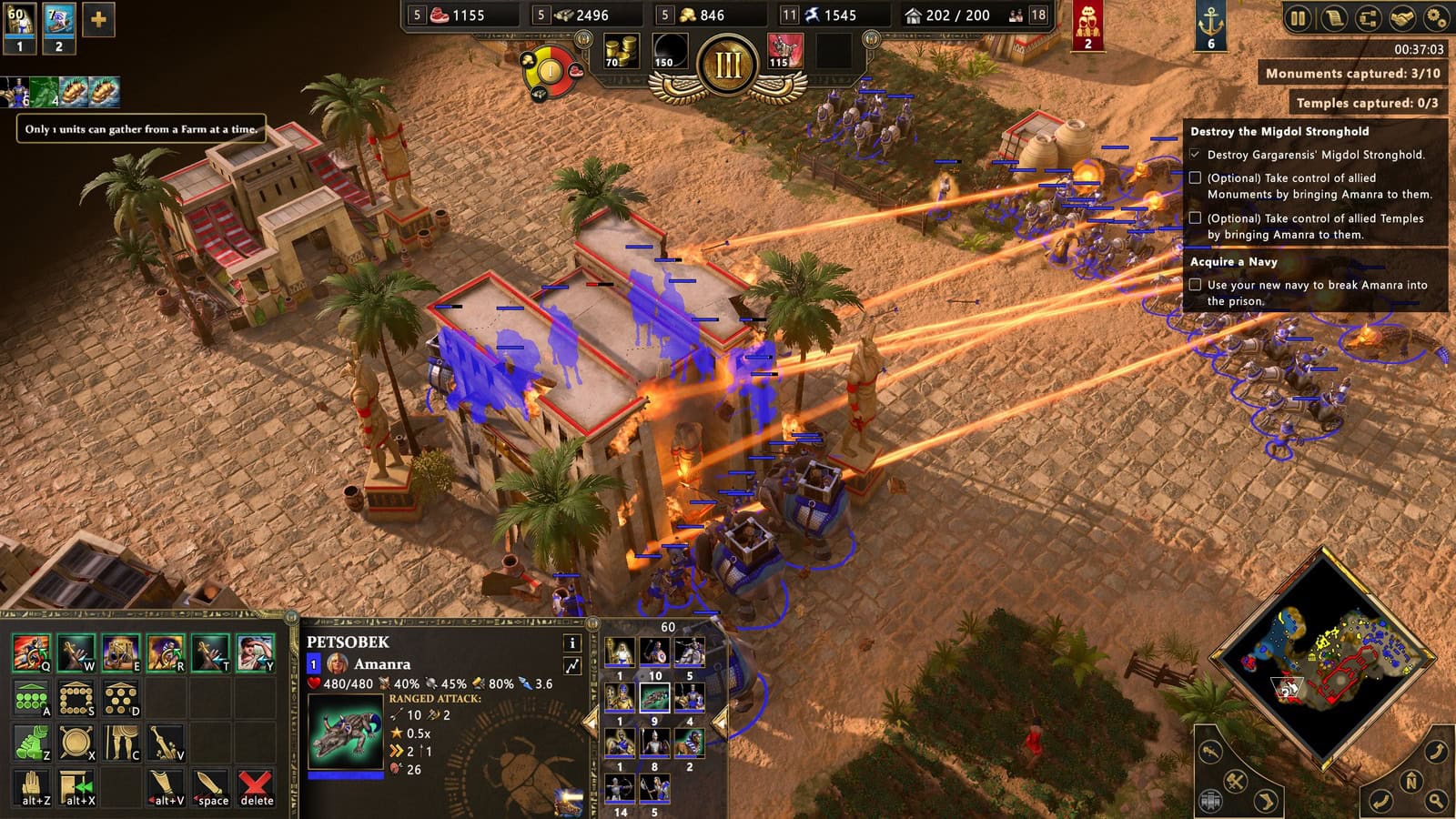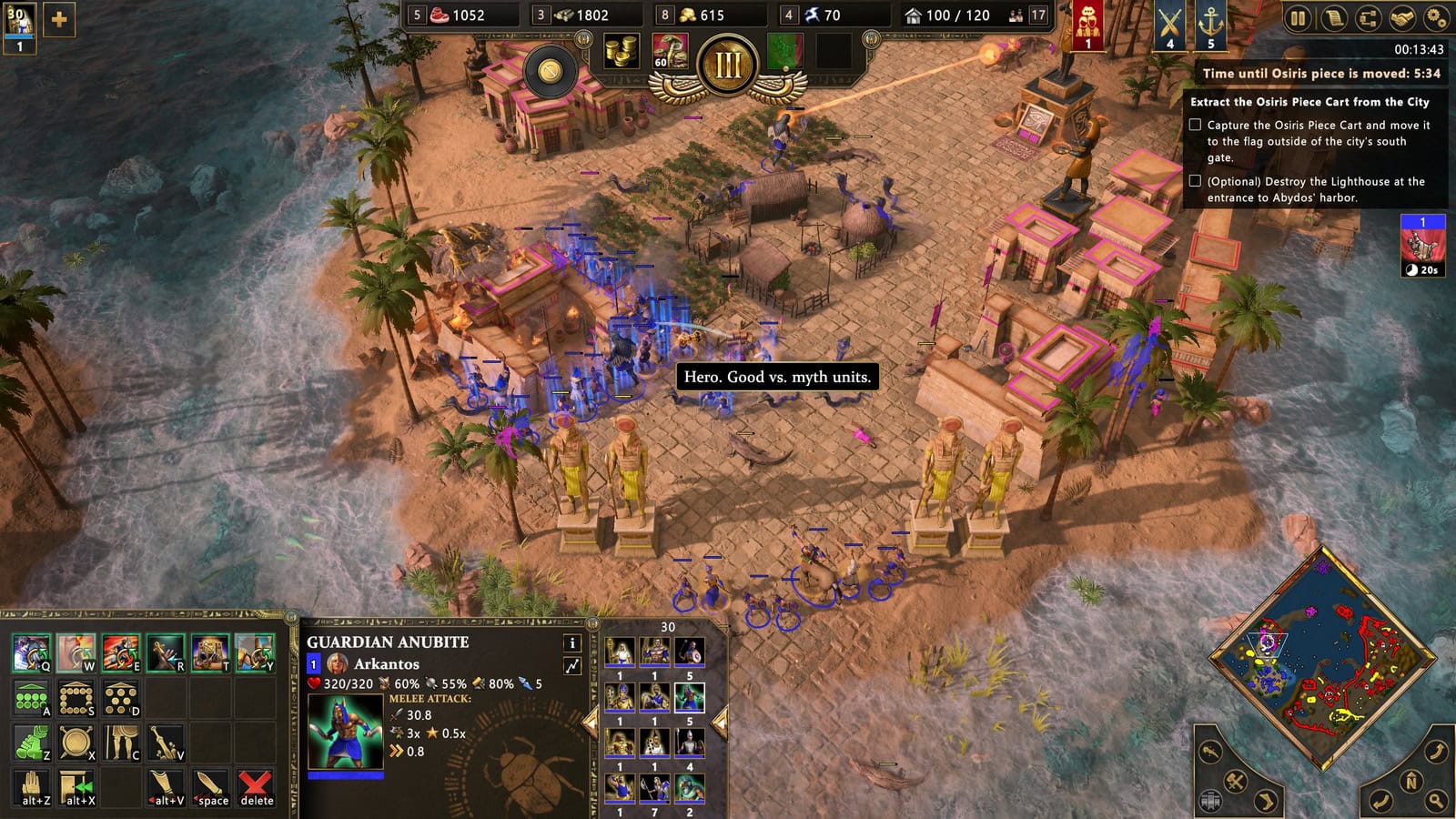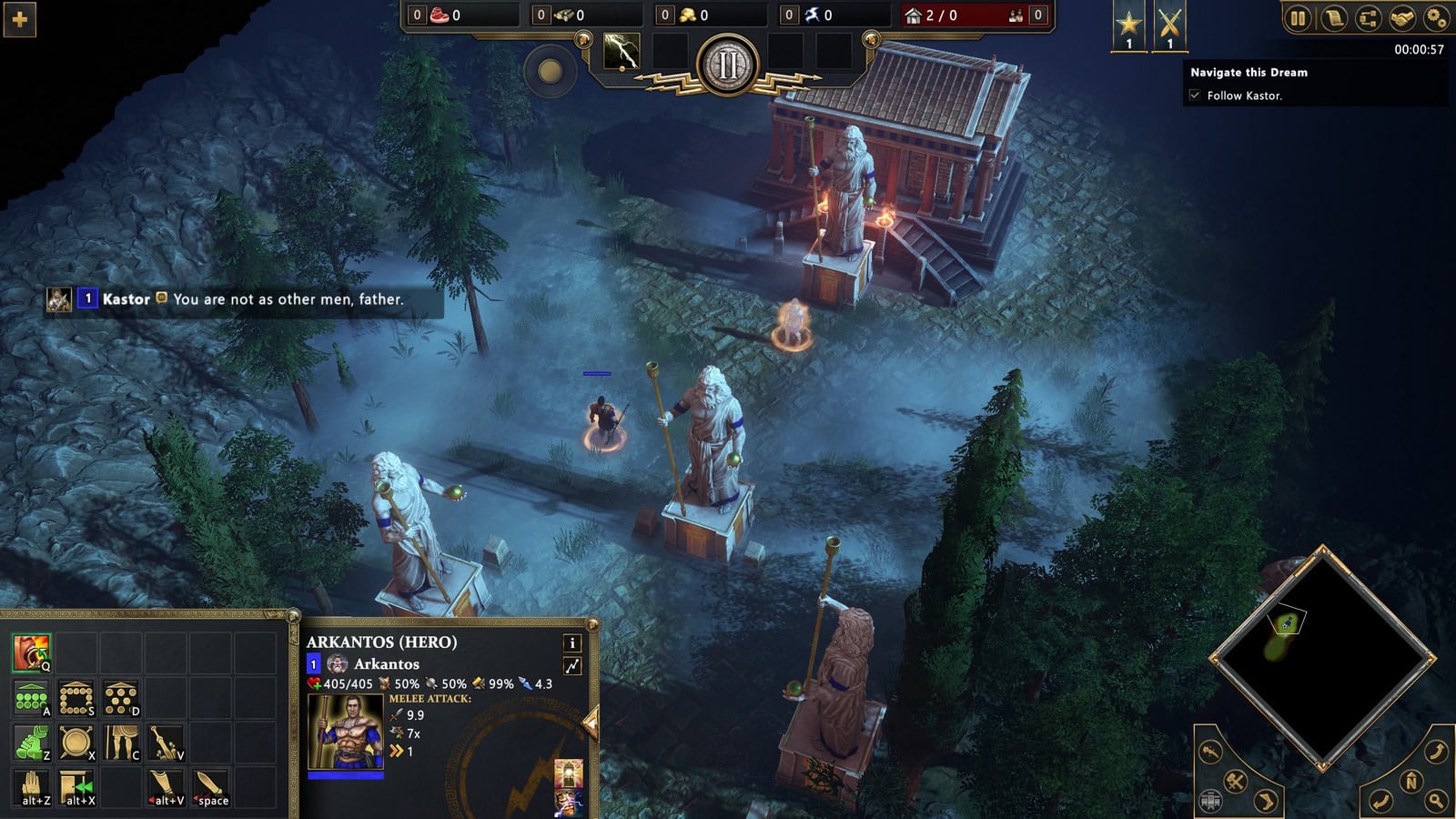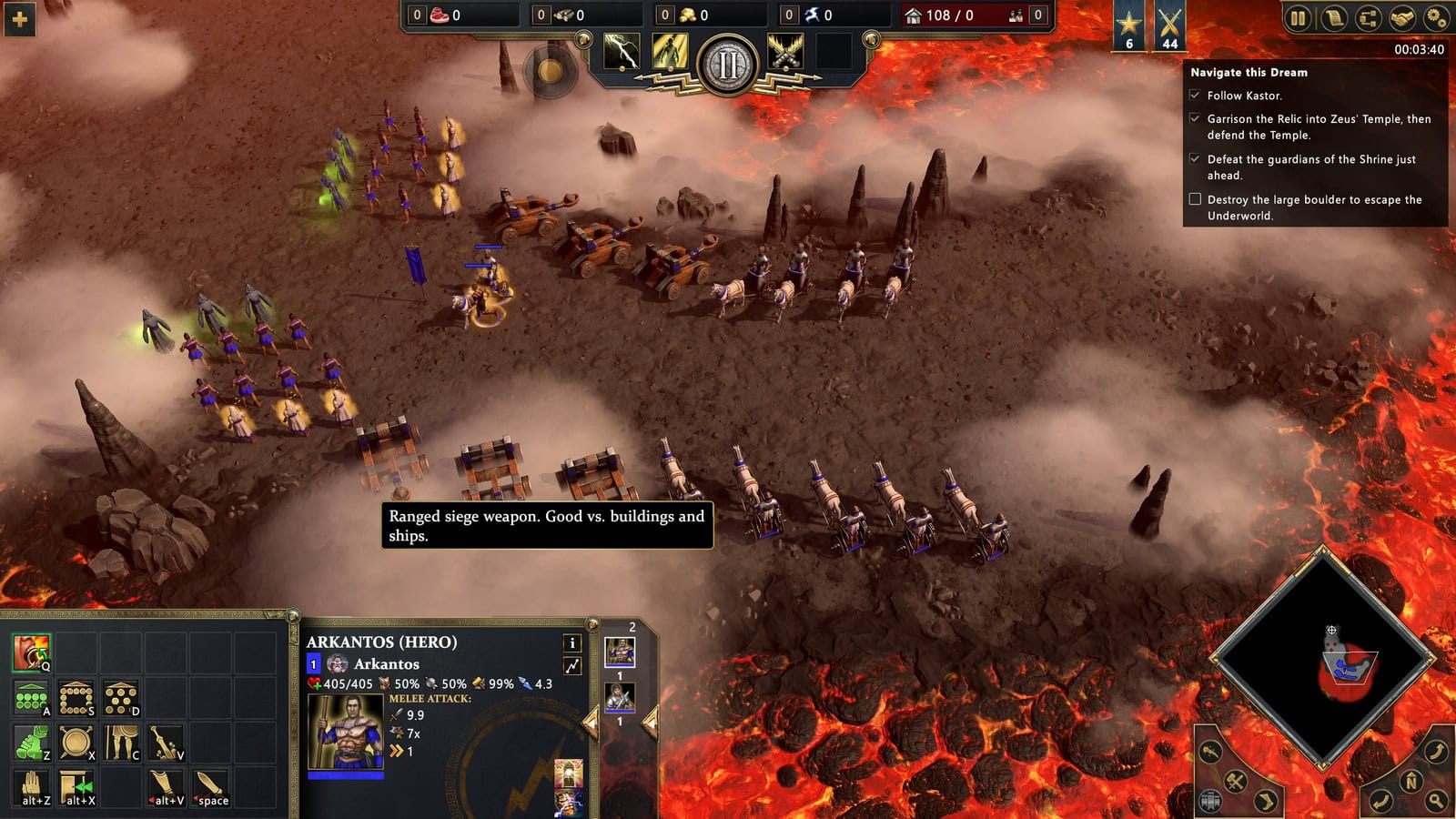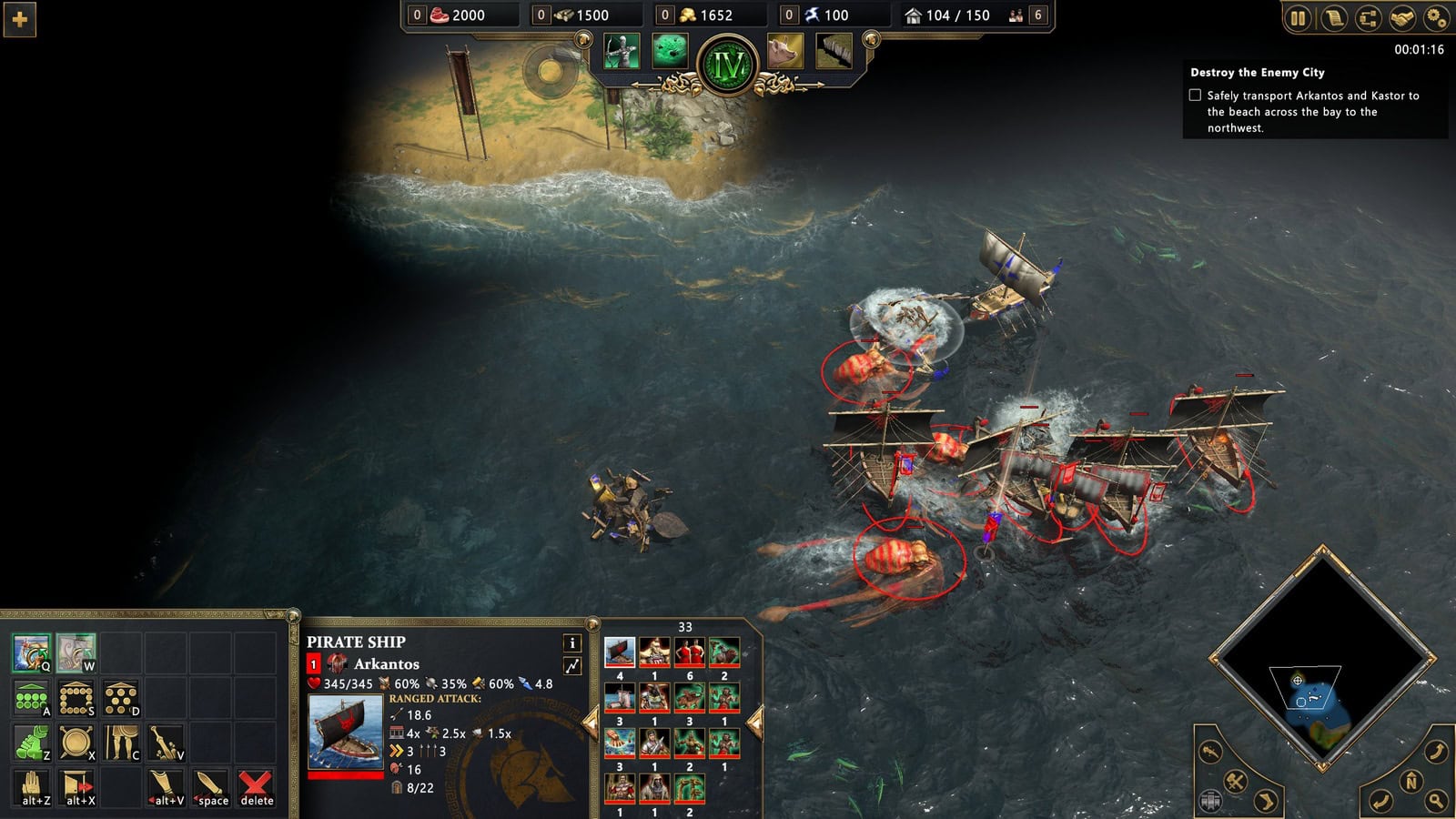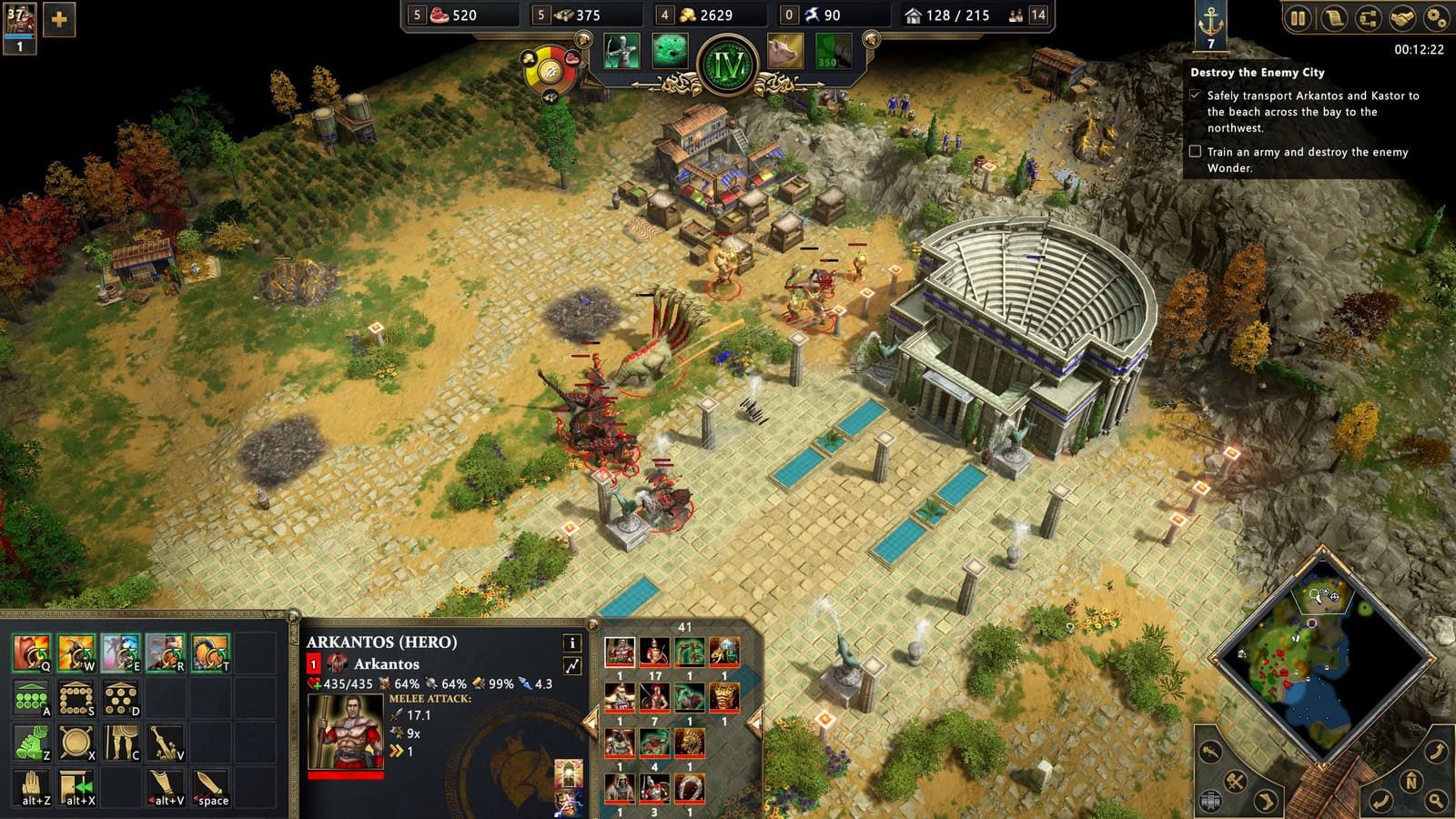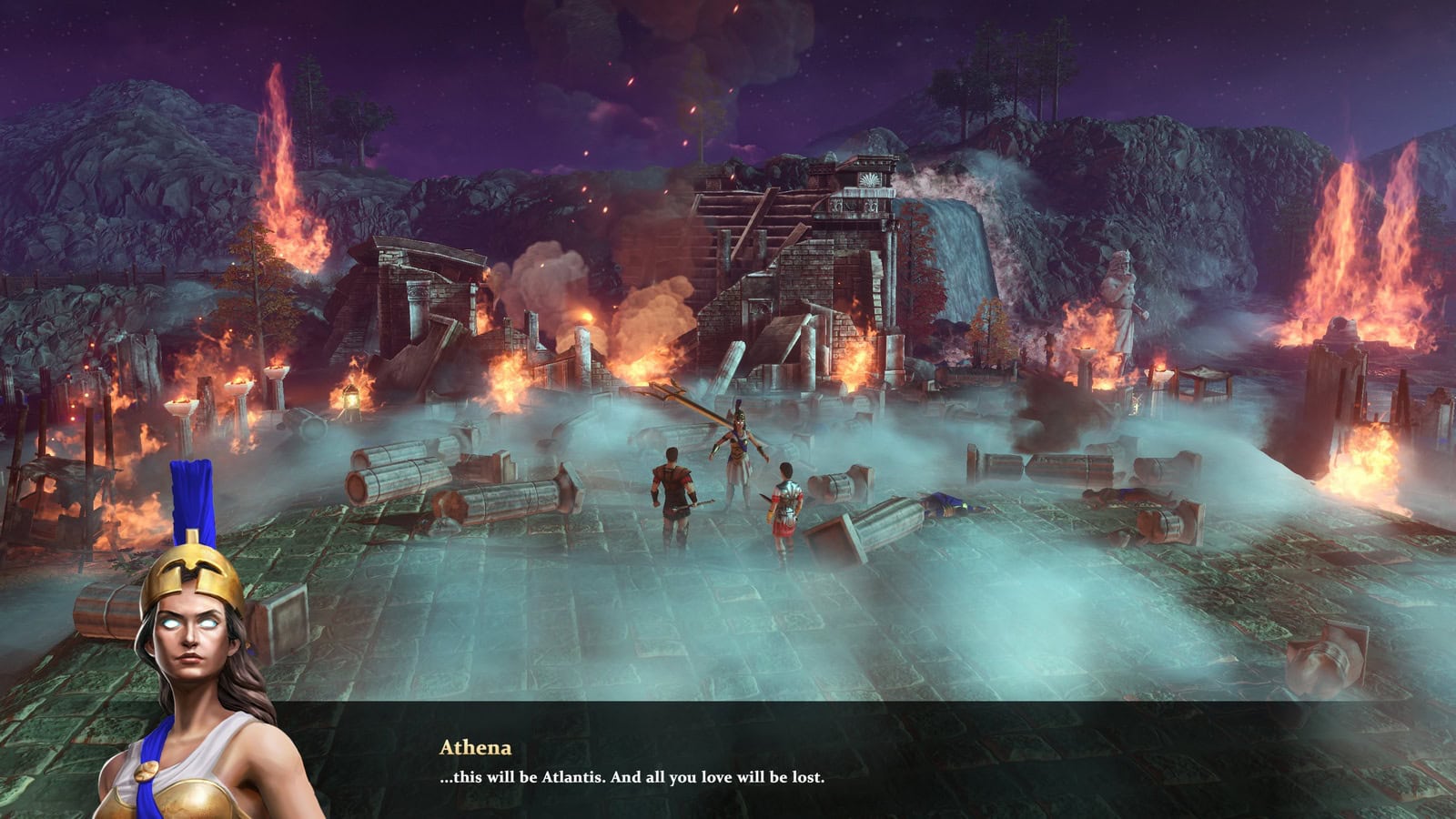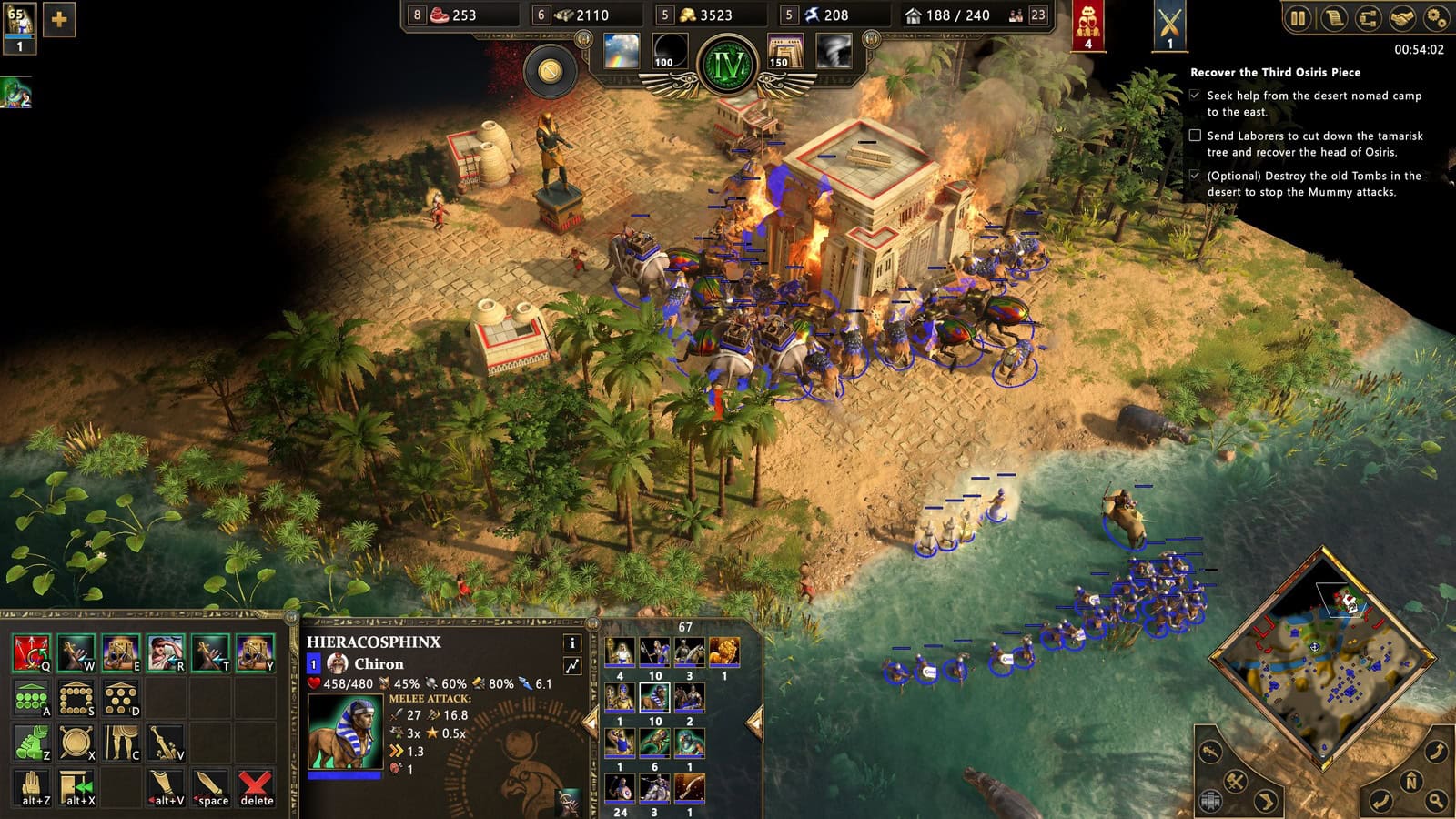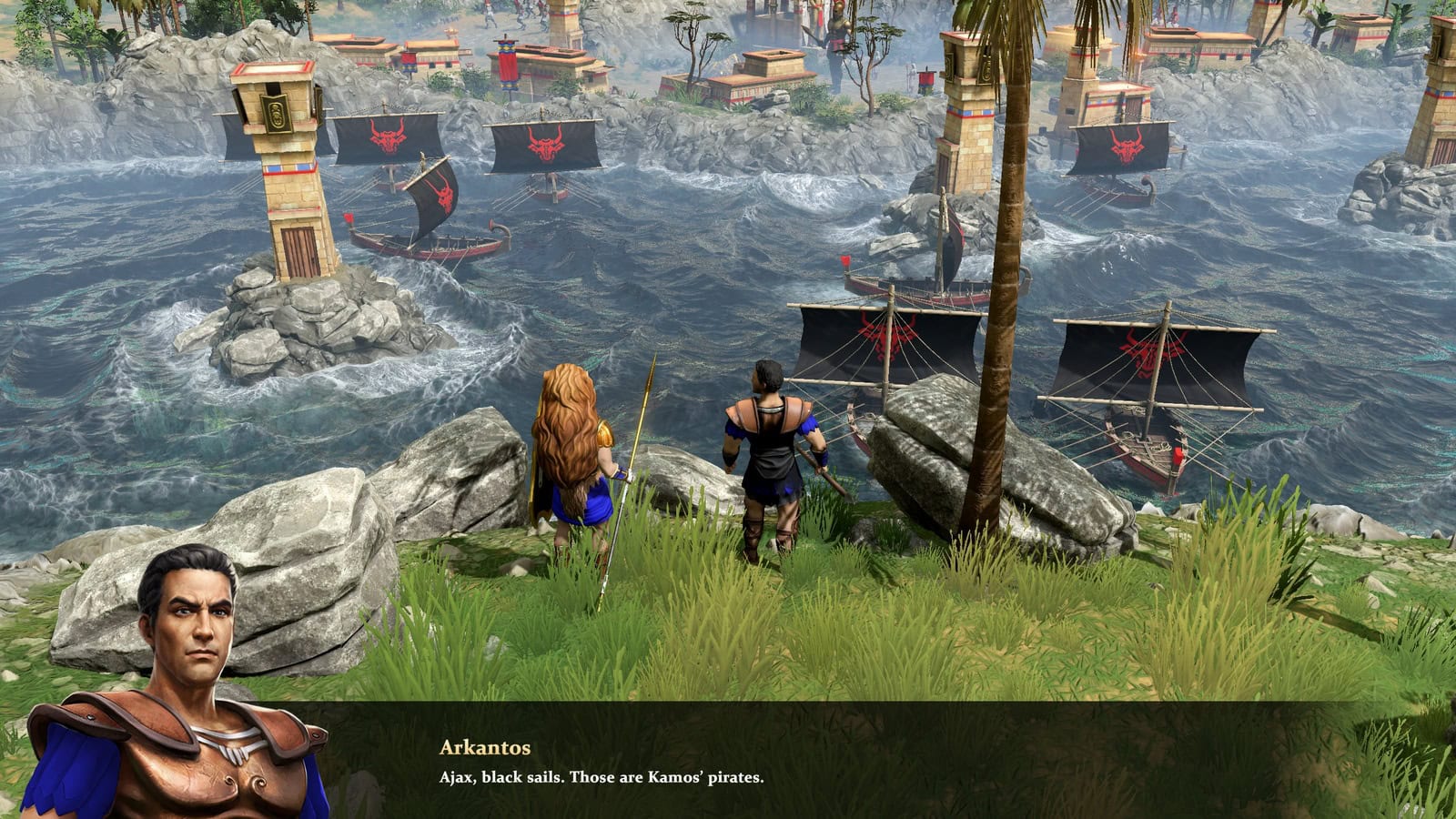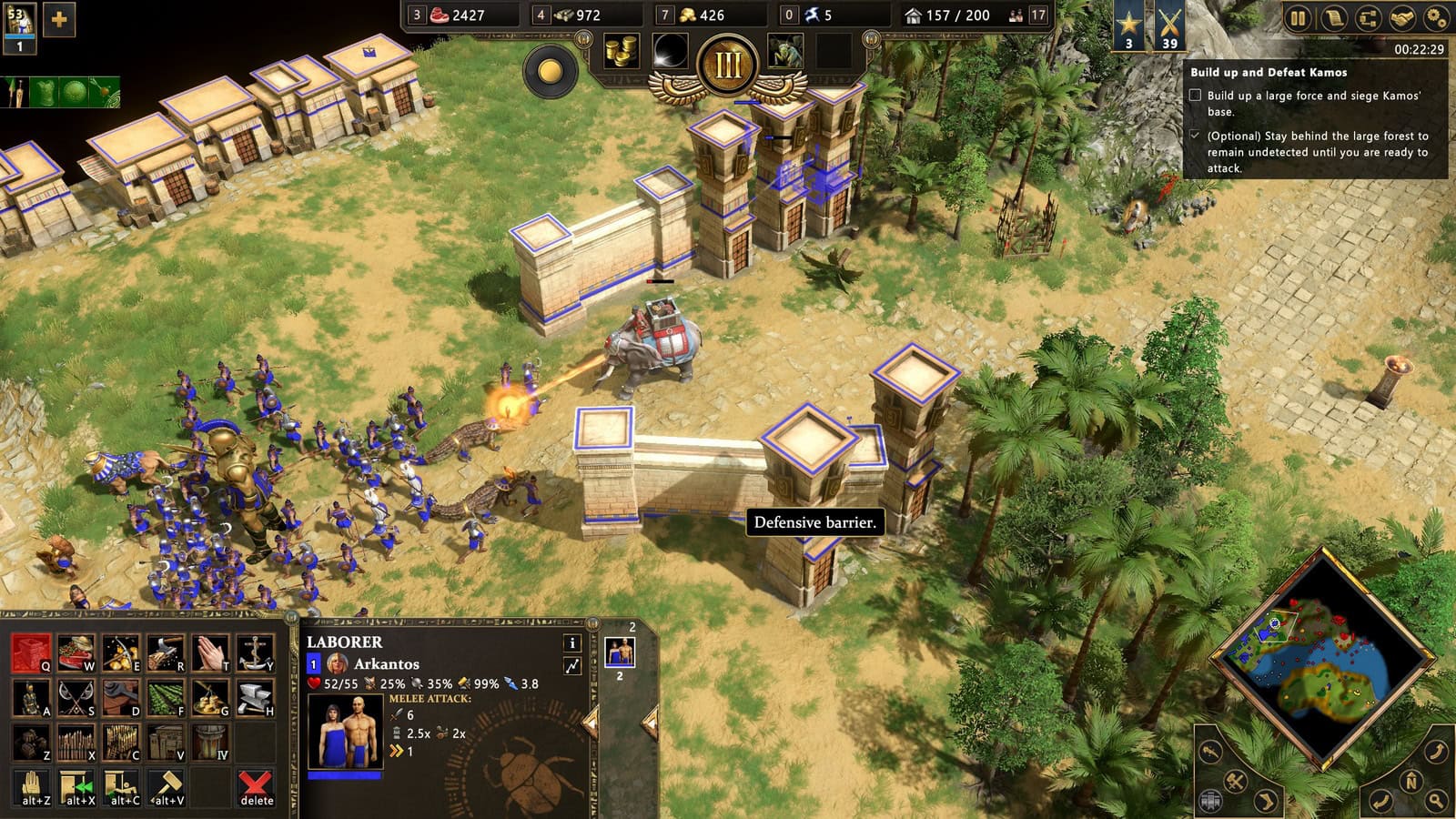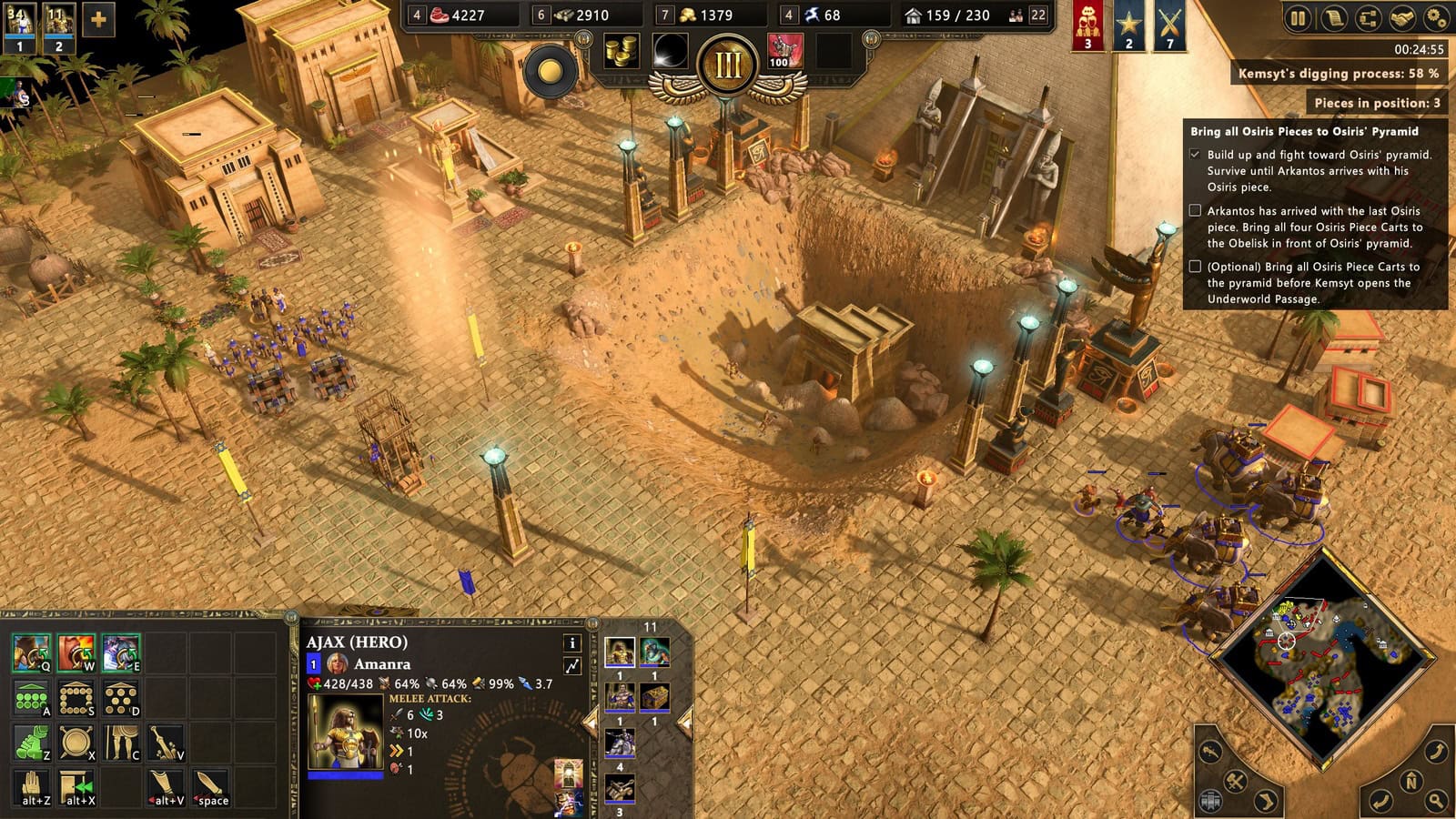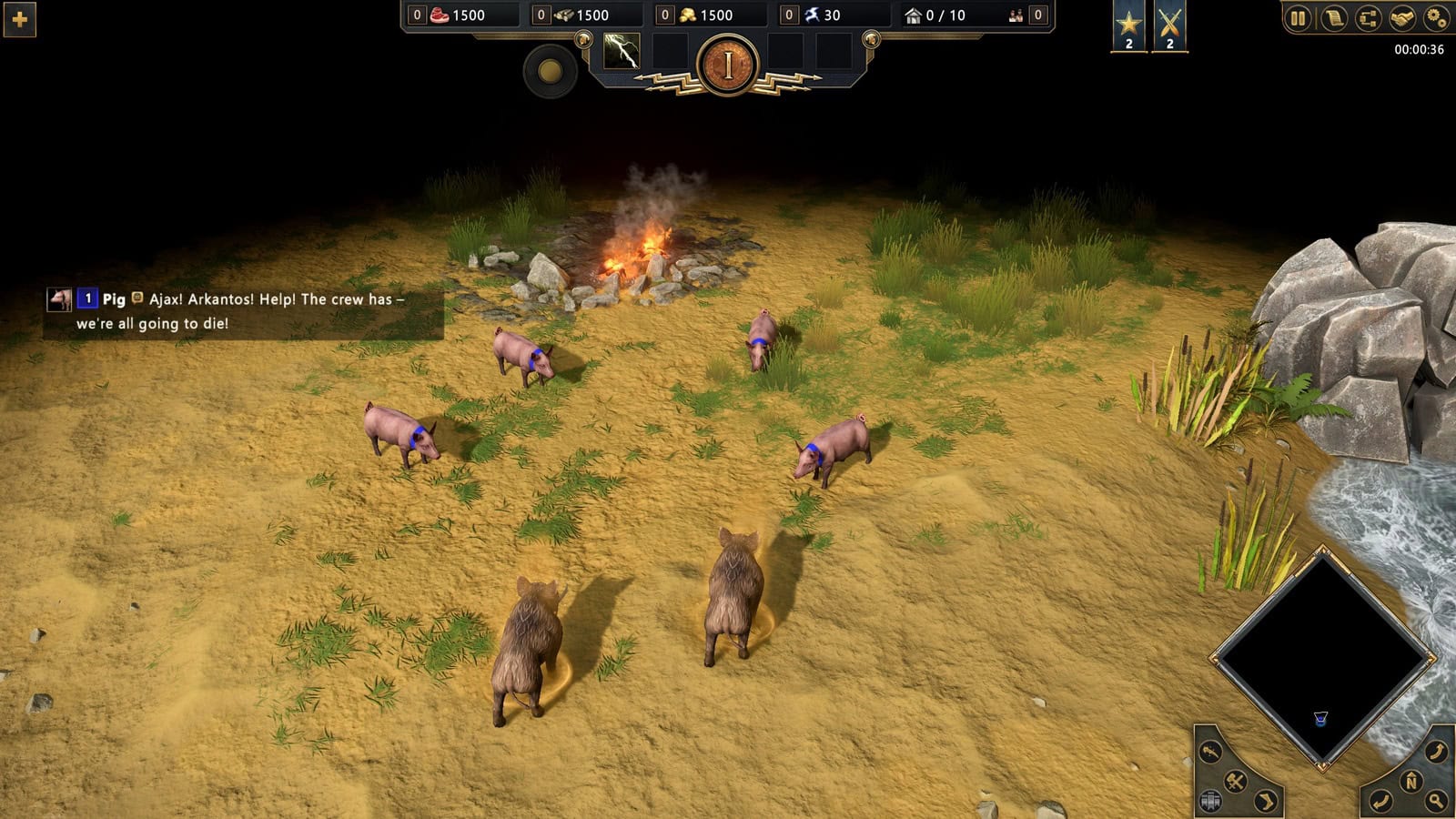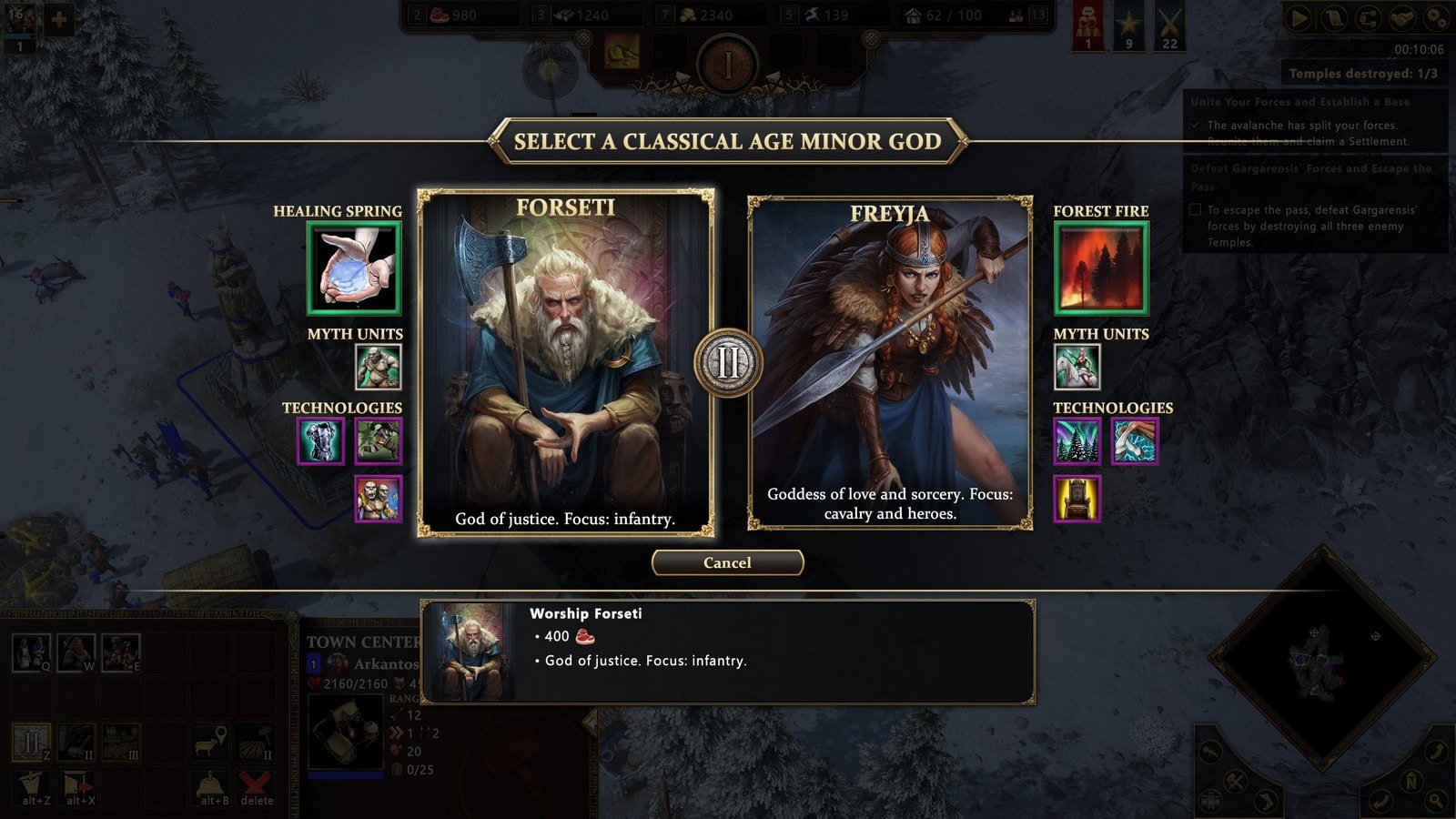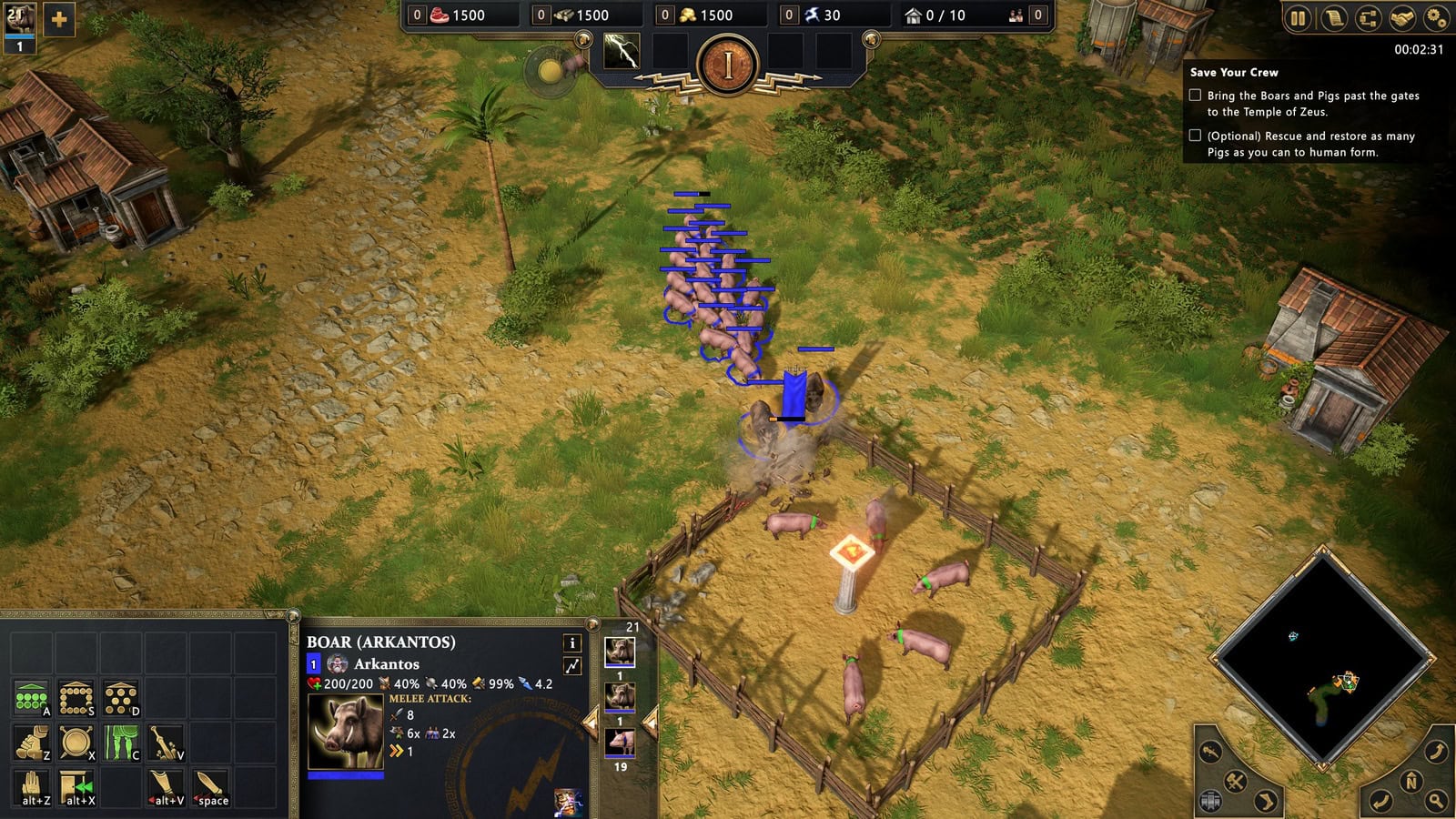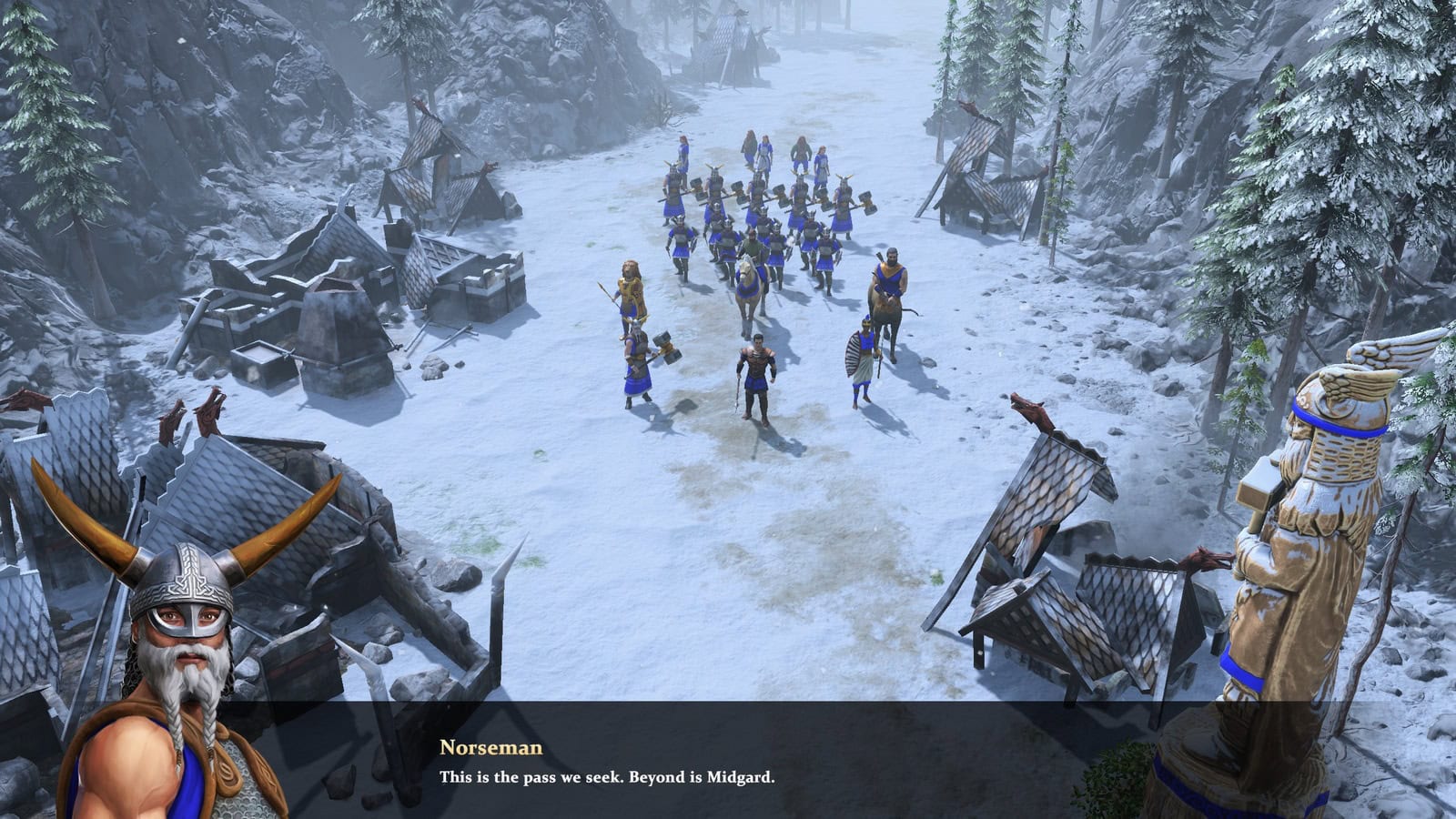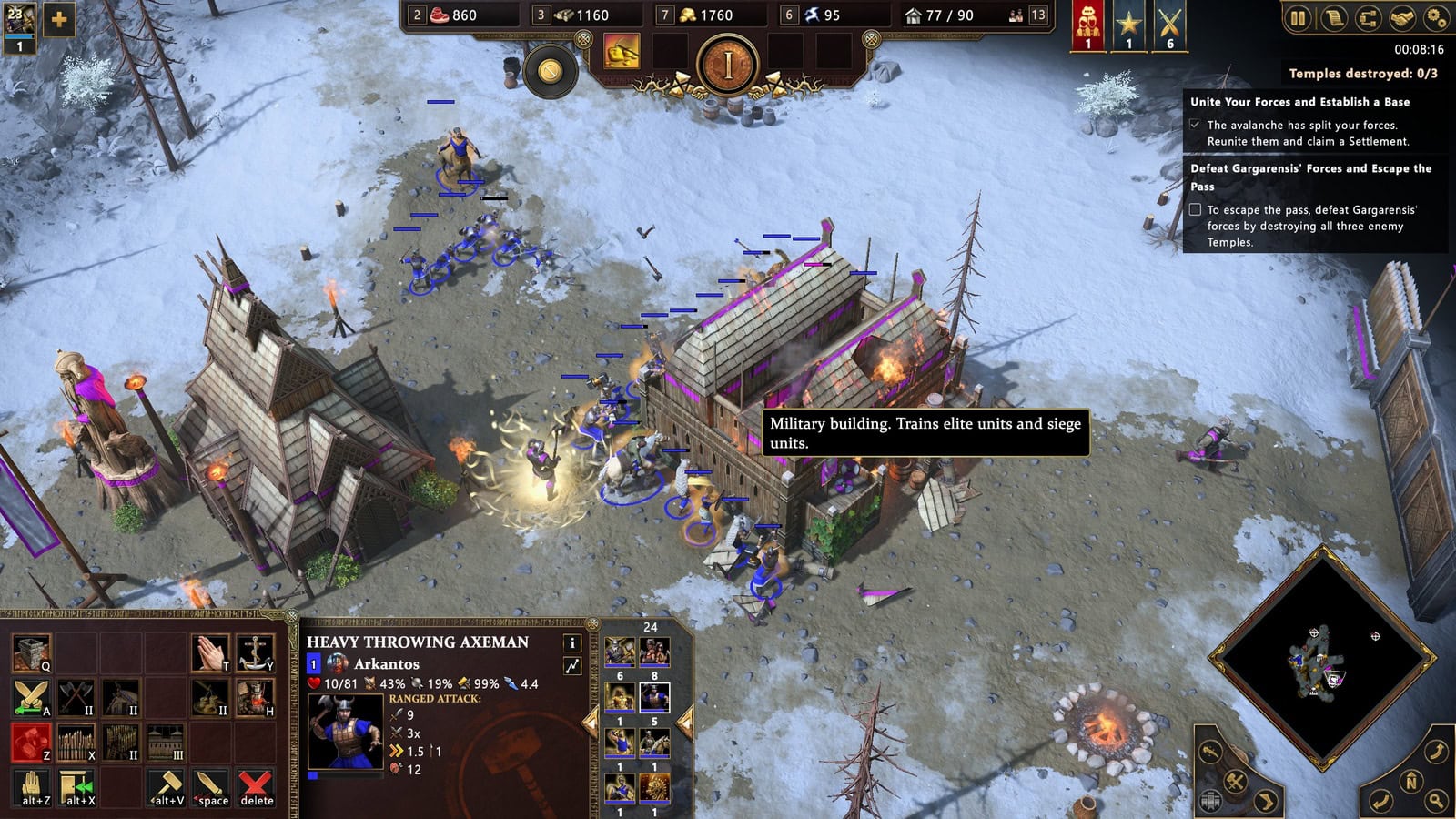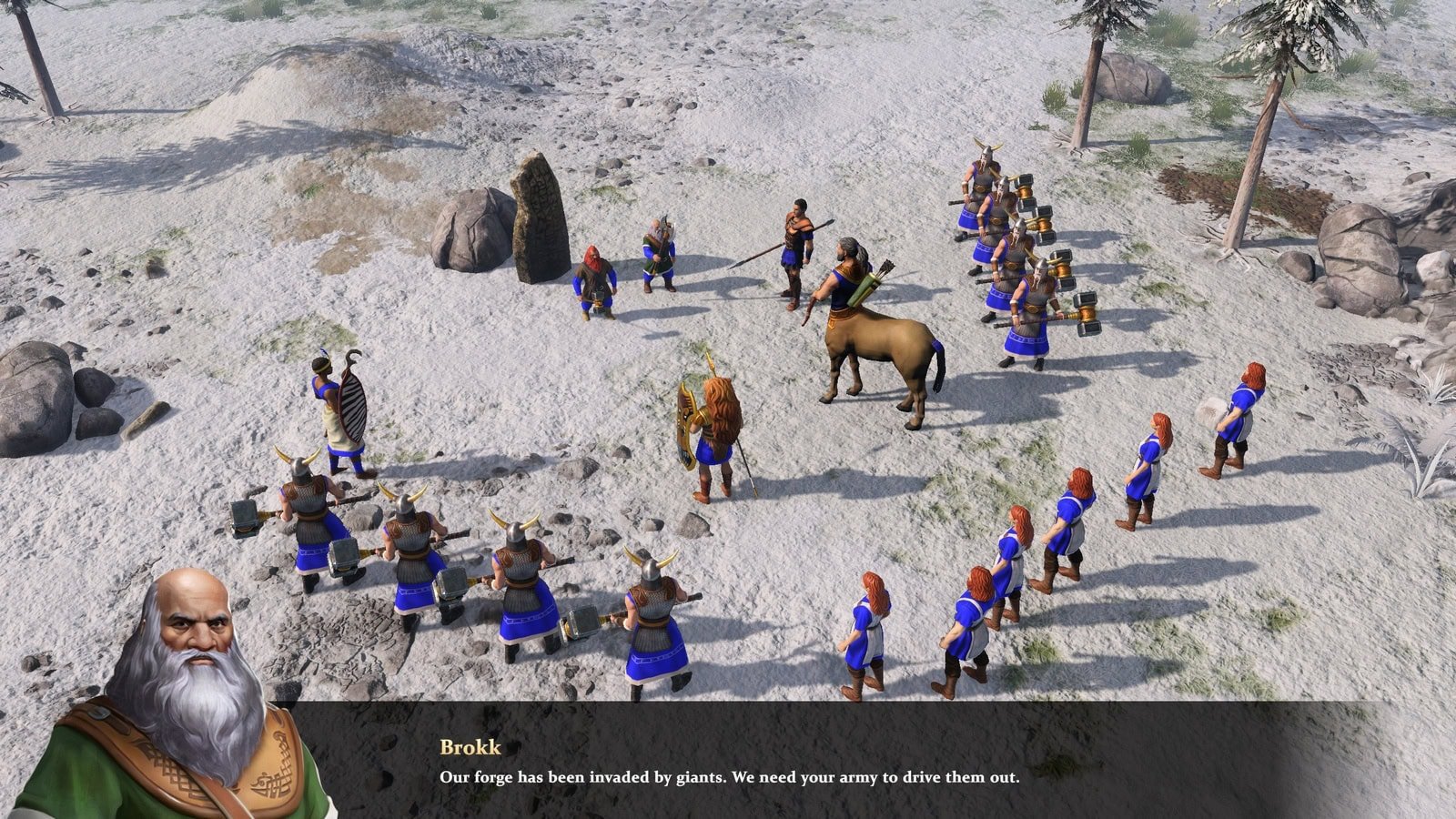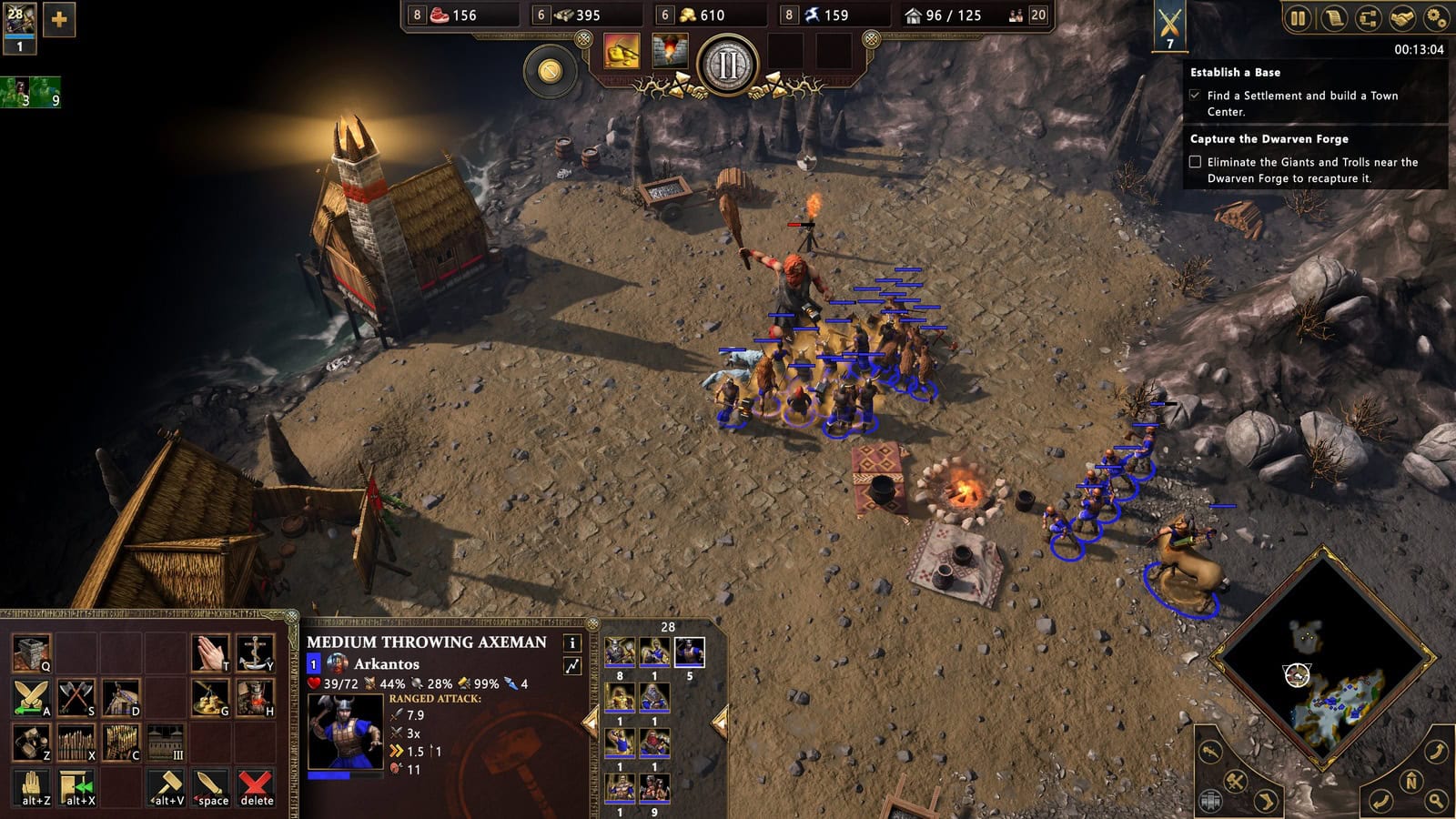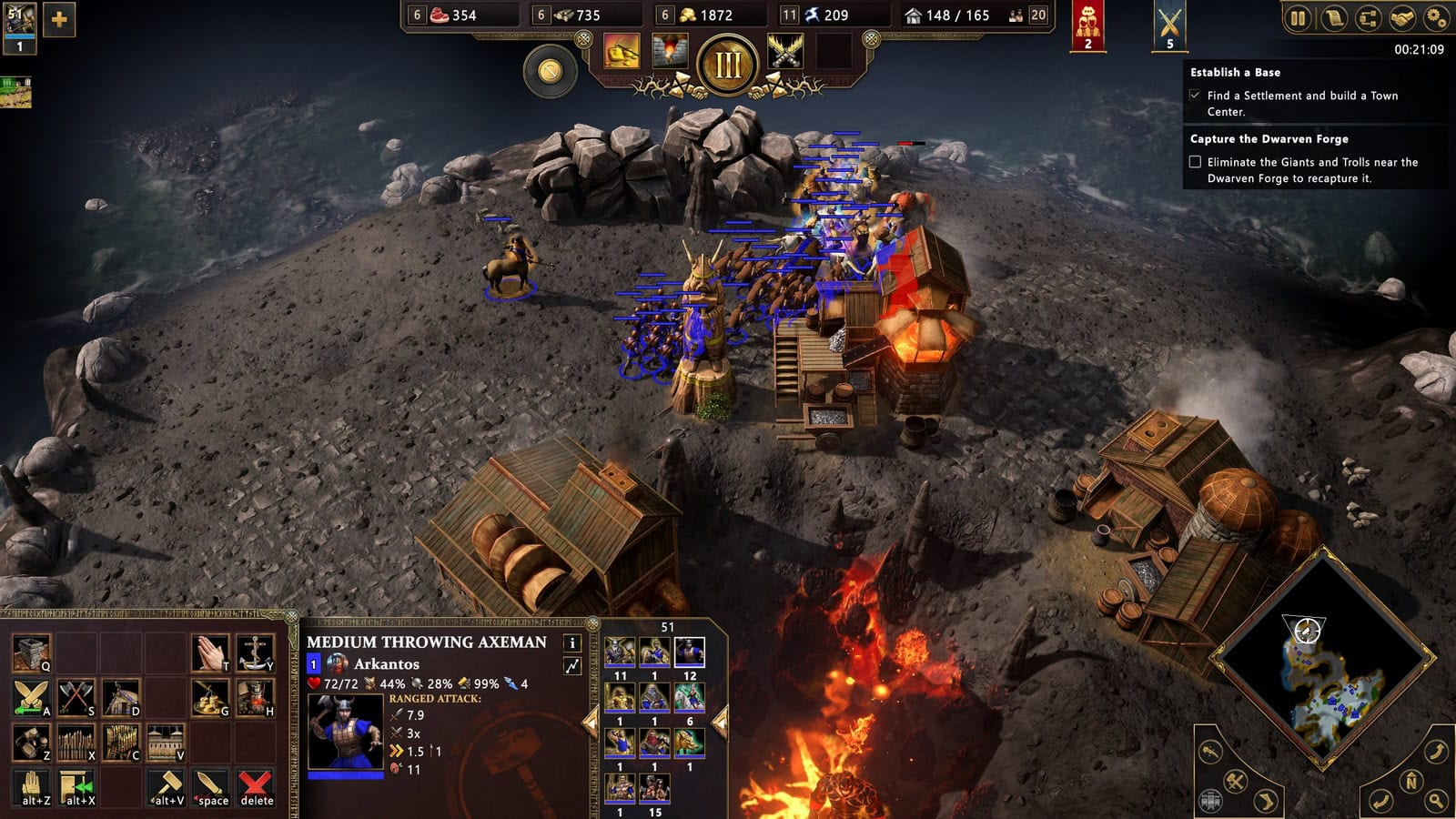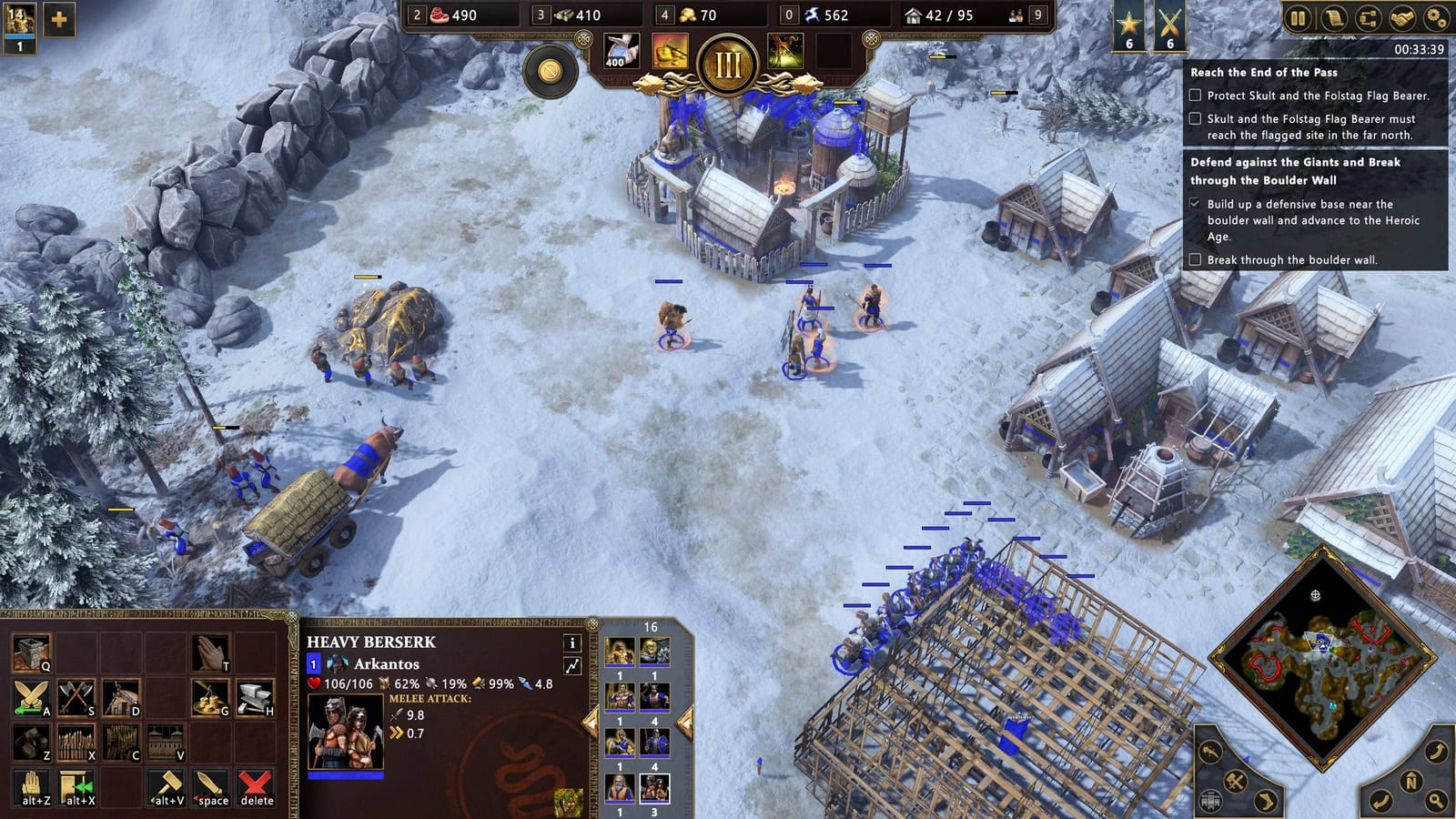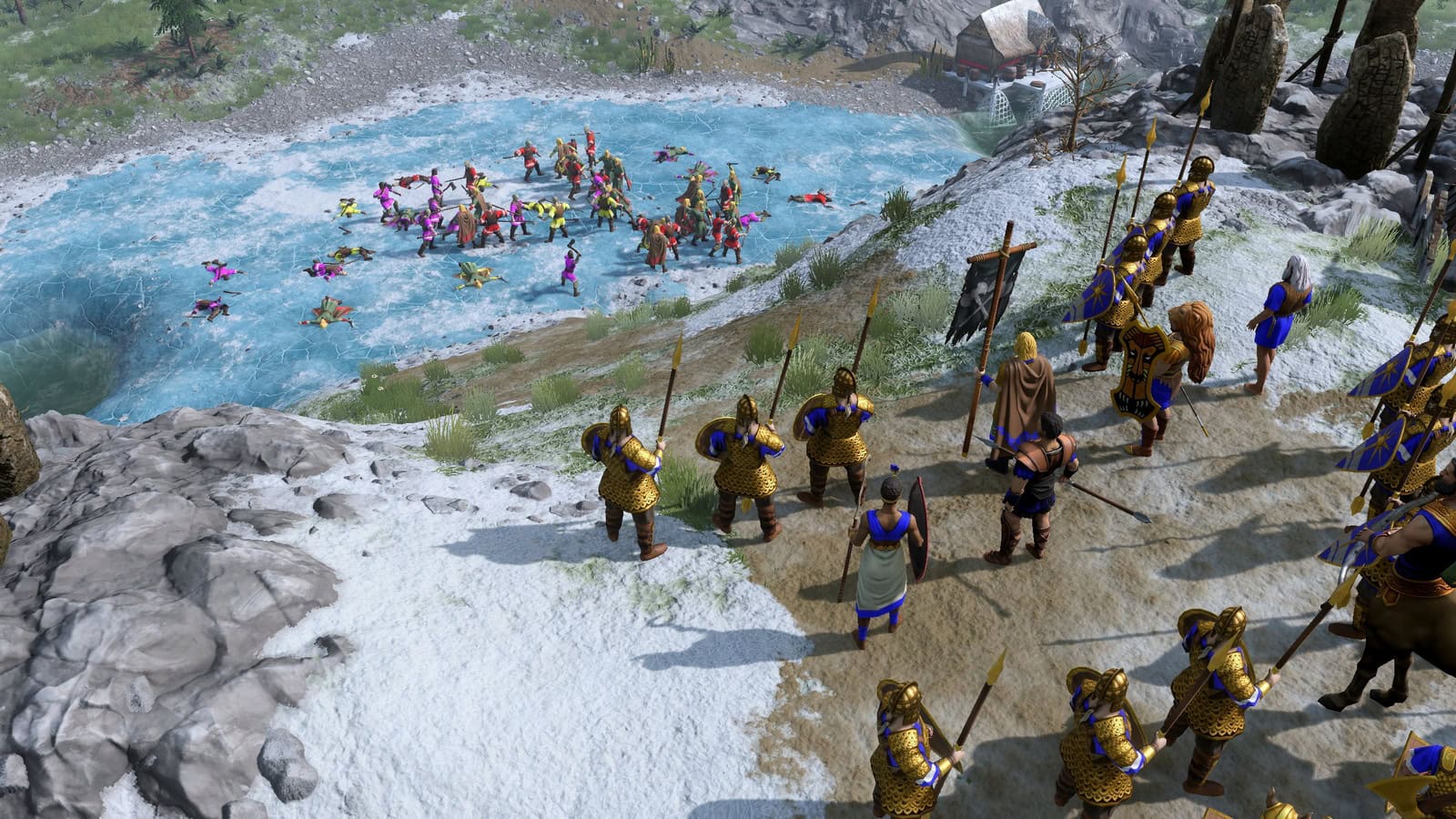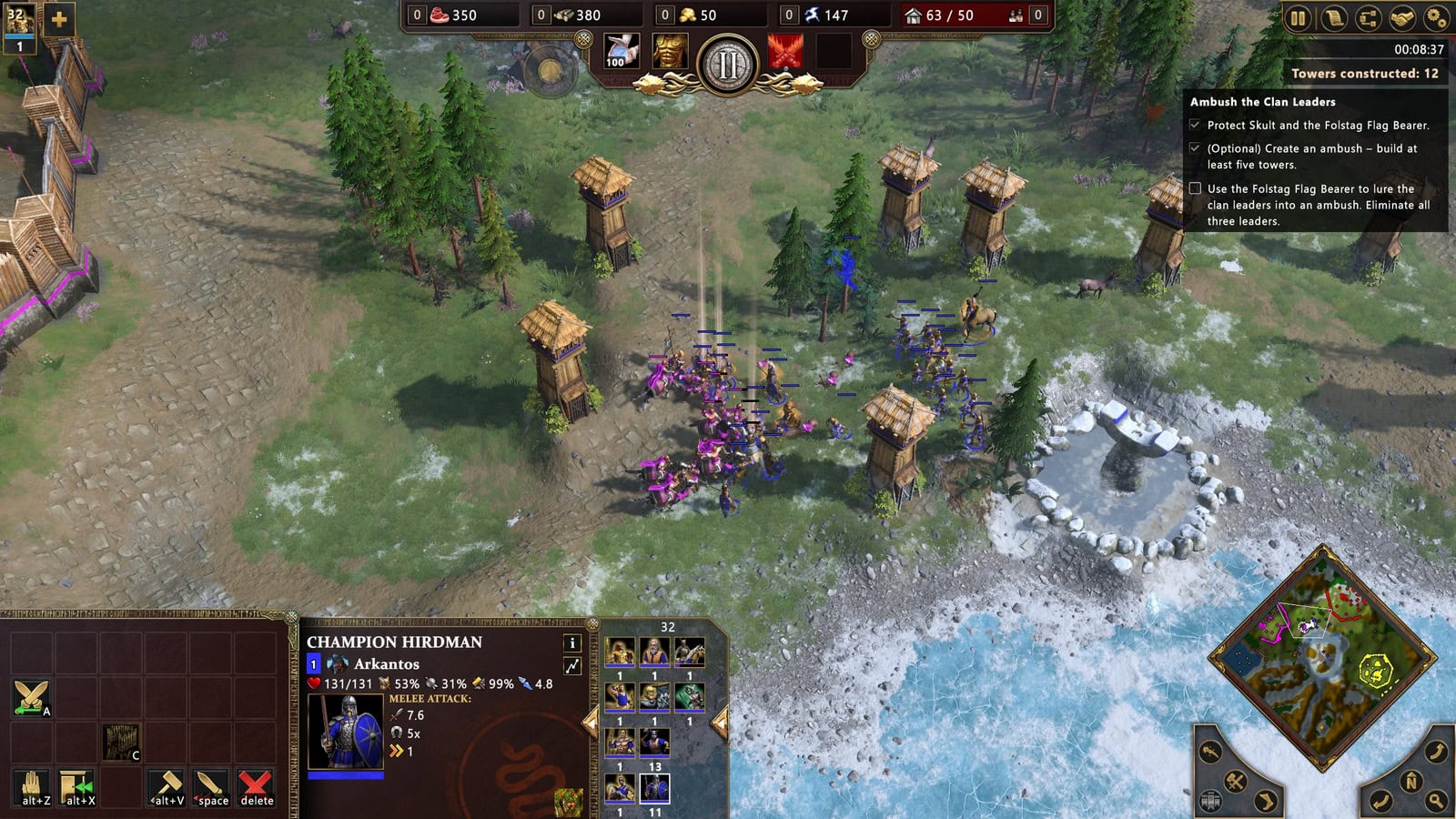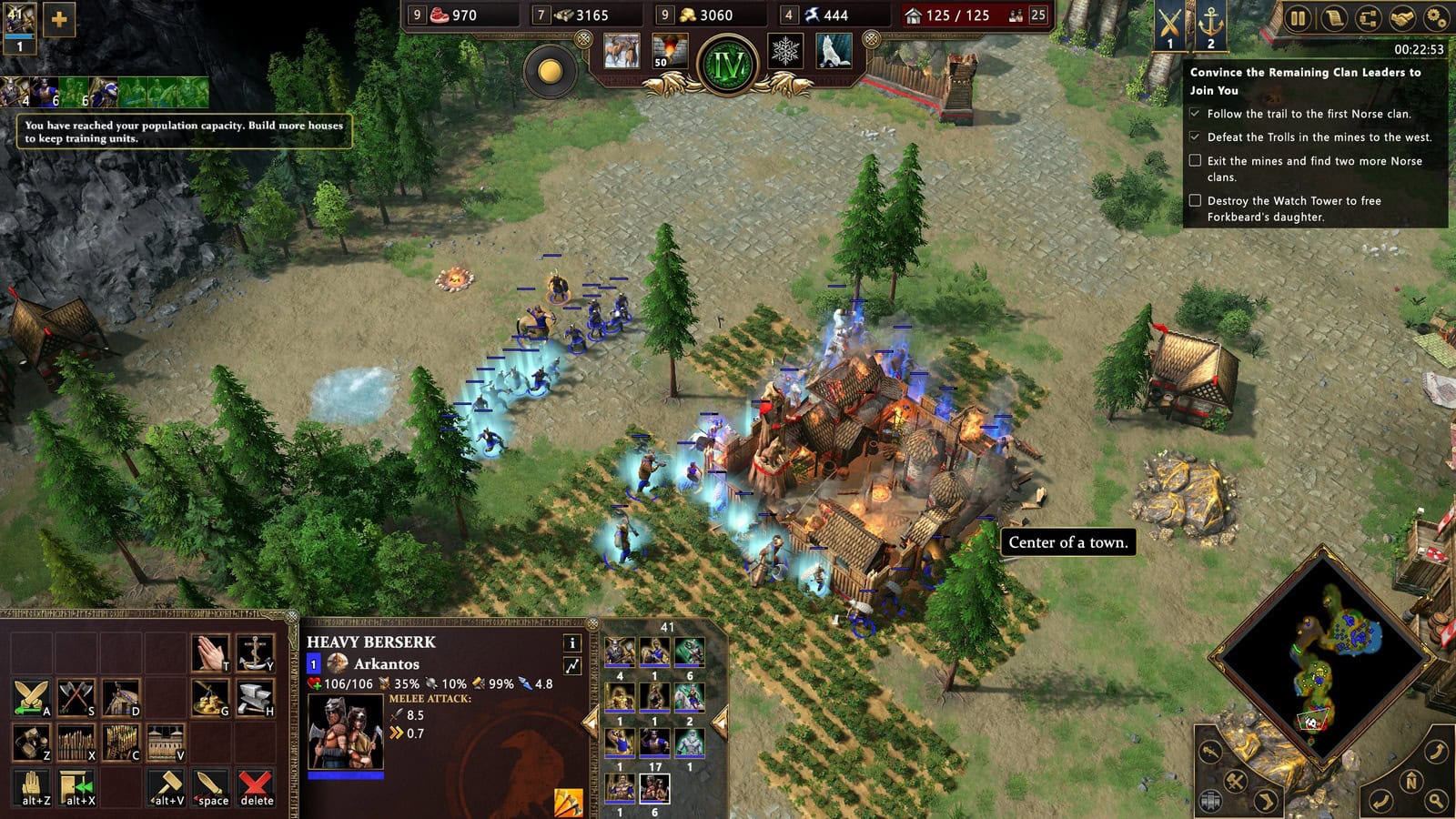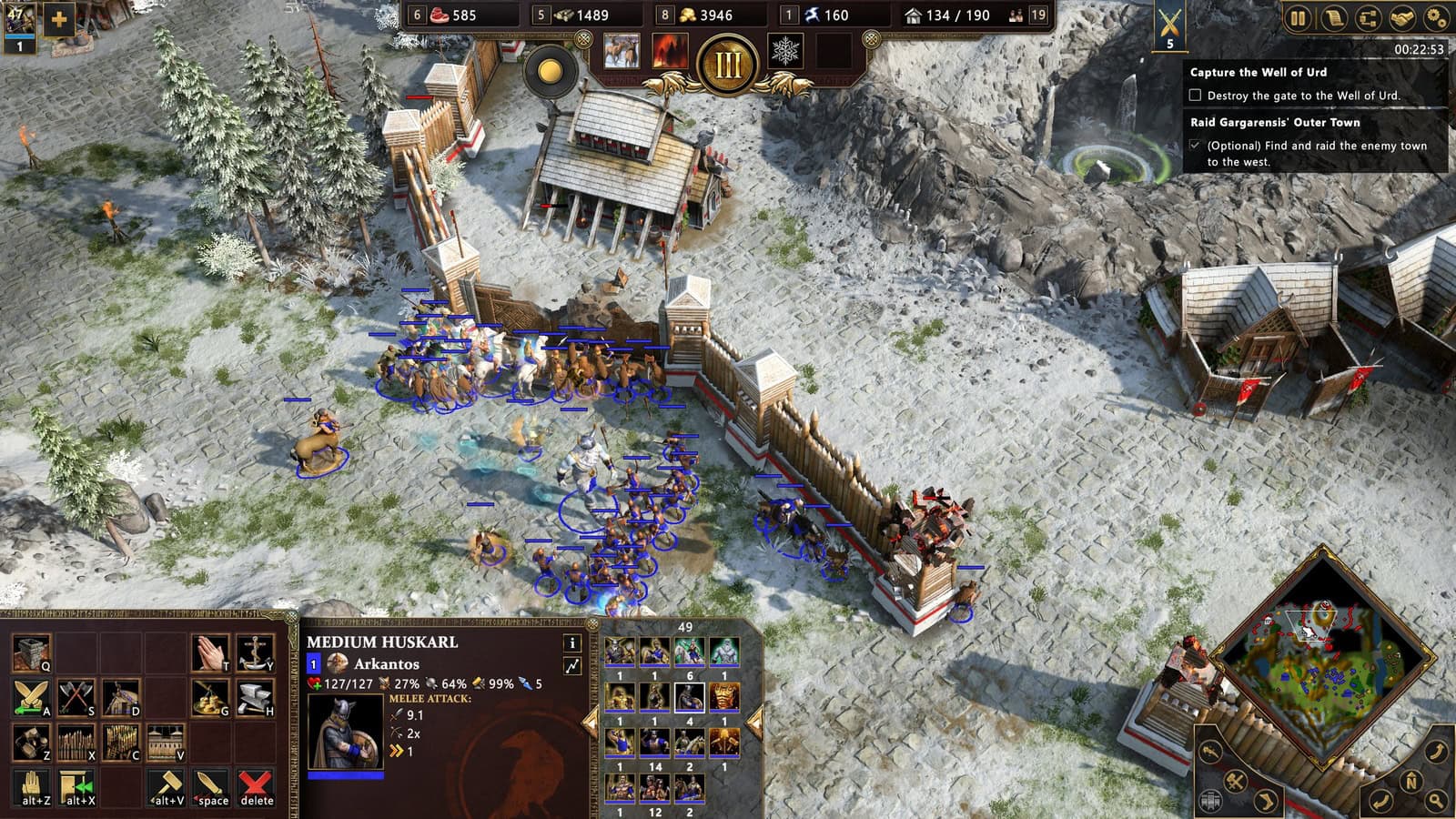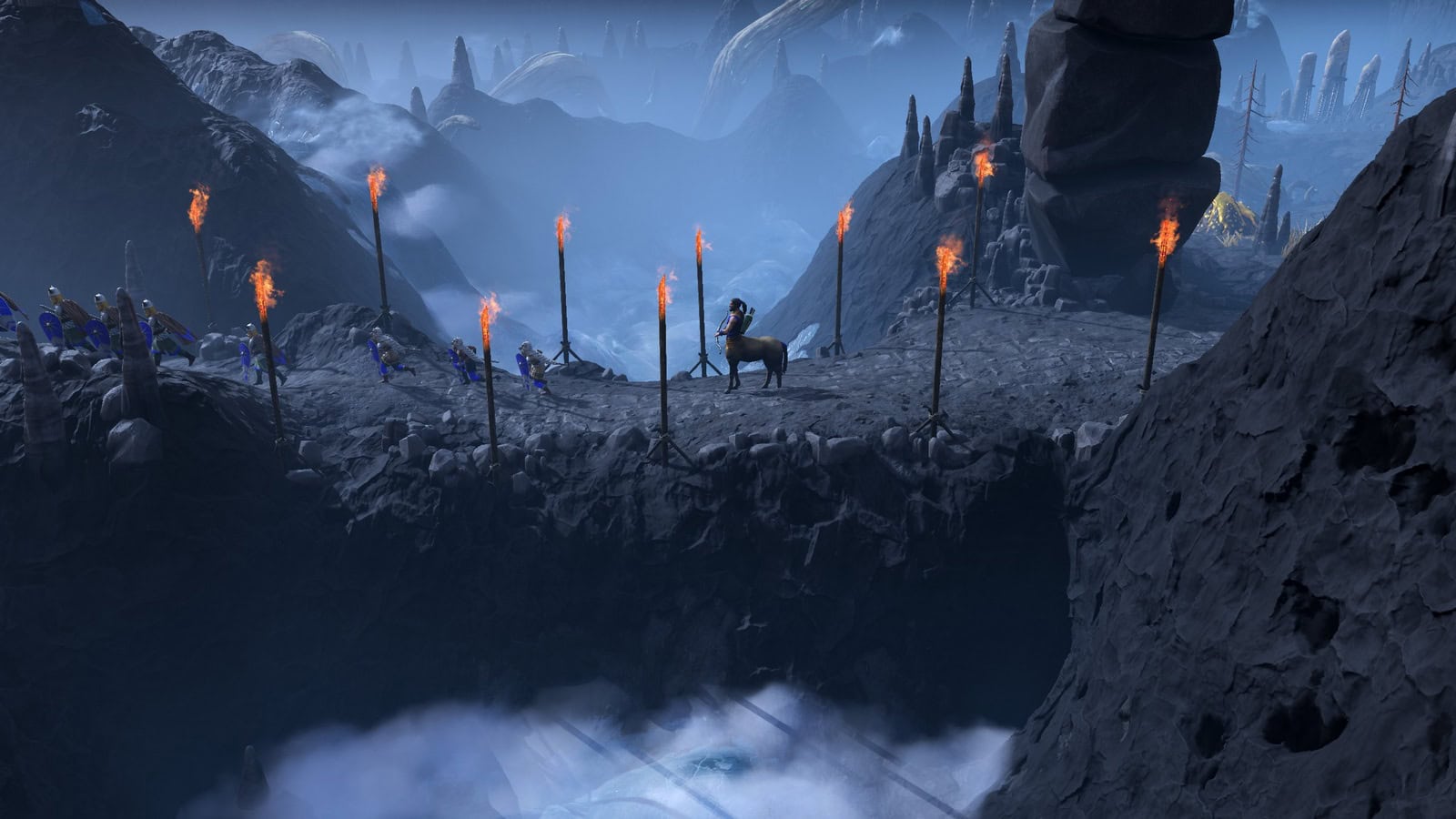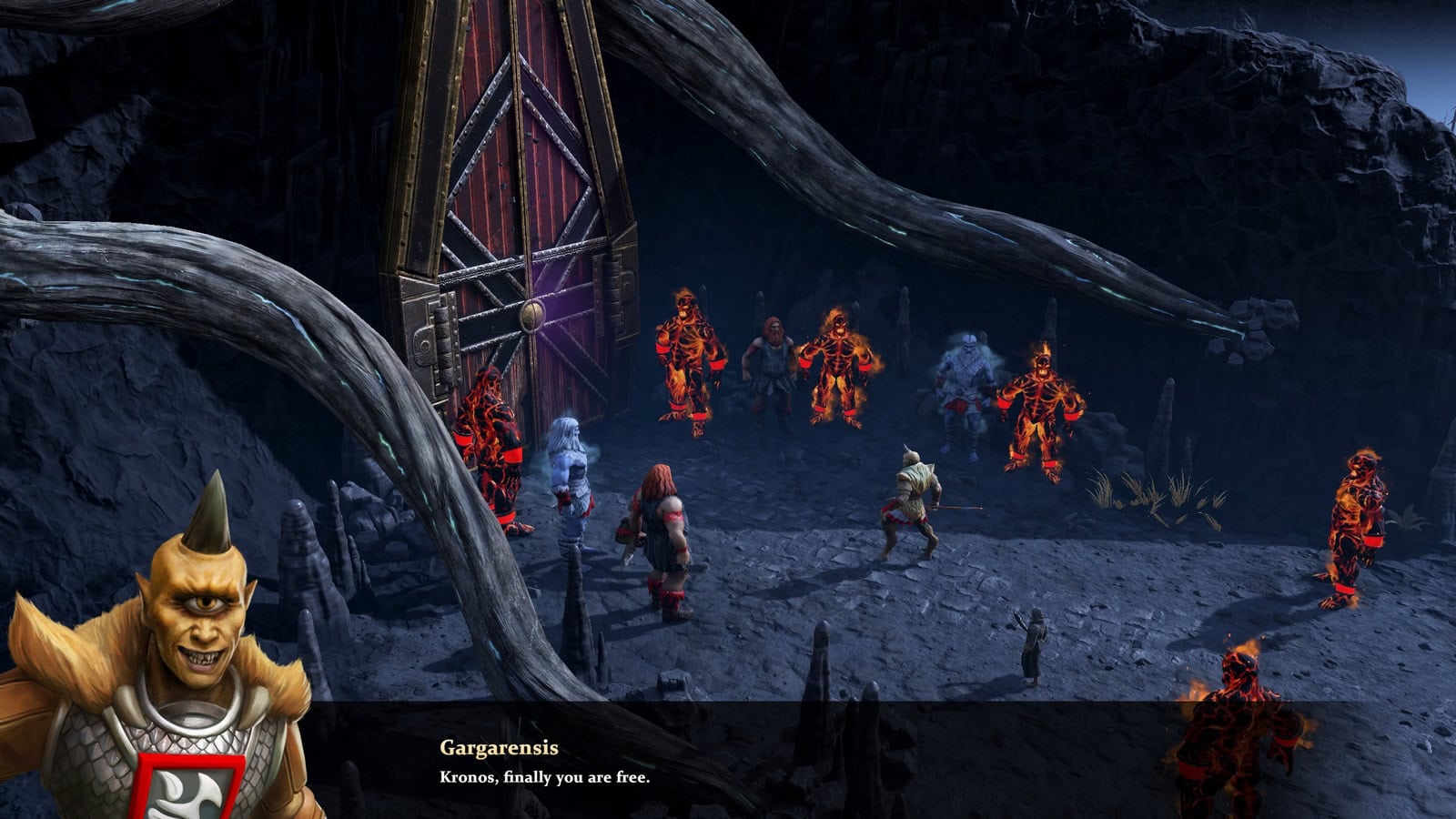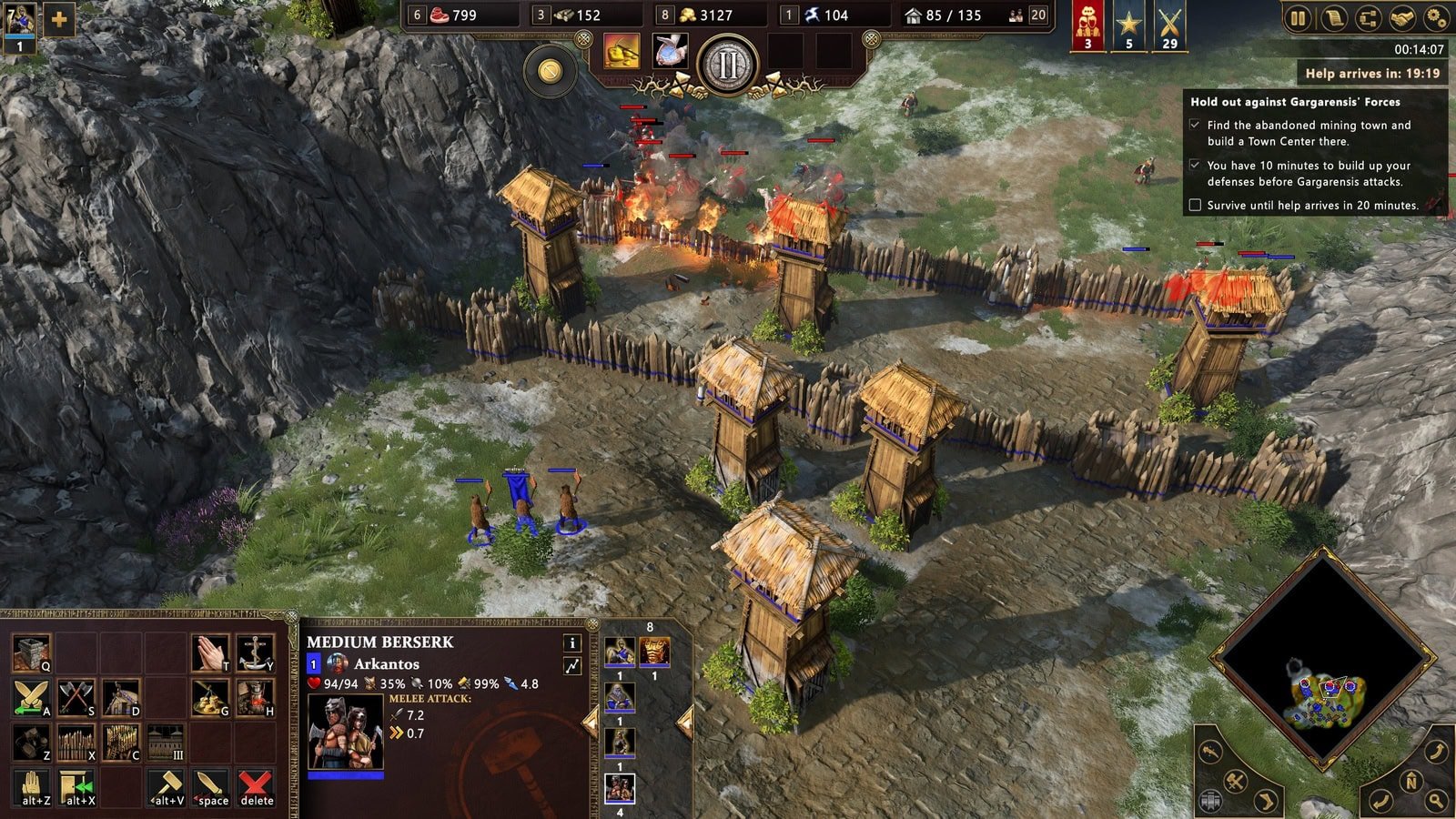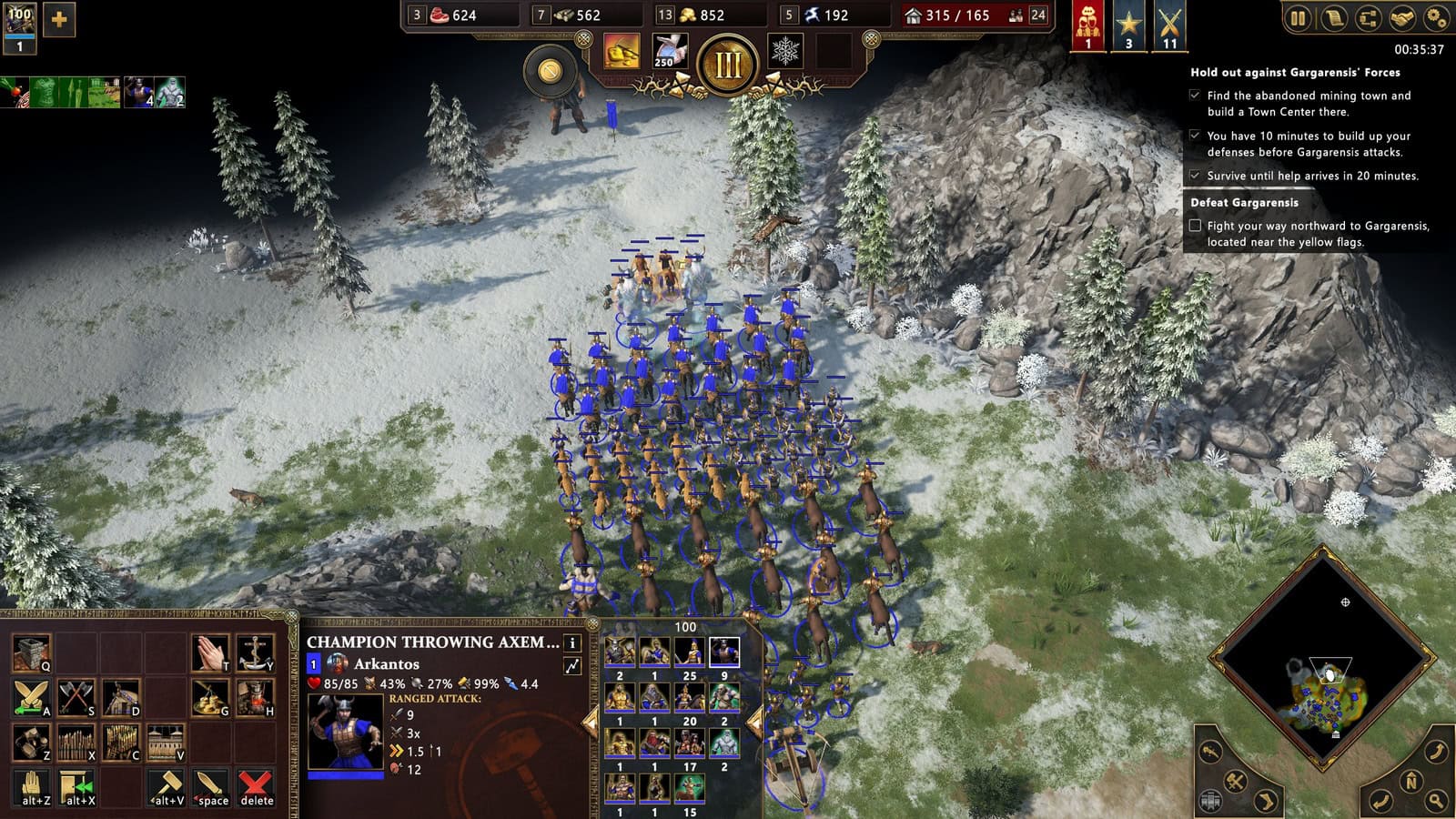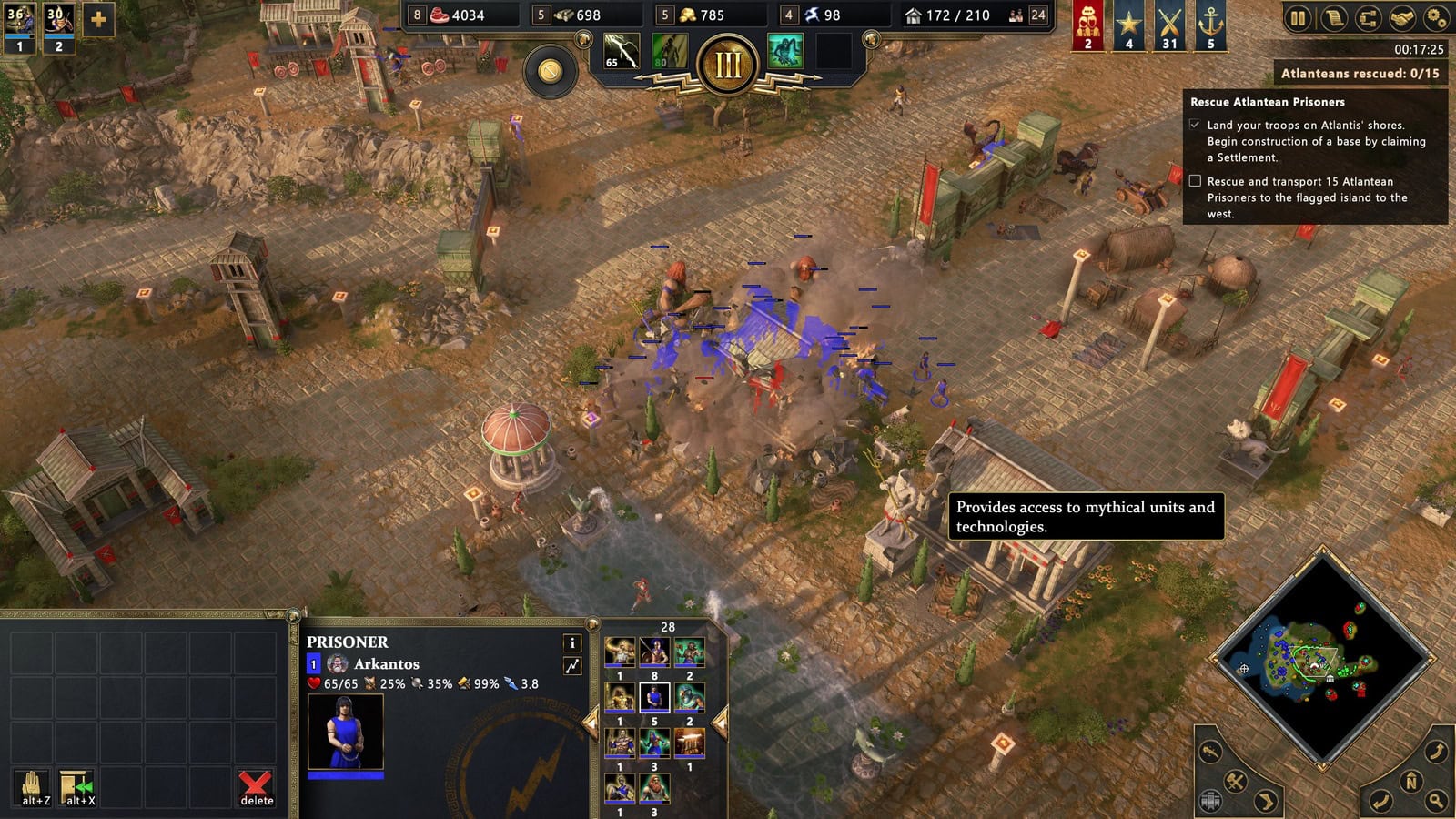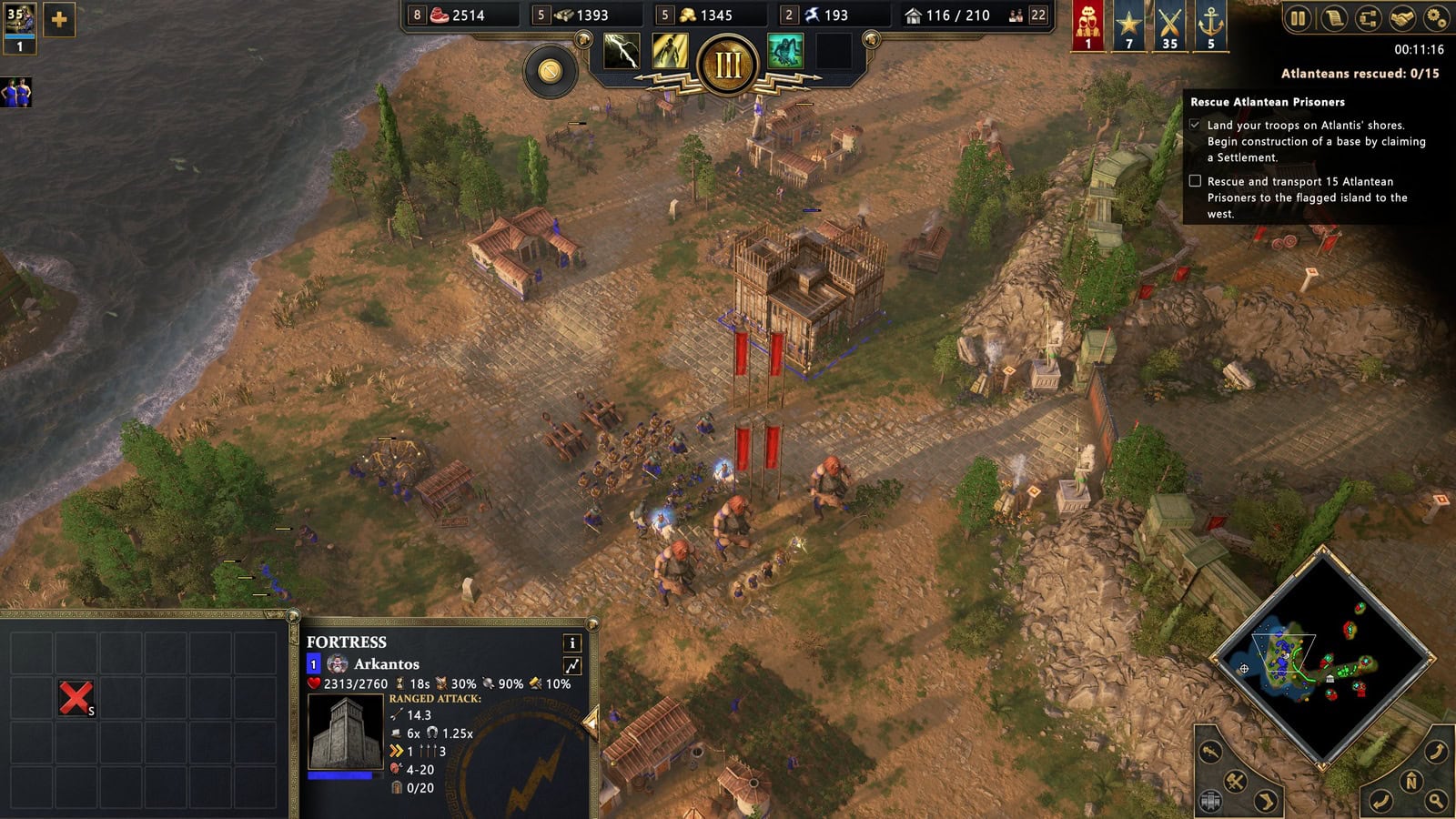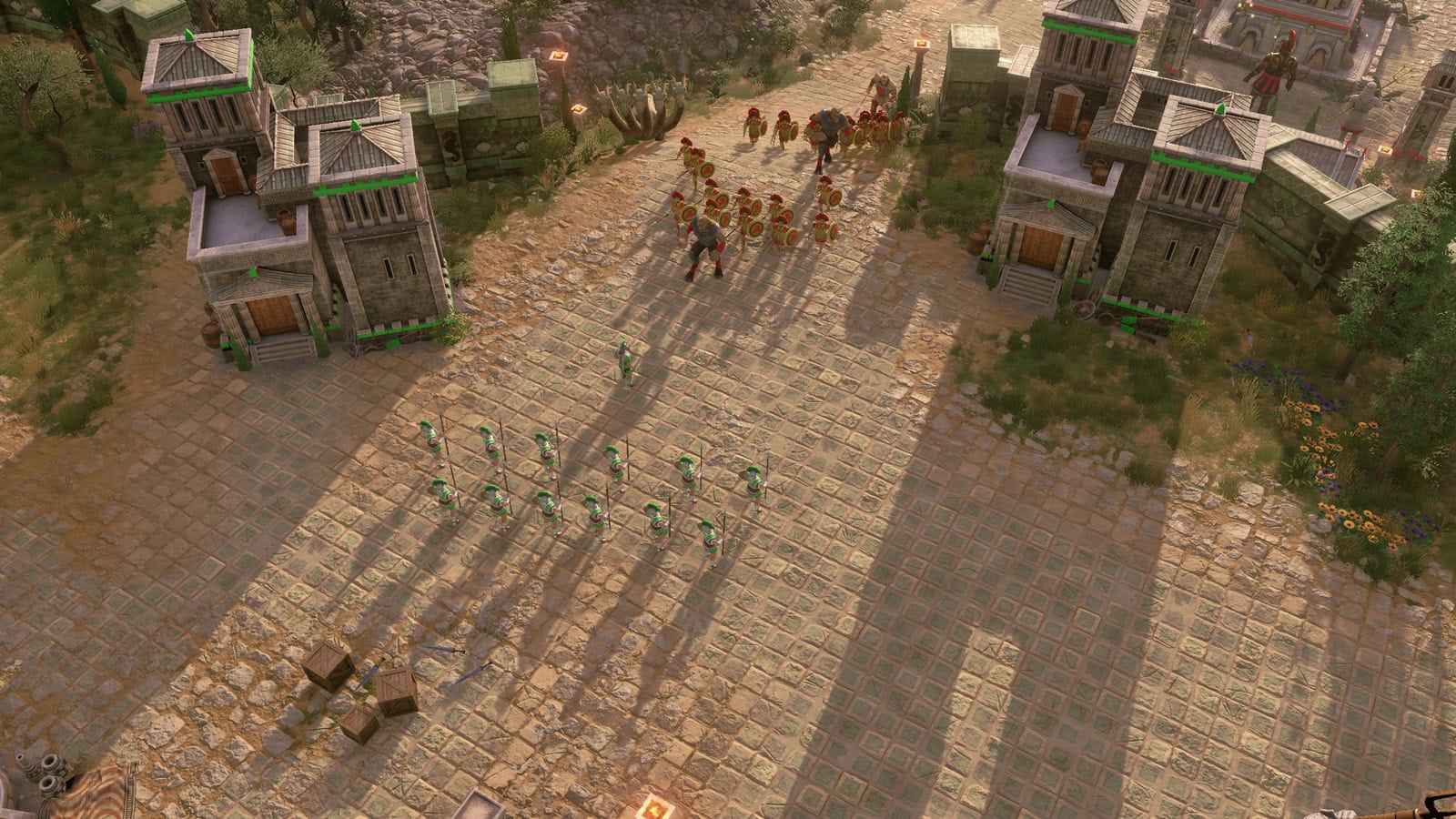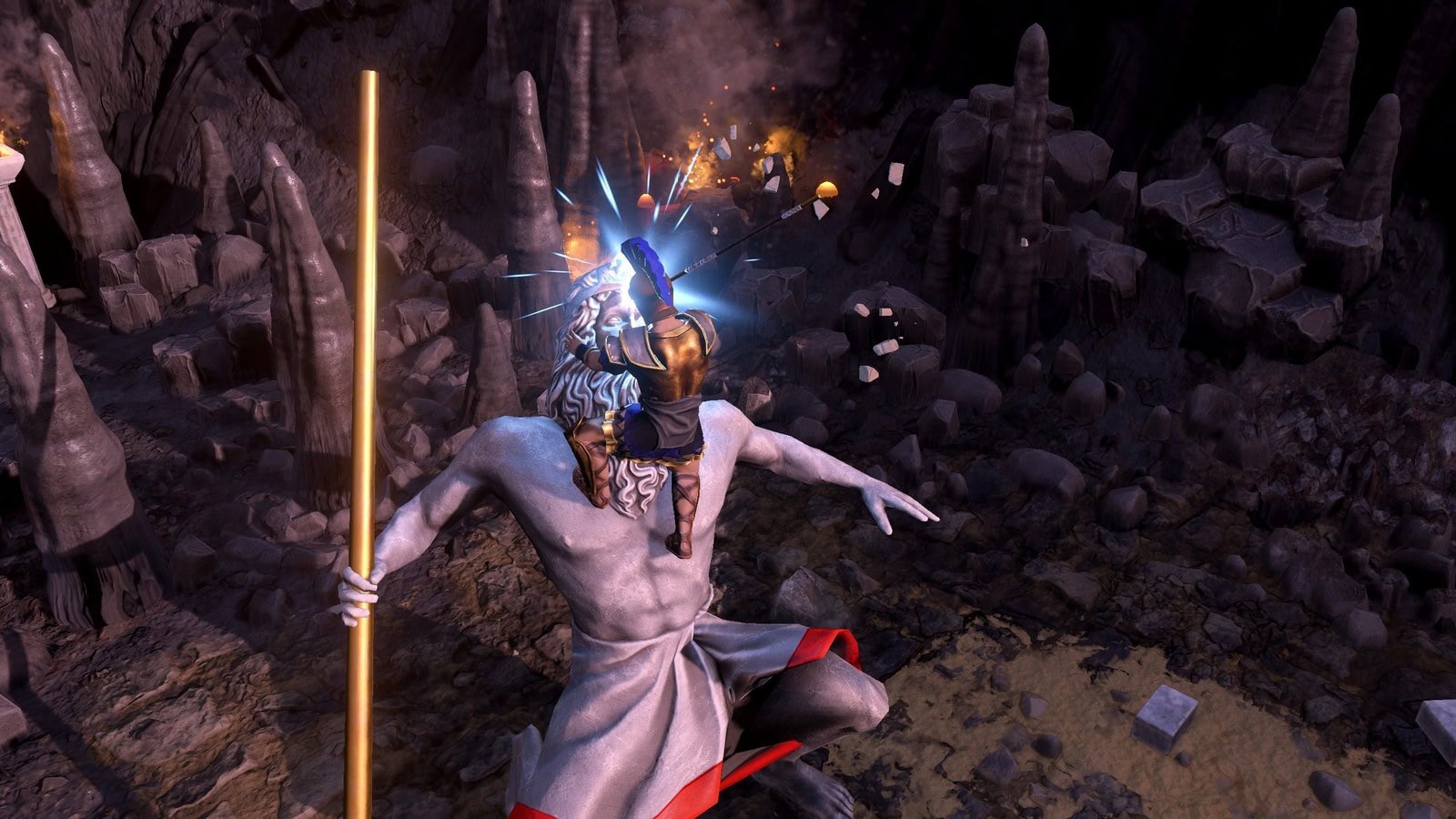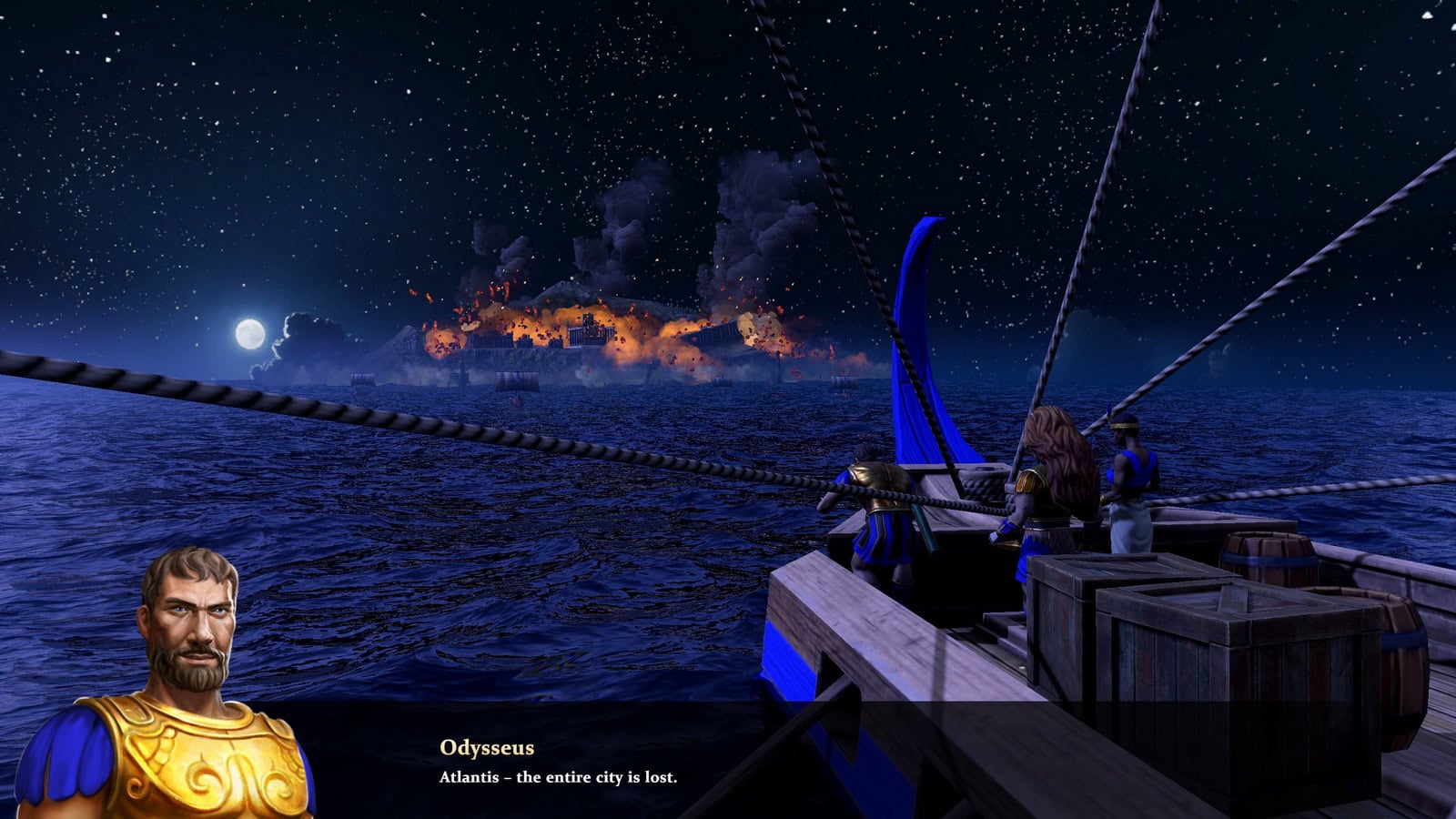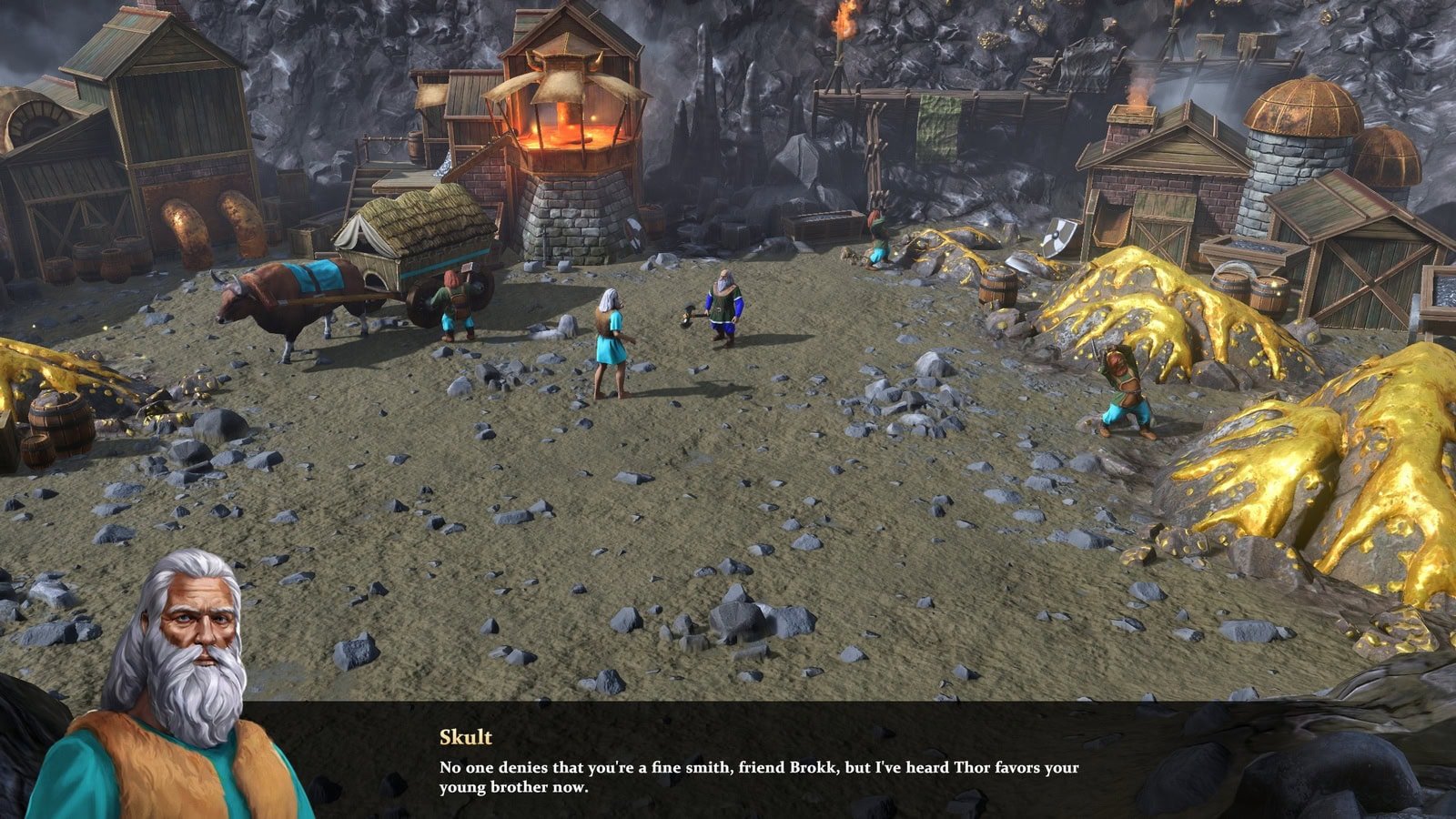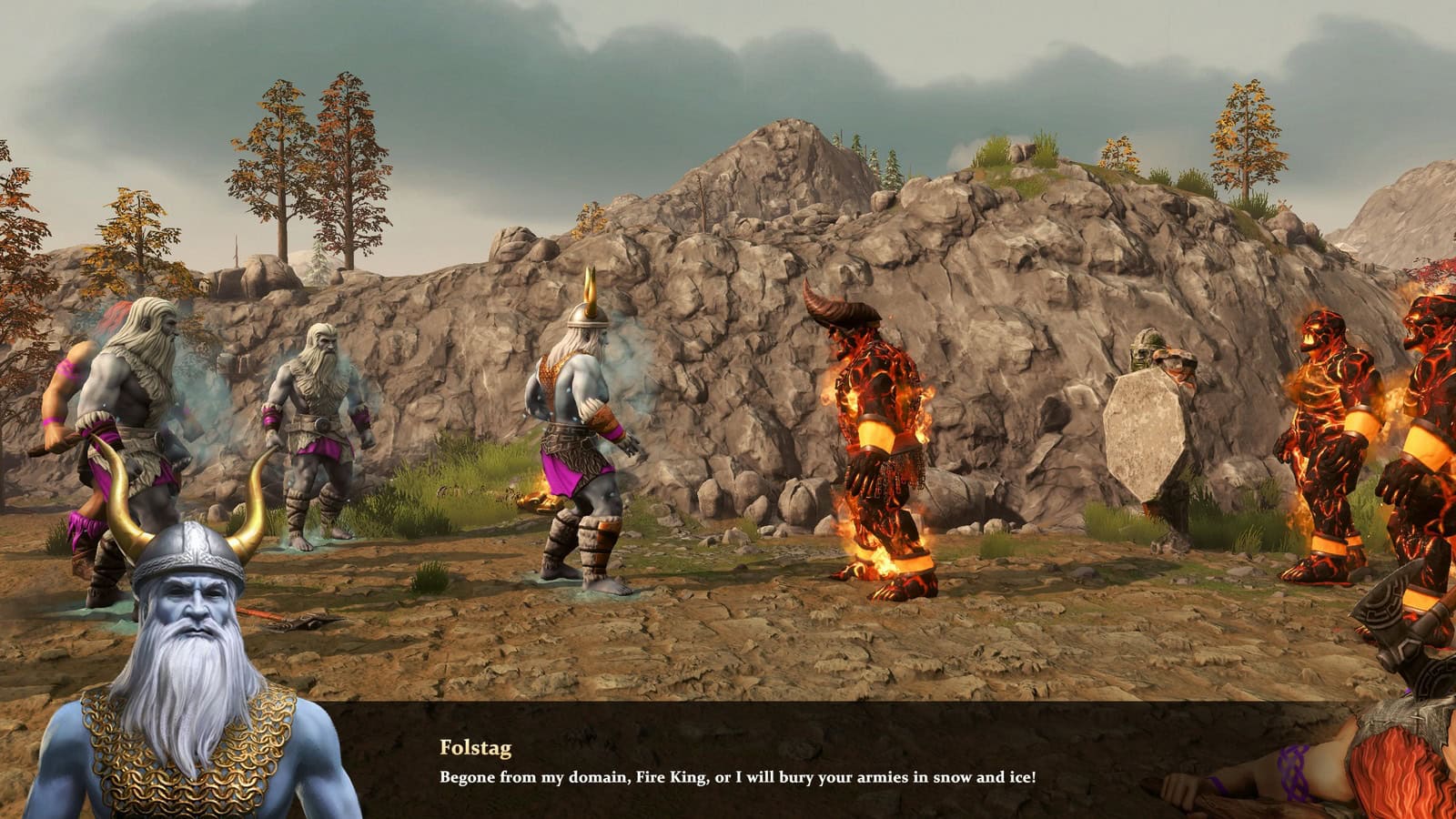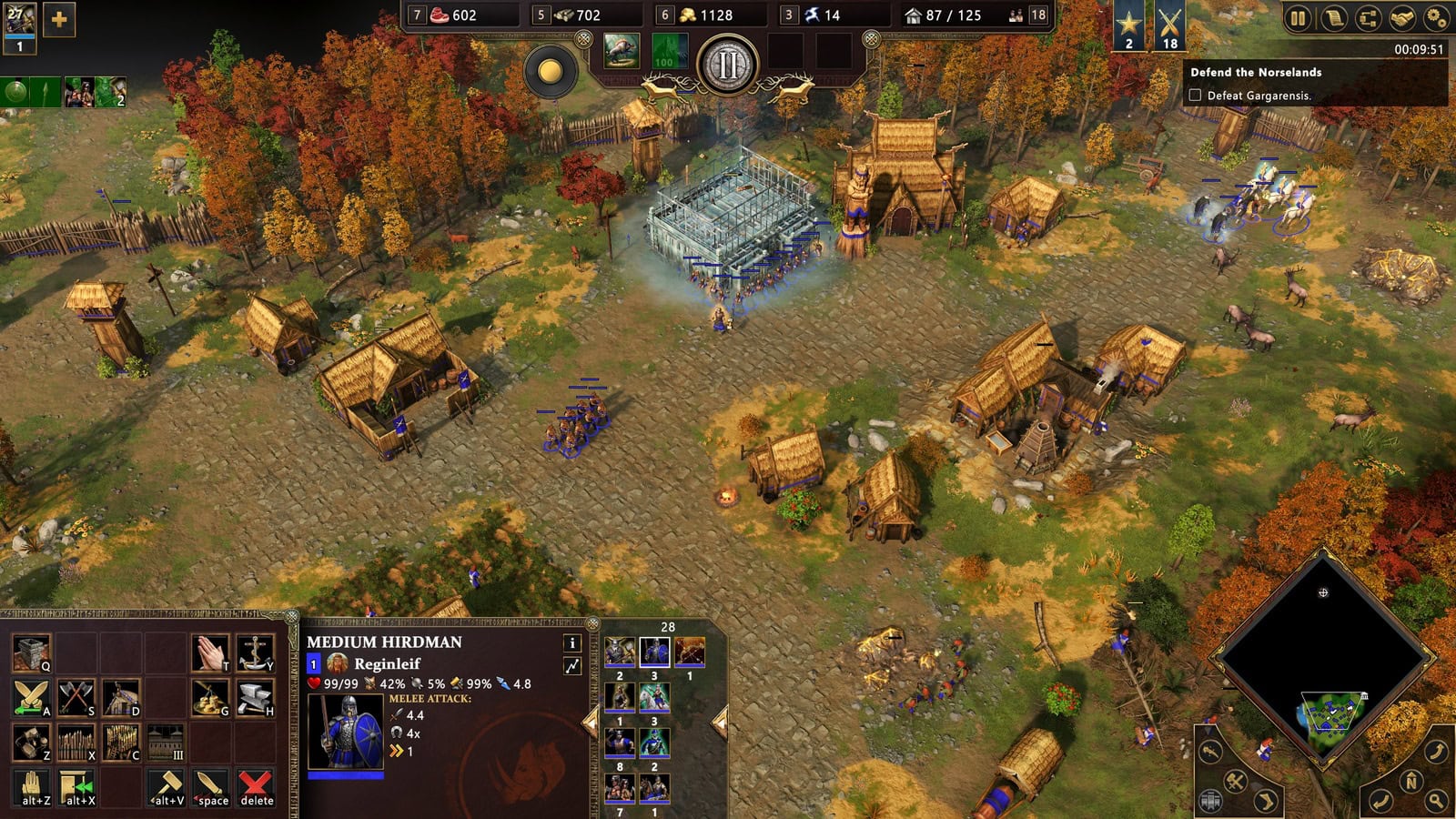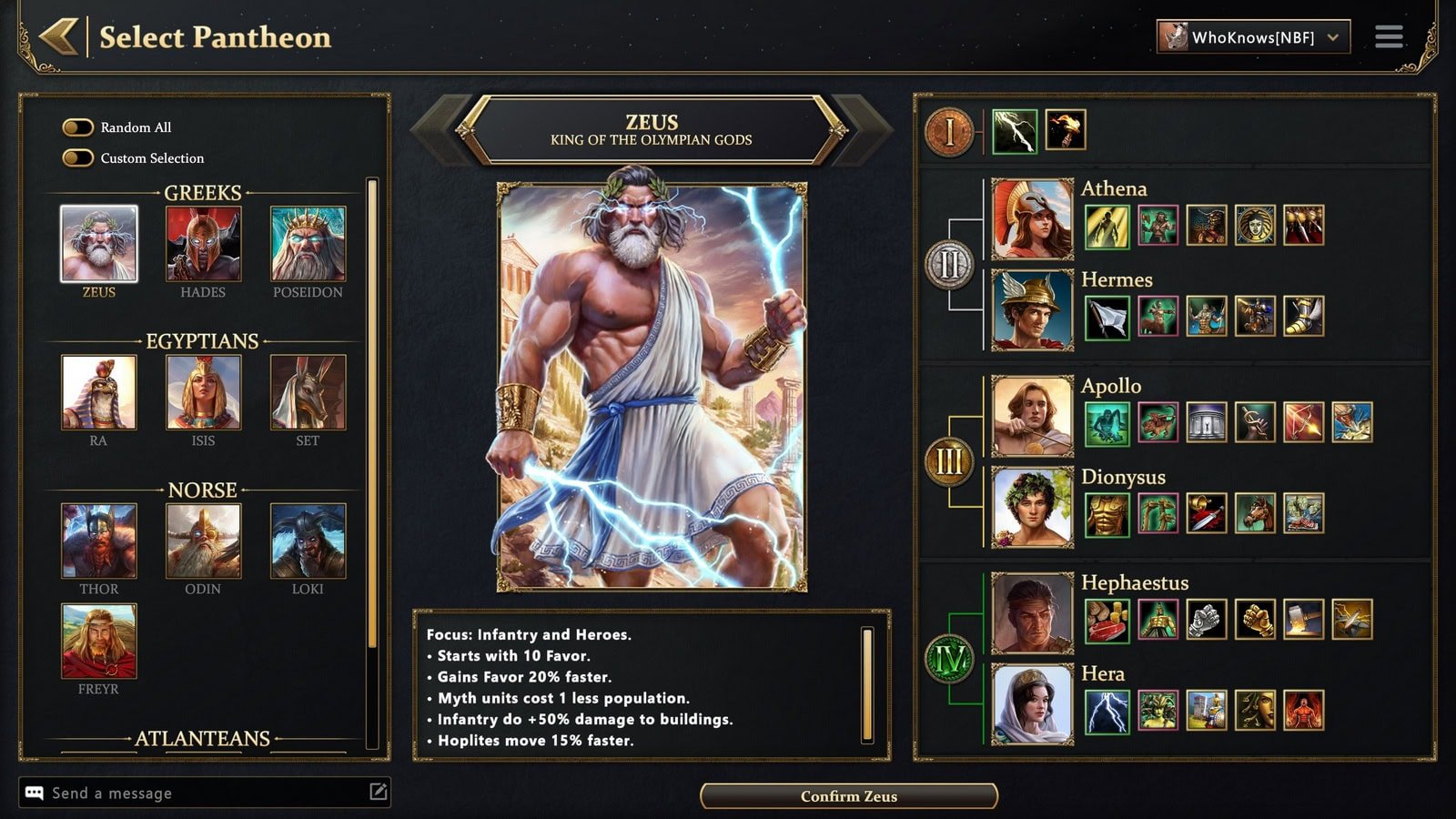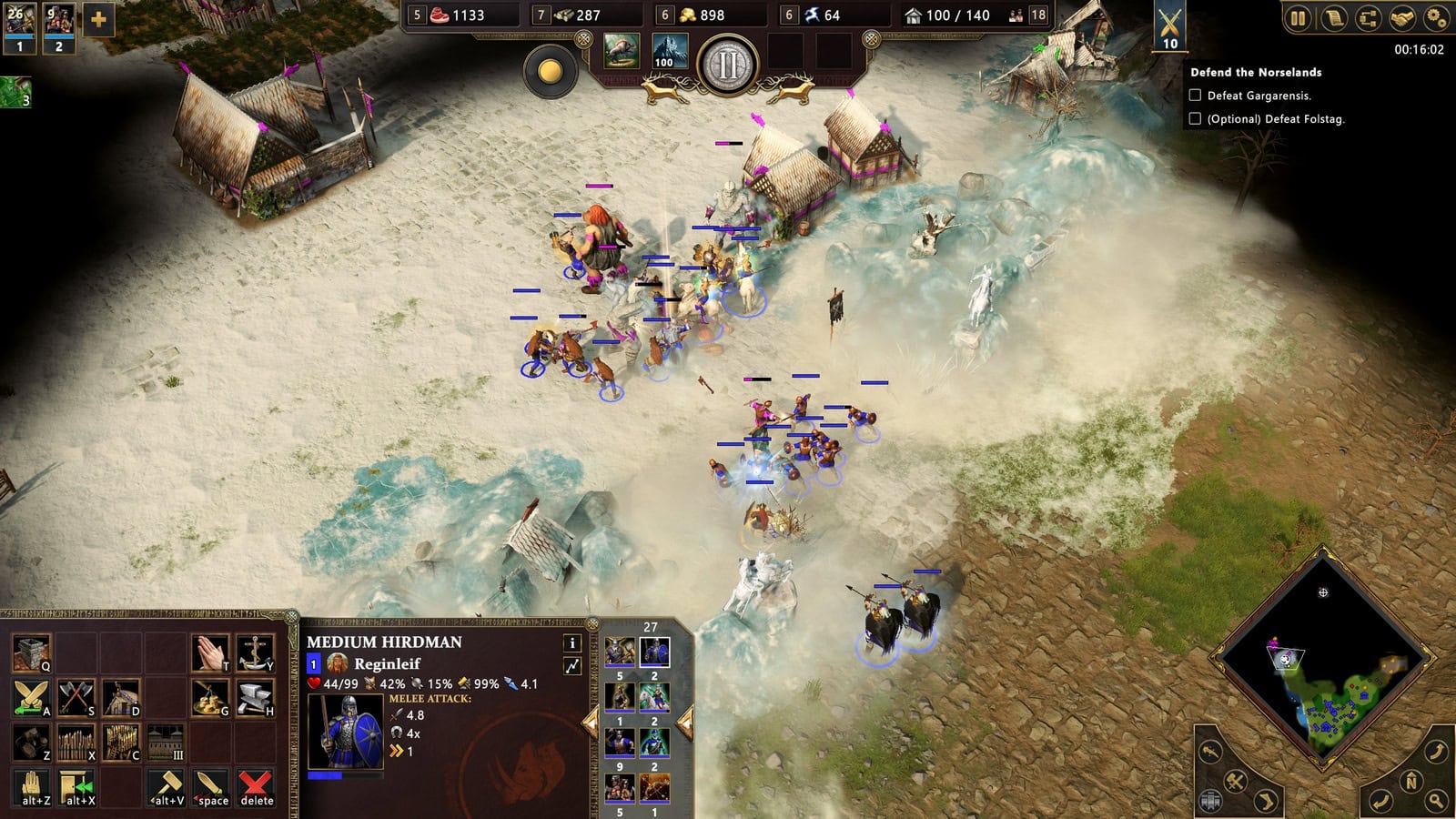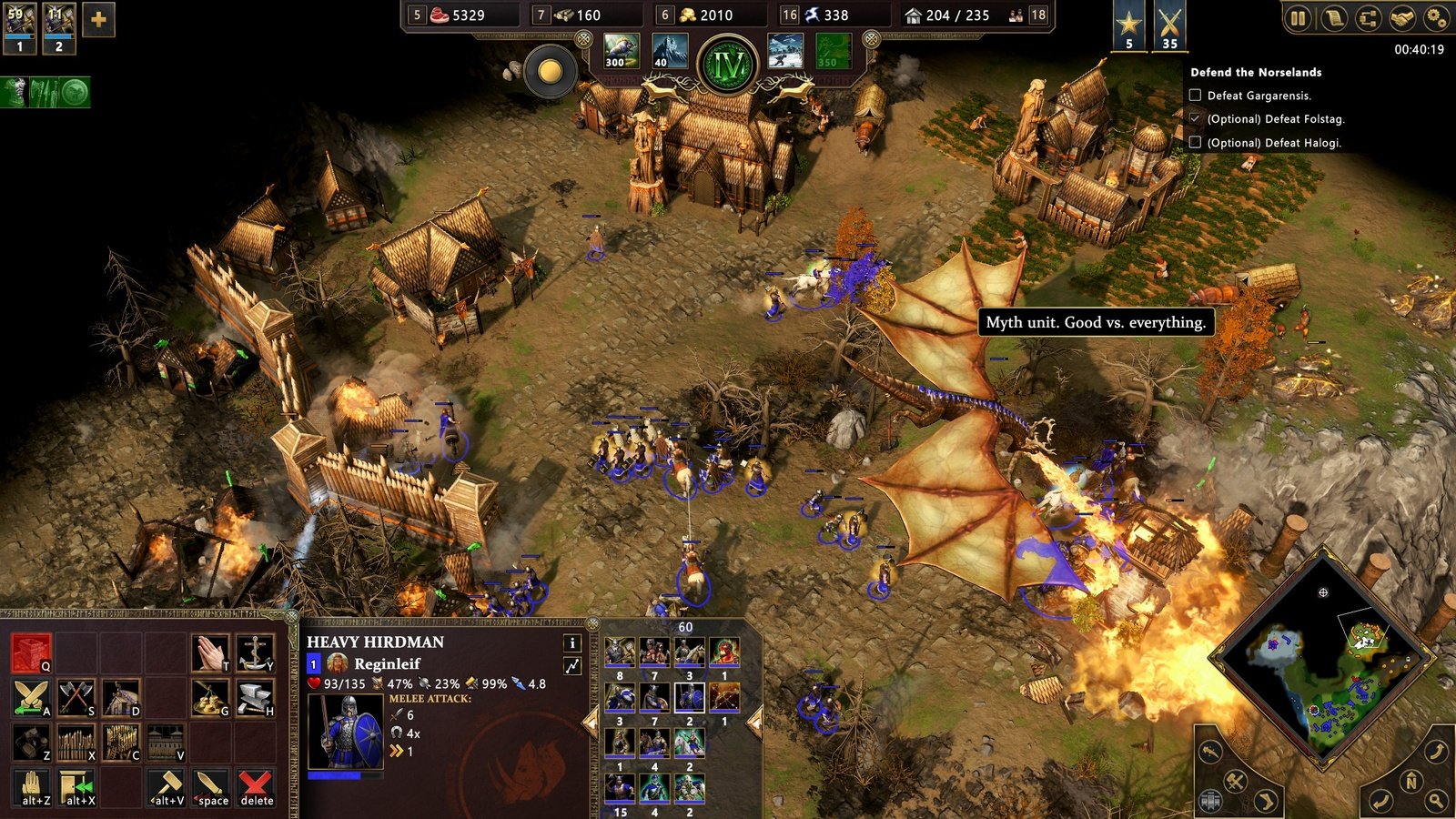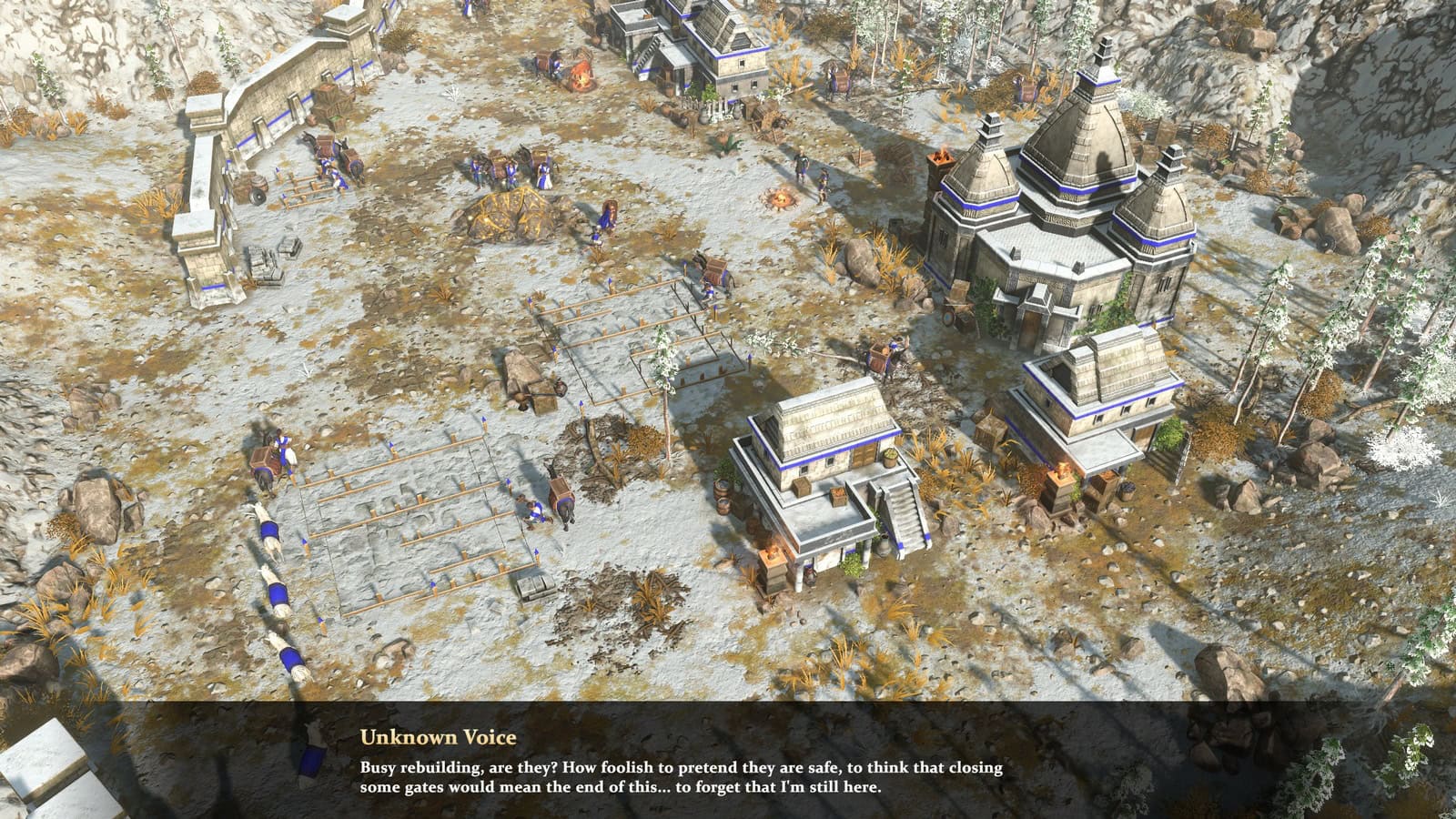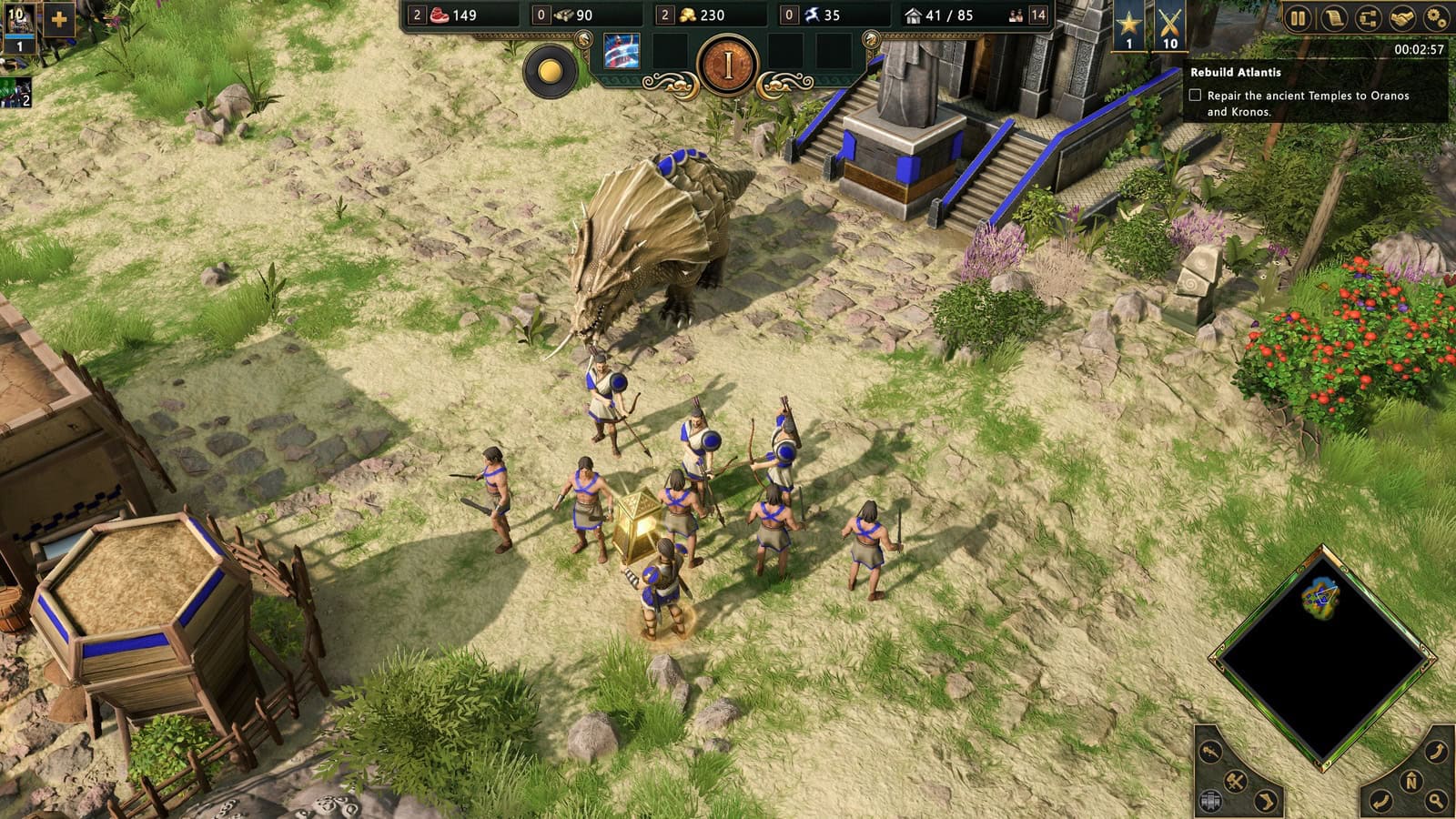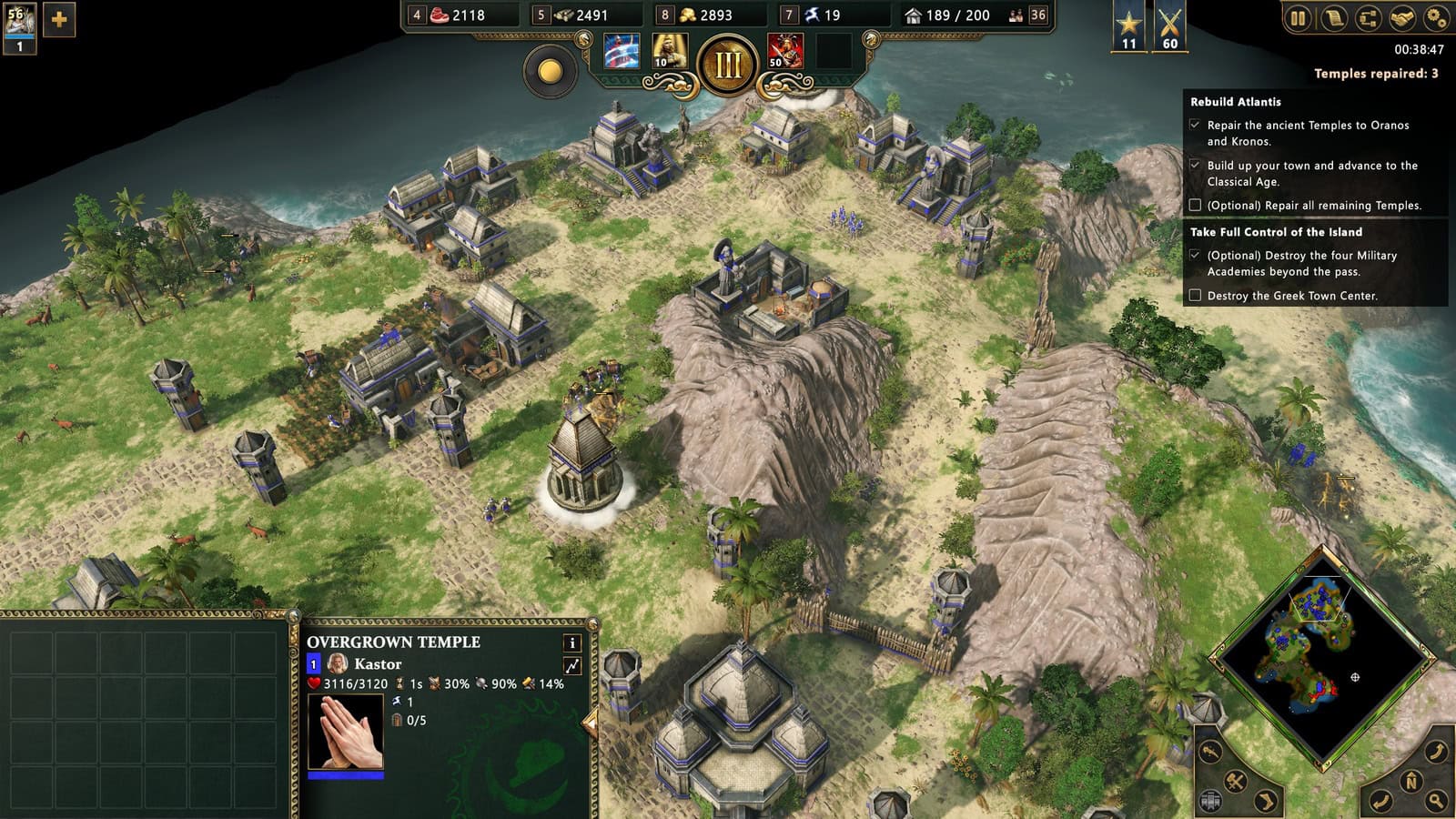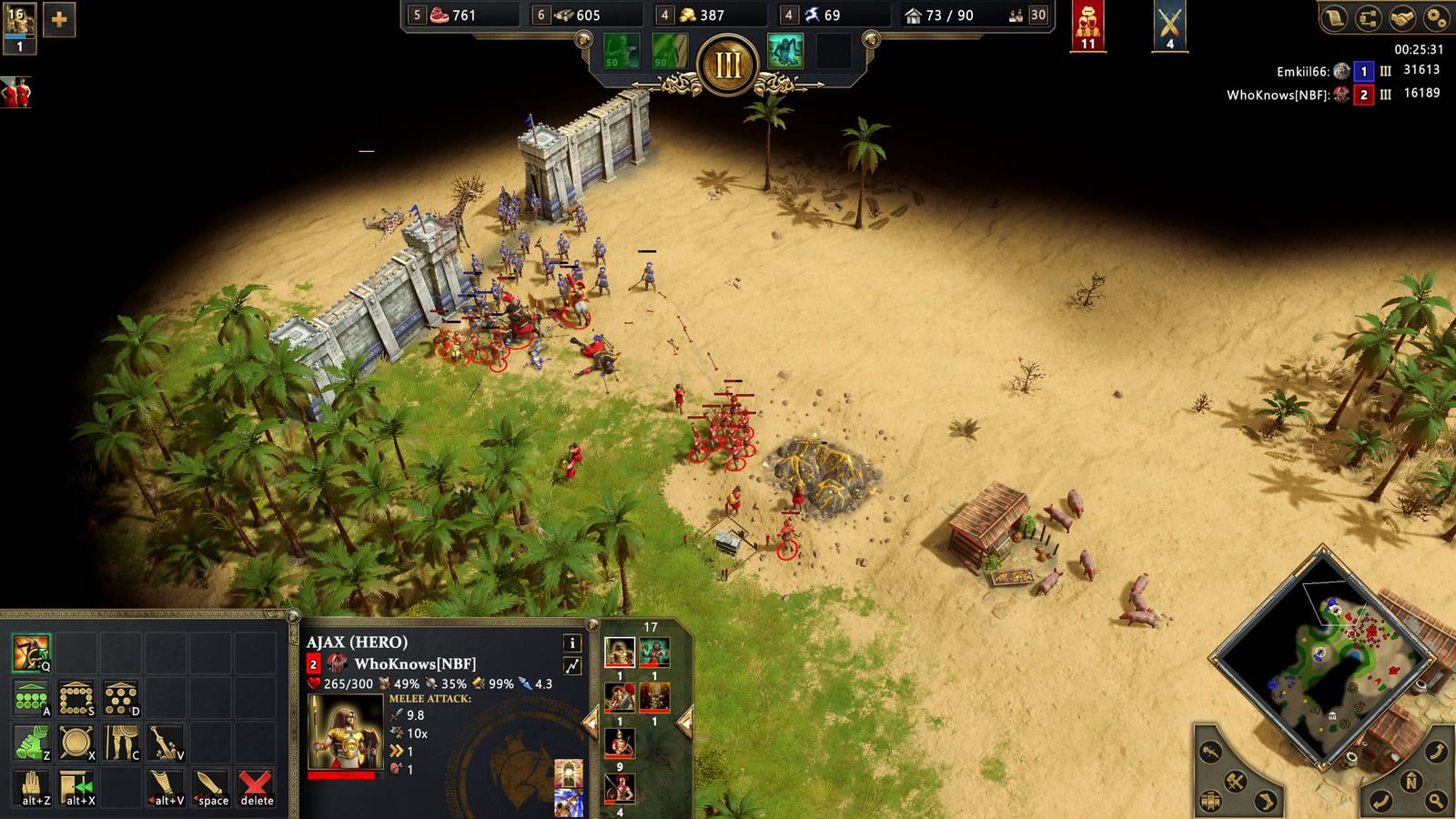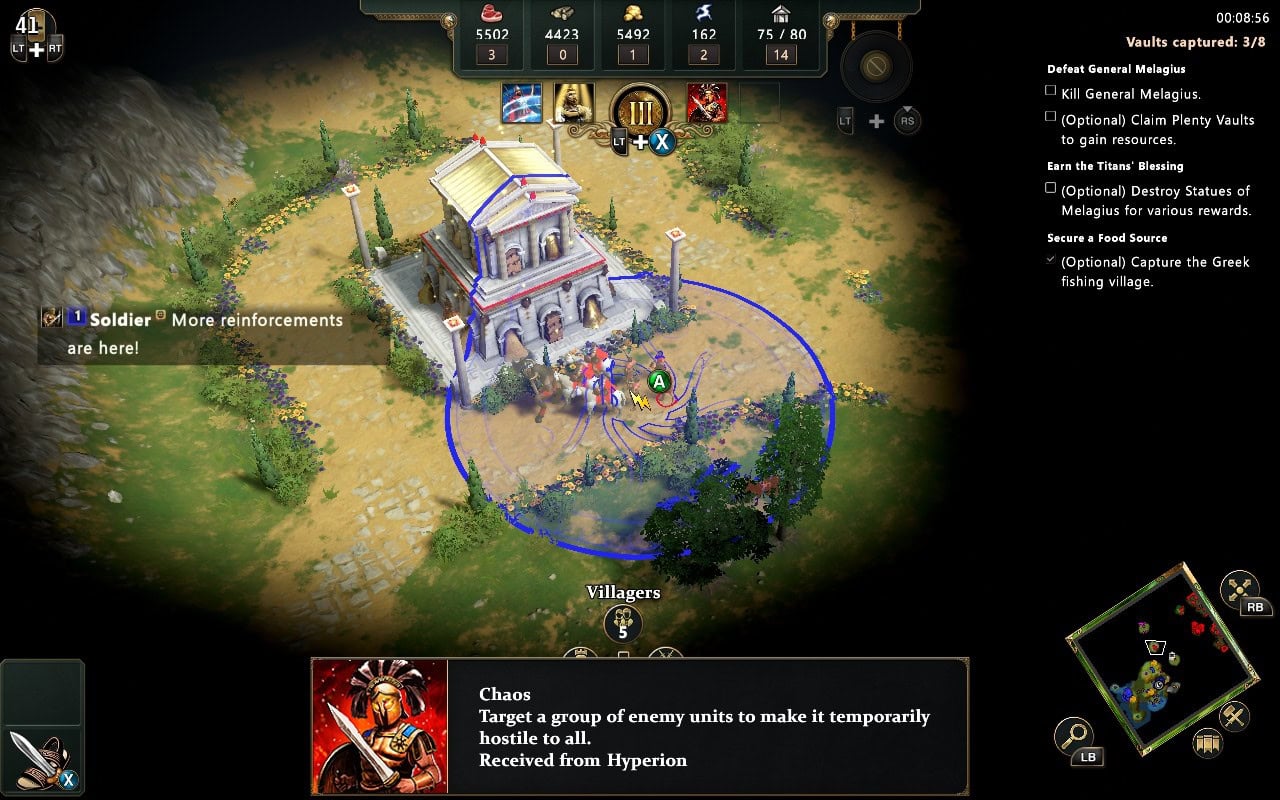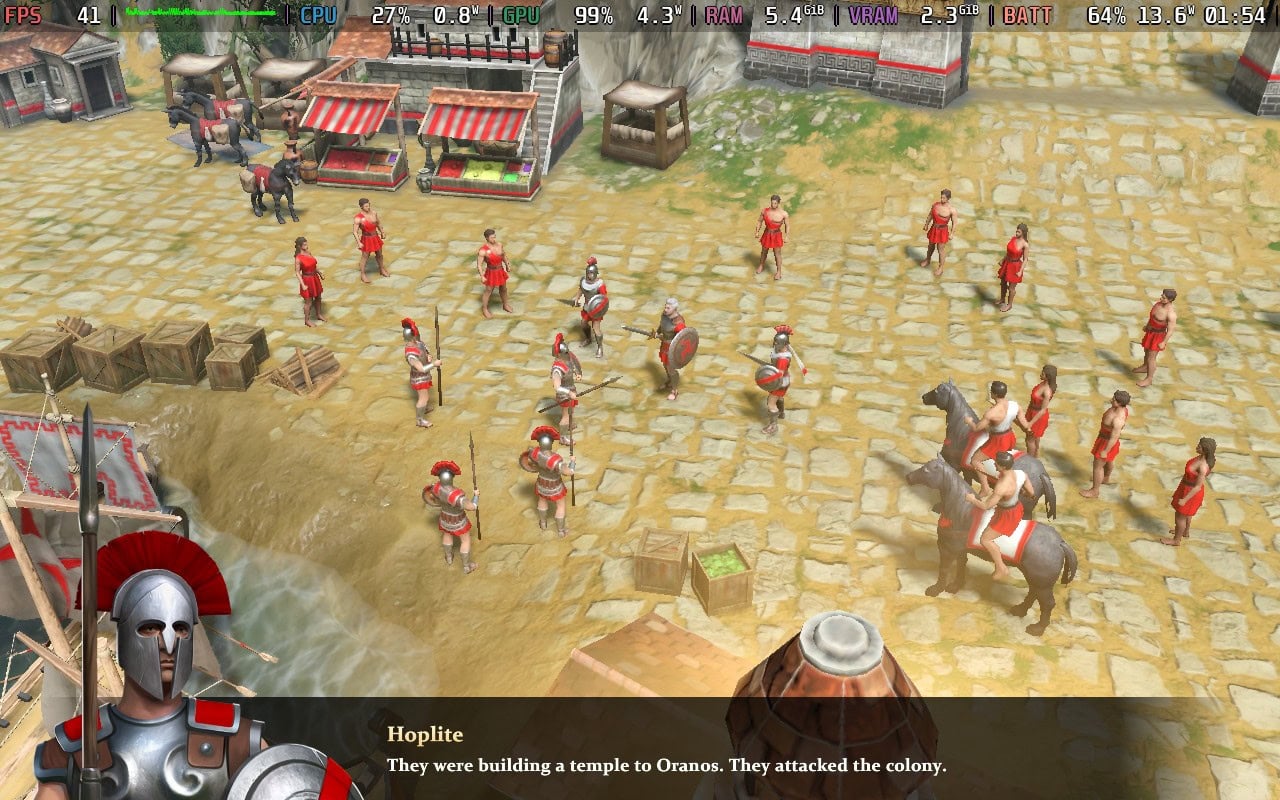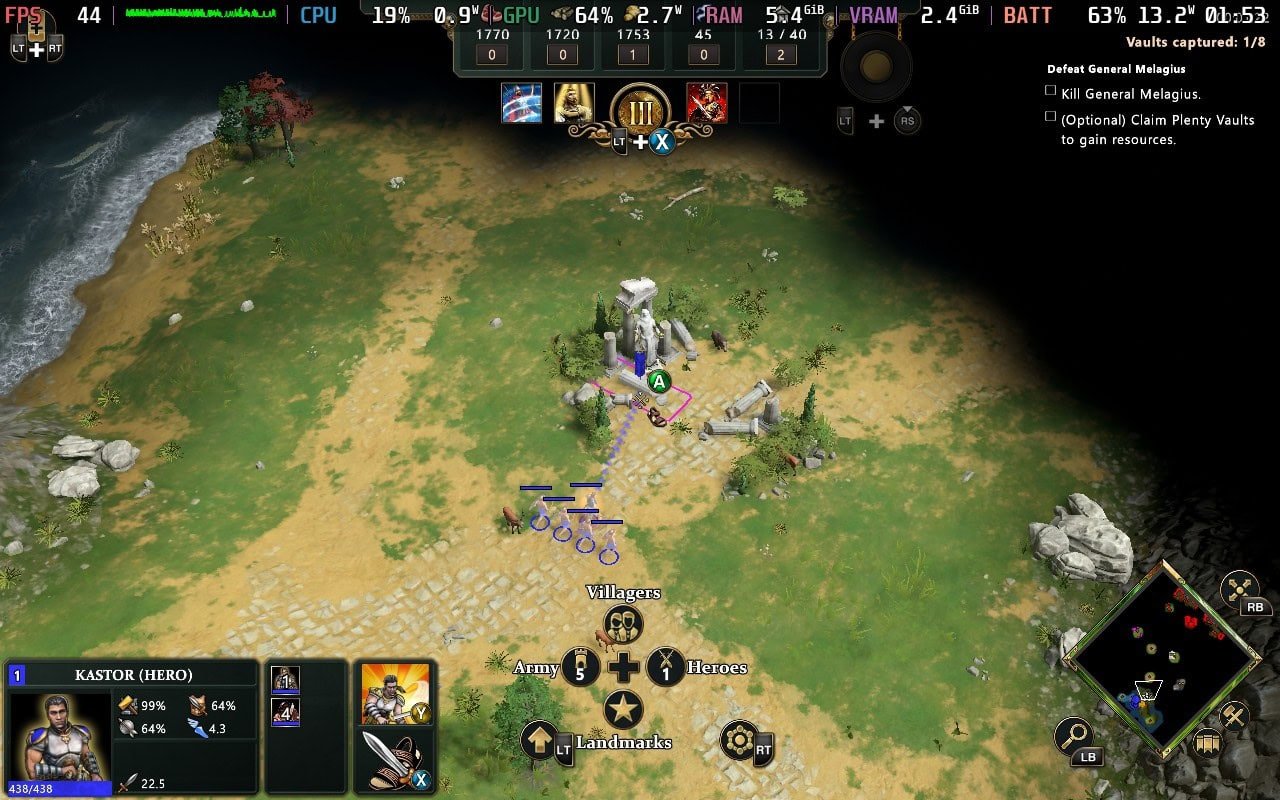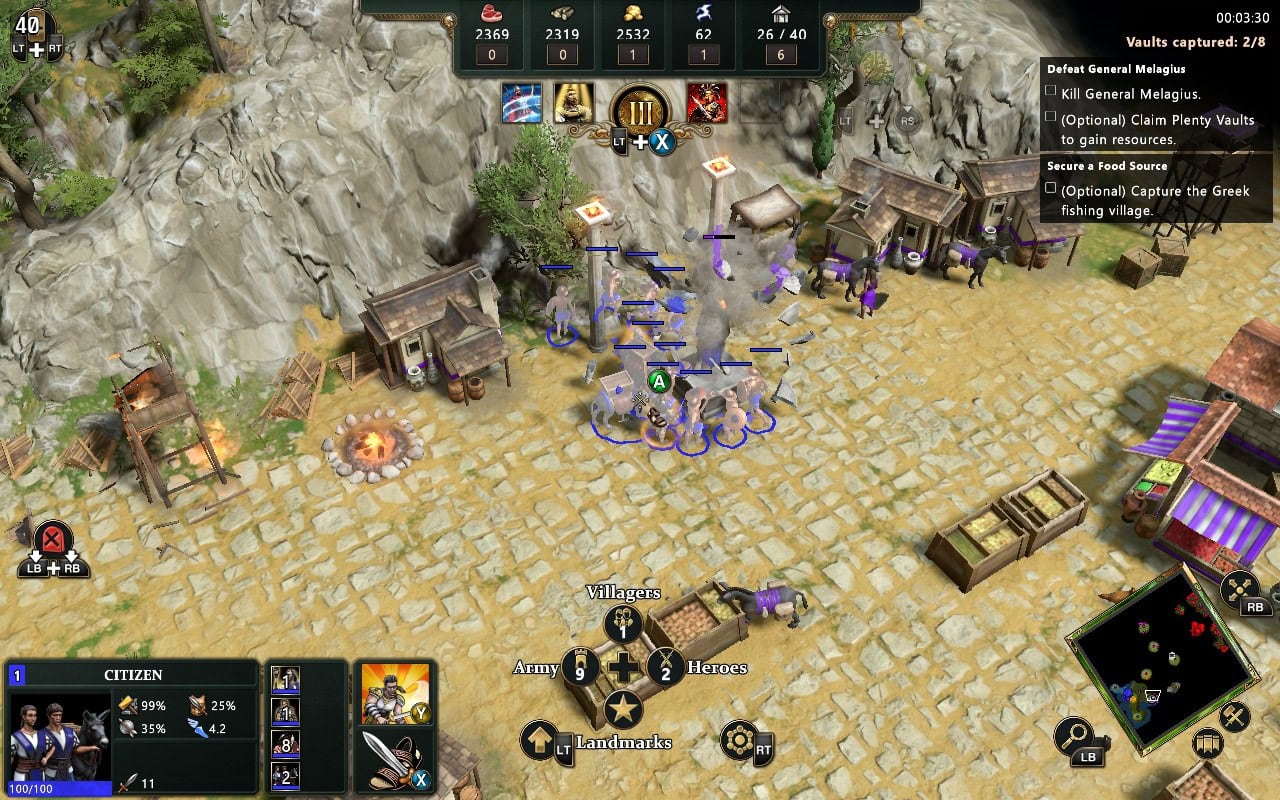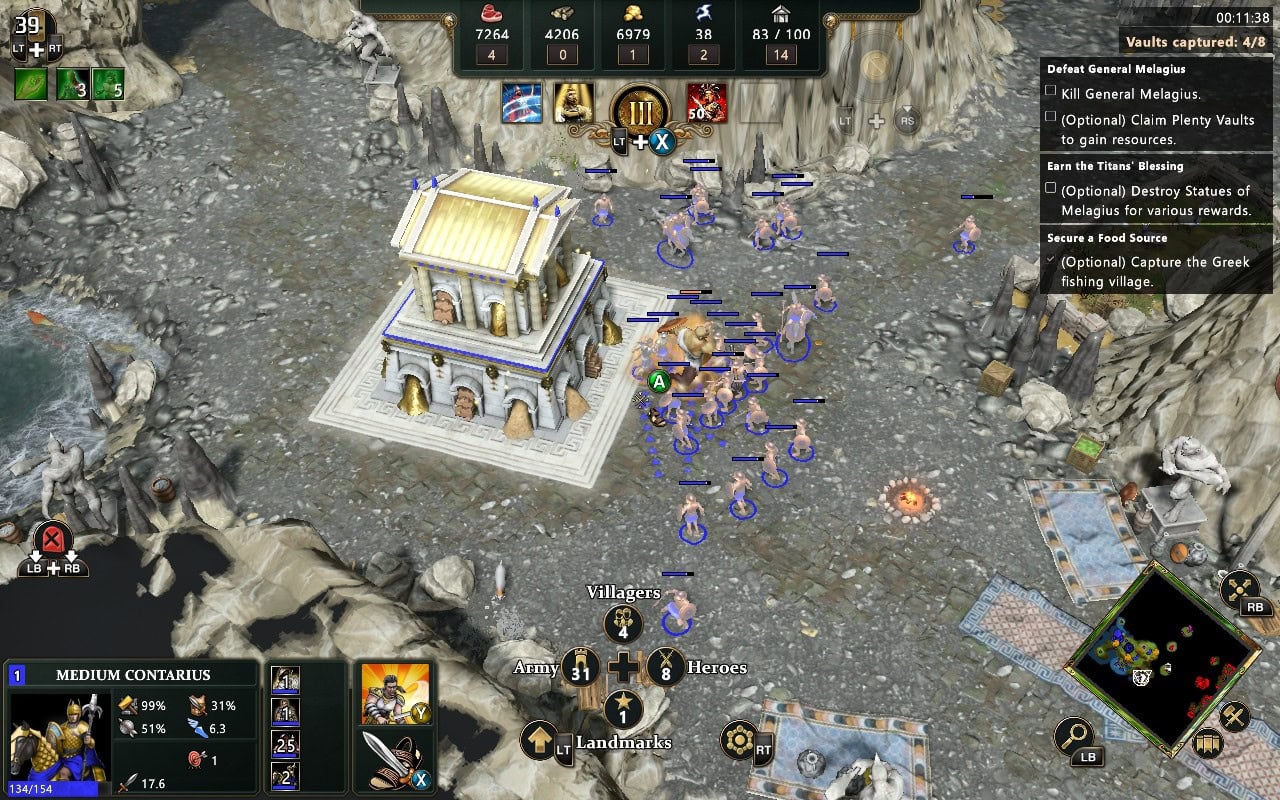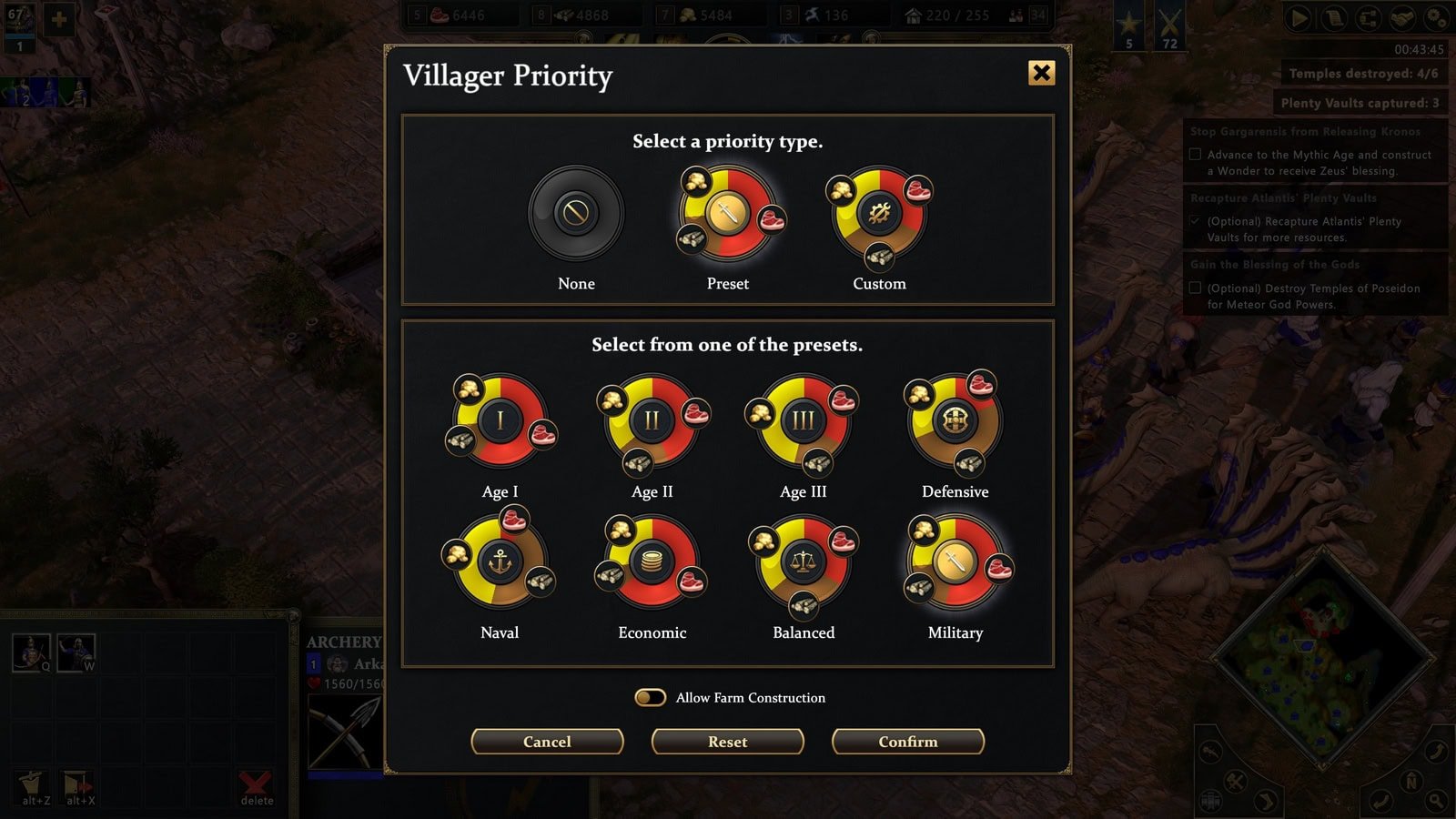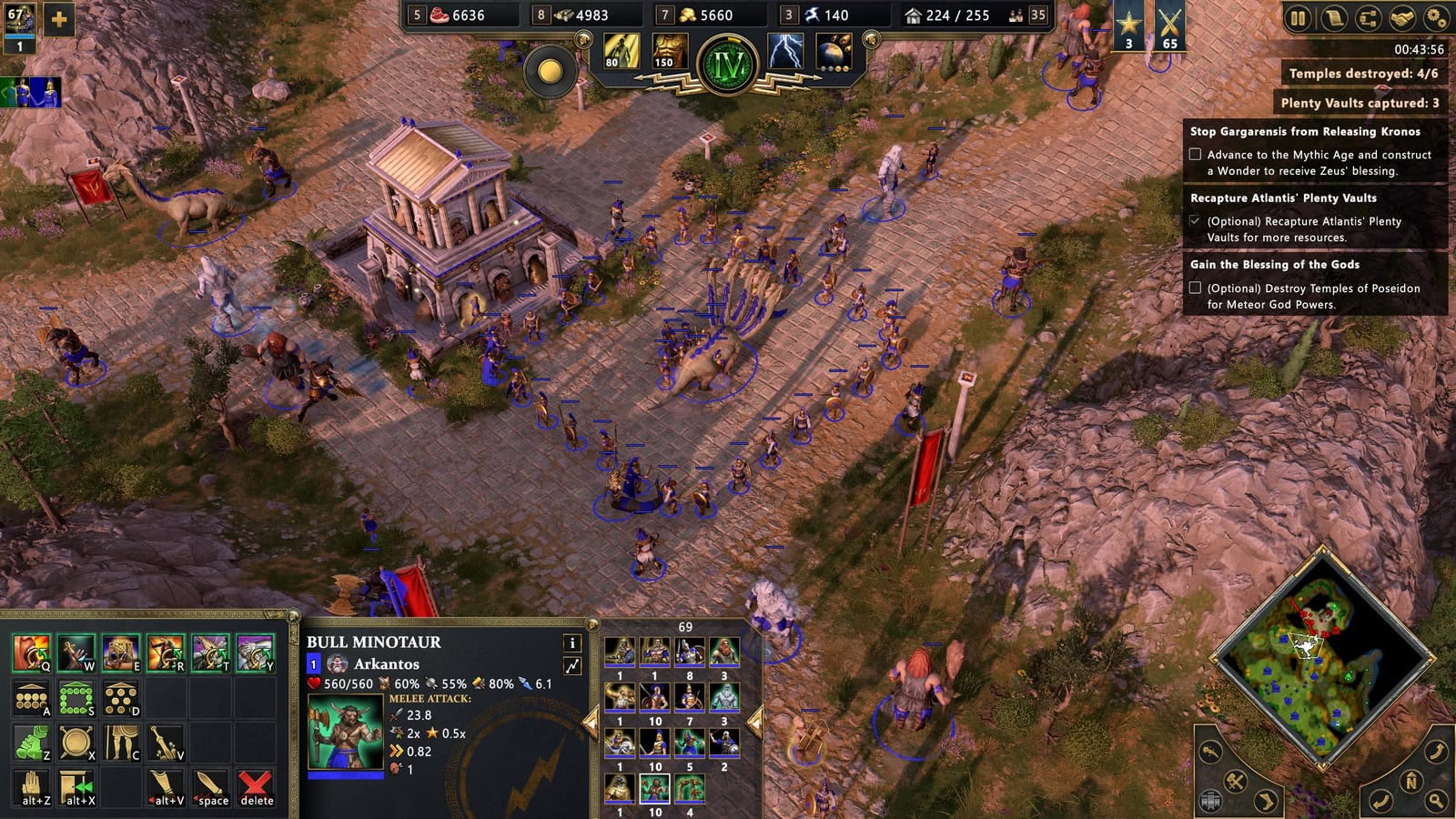Age of Mythology, a spinoff of the Age of Empires series released more than twenty years ago, can be briefly described as Age of Empires with mythical creatures. Now the game has received a remastered version of Age of Mythology: Retold, so let's see how it turned out.
| Game | Age of Mythology: Retold |
| Genre | real-time strategy |
| Platforms | Windows, Xbox Series X/S |
| Languages | English |
| Developers | World's Edge, Forgotten Empires, Tantalus Media, CaptureAge, Virtuos Games |
| Publishers | Xbox Game Studios |
| Link | ageofempires.com |
The original game once gained popularity not least due to the presence of pantheons of ancient gods and related mechanics, and also because, if fans of the parent series will forgive me, the story mode in Age of Empires II, which consisted of a series of disparate scenarios, was... at most not bad, while the main focus of the players was on multiplayer.
At the same time, all 32 missions of Age of Mythology were combined into a single central campaign that told the story of the Atlantean Arkantos' journey from the walls of Troy through the sands of Egypt, the snowy forests of the north, and back to Atlantis, to the final confrontation with the cyclops Gargaresis. Along the way, the player manages to conquer Troy, visit the afterlife, and stop Ragnarok. In short, it was epic.
And the multiplayer game was no less exciting: The old proven rock-paper-scissors formula for different types of units; a variety of maps; slightly slower gameplay than is usually found in games of this kind, due to the fact that different types of troops and technologies are distributed among historical eras that still need to be developed; divine forces that could dramatically affect the course of events; a rather noticeable difference between the Greeks, Egyptians, Vikings, and the Atlanteans added later. All this guaranteed the game's success.
In 2014, Age of Mythology: Extended Edition with improved graphics and some other cosmetic changes was released, and it remains popular to this day. For example, at the time of this writing, more than two thousand players have played the game, which is a good result. In fact, after Age of Empires IV was positively evaluated by both the press and players, as well as after the successful adaptation of the game for Microsoft consoles, it was only a matter of time before the remaster of Age of Mythology was released.
And it turned out exactly the way I think remasters should be. World's Edge treated the original source material with the utmost respect, and almost all of the changes in Age of Mythology are cosmetic: Retold are purely cosmetic, or aimed at bringing the game up to modern standards and improving the player's "quality of life."
Before that, Age of Mythology: Retold contains The Titans expansion, which tells the story of the fate of the Atlanteans after Atlantis went down, and The Golden Gift, in which the dwarf brothers Brokk and Eitri compete to create a metal boar for the god Freyr. One could say that this is how Age of Mythology: Retold renders the original version of the game unnecessary, if the Tale of the Dragon expansion pack, which added China, the corresponding pantheon, and a new story campaign, had not been left out. However, China has already been announced as the first additional civilization in Retold, so it is possible that we will also have the opportunity to play through the story missions.
The graphics of Age of Mythology: Retold can't be called state-of-the-art, of course, but at the standard camera height, Retold looks decent, the only thing we can complain about is the cutscenes made on the game engine, and the character models and their animations look a little sad when zoomed in. But we don't play strategy games for cutscenes.
Despite the fact that the game is actually more than twenty years old, the campaign is still perfectly playable today. The missions are intricate, you have to rush to the aid of mythical heroes, collect resources to build a Trojan horse, escort caravans with parts of the body of Osiris, try to hold out for a given time against the superior forces of giants, try to take out the enemy base with a total lack of resources, or, my favorite, collect Odysseus' warriors turned into pigs all over the island. The enemy's artificial intelligence is not bad, but not outstanding, and the difficulty levels are mainly regulated by starting resources and technologies, the presence of certain units, spells, or the number of enemy fortifications.
I didn't have any problems getting used to the new interface when playing on PC, except that it took me a while to learn the shortcuts, the game does a great job of explaining what's going on with visual and audio cues. It will tell you which units are universal and which should only be used against certain types of enemy troops, no need to go to any wiki or separate screens, everything is visible when you hire them.
Resource collection management can now be automated if you wish, and the peasant auto-manager will try to assign tasks to peasants based on the resource balance you set it. You can either use one of the existing templates or create your own, after which you will only have to order peasants in the city center (or enable the auto-queue for their purchase) and forget about this aspect for a while.
Troop management is done at a fairly basic level, with a choice of three types of combat formations: linear, square, or dispersed, and the ability to set a behavioral model - aggressive, defensive, holding territory, and no attack. Separately, I would like to advise you to always give the command to the troops to move in attack mode (through a space), in which they will automatically attack enemy units that they meet on the way. No more suicidal running to a point while ignoring enemy archers in the neighboring bushes, it's great!
It's also very convenient to demolish an enemy base where soldiers regularly appear from four barracks, because you no longer need to call out each new enemy separately, the troops themselves will be distracted for a while, solve the problem and return to destroying buildings. The only drawback is that when marching in this mode, your infantry may not realize that enemy walls can and should be destroyed, so be careful.
Each transition between epochs not only opens up access to new types of troops and technologies specific to a particular civilization, but also allows you to choose one of the lesser gods and gain access to unique units, modifications, and, in fact, divine powers that can now be used not only once per game. The first use is always free, and each subsequent use will require an increasing amount of divine "favor", a separate resource that is obtained in temples, generated by special units, or simply in battle if you are a Viking.
Thanks to the fact that Arkantos travels around the world, you can try out all the civilizations and pantheons available in the game, get acquainted with the divine powers, and develop your own strategies for winning before moving on to play against other players. During the early access, it was difficult, I shamefully lost the vast majority of matches against obvious veterans of the series, but after the general release, the situation improved, and games are now found much faster.
There are four game modes to choose from: standard; deathmatch, with increased resources; lightning fast, with increased speed; and individual scenarios. There are five victory conditions, ranging from defeating all opponents to defending the citadel of the starting city or holding a vault for a certain period of time. The number of players is from two to twelve, and you can play both in teams and in the mode of each one for himself. As you might guess, the game session is quite long, with no classic zerg rush in the first 5-10 minutes.
I would advise beginners to practice against the AI, and then switch to the rating mode, losing the first few games will give you a better chance of meeting the same beginner than in the fast game mode.
If you still don't have enough content, you can go straight to Age of Mythology: Retold has a catalog of mods and a game editor, and believe me, players are not sitting idle. As of now, the number of mods has already exceeded two hundred, and new ones are added almost every day. Interestingly, one of the first mods to be added was the one that brought back the original voice acting and old portraits of the gods, as not all players appreciated the changes in these areas.
By the way, Age of Mythology: Retold performed quite well on Steam Deck, almost always running at around 40 fps on medium settings, and the controls are surprisingly easy to use, except for a few things. First, after giving a command to a single unit, I regularly forgot to press B to deselect it before selecting the next one, which led to unnecessary running around the map. Also, the huge number of radial menus with submenus takes some getting used to, but it's still easier on a PC. But it was disappointing that after the general release, the game for some reason began to have problems running on the Valve handheld. Sometimes changing the version of Proton in compatibility mode helps, sometimes nothing helps, and we're waiting for patches.
Overall, it turned out great, Age of Mythology: Retold can definitely be recommended to both old fans and strategy enthusiasts, especially since there are not so many RTSs on the market nowadays. And the price is quite reasonable - 650 UAH for the basic game and 1150 UAH for the premium edition, which contains two additional civilizations that will be released over the next year. Game Pass subscription holders play for free.
And if you want more RTSs after this review, we remind you that we recently published a selection of the best modern real-time strategies.


